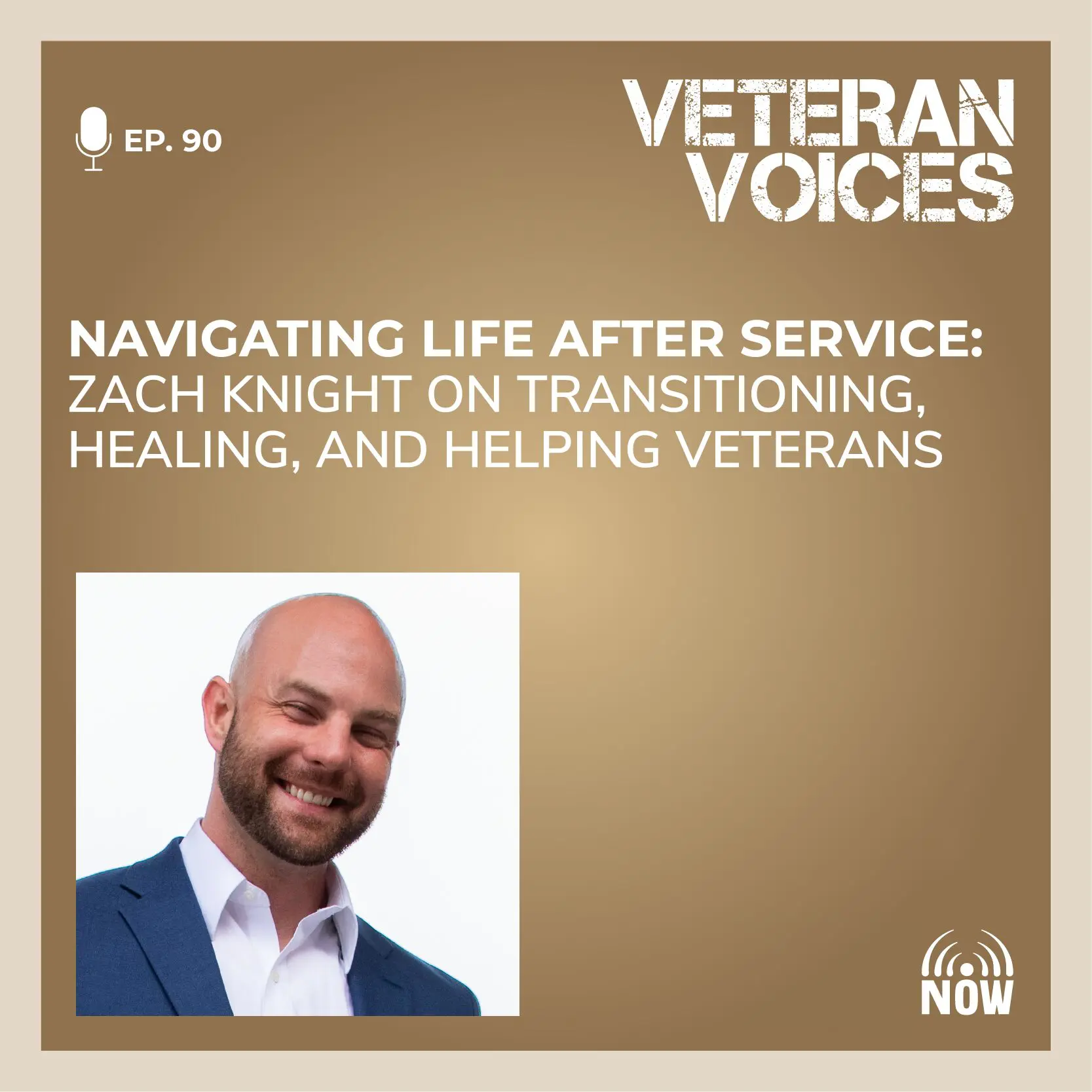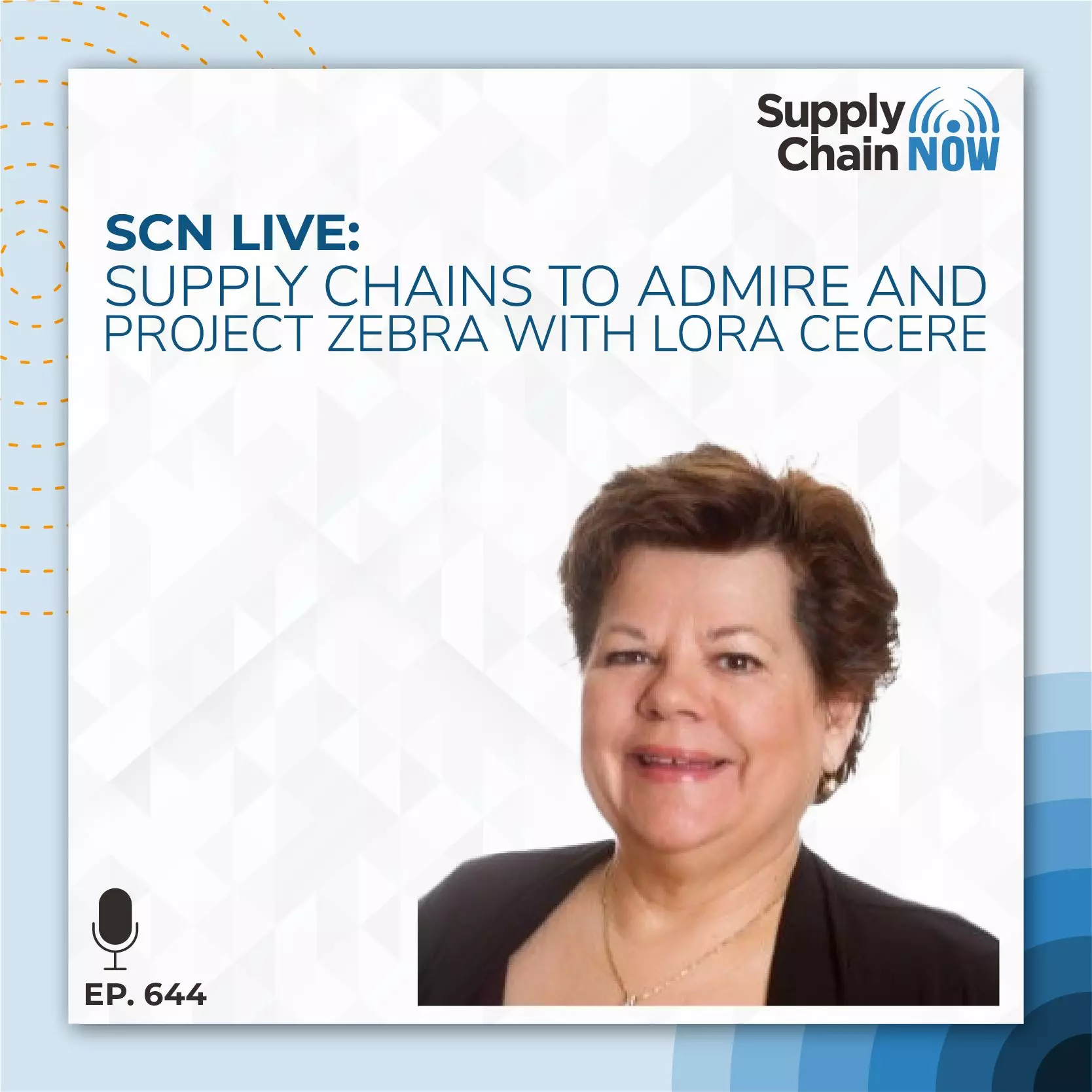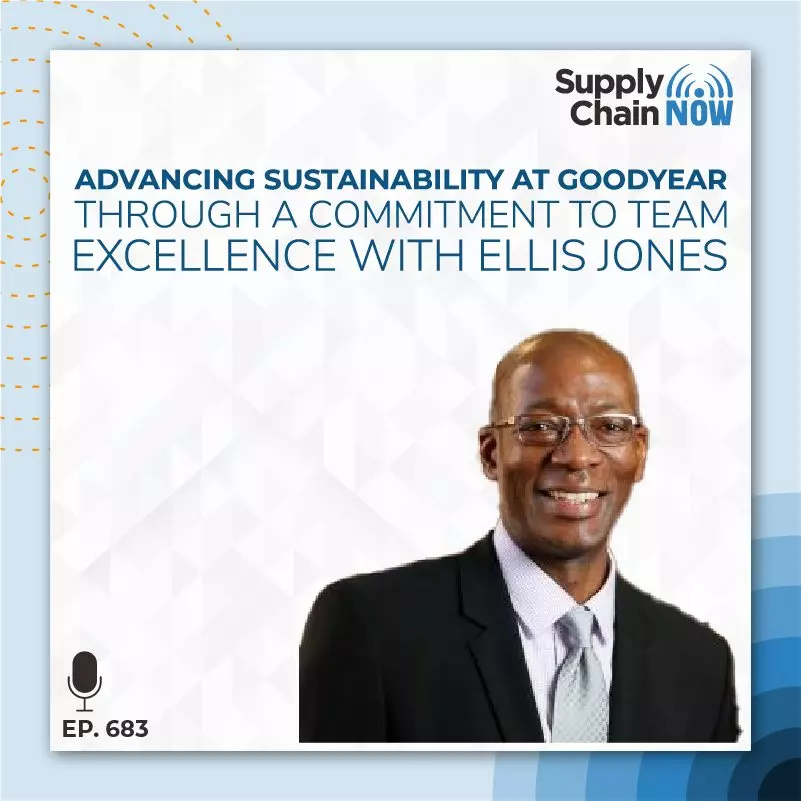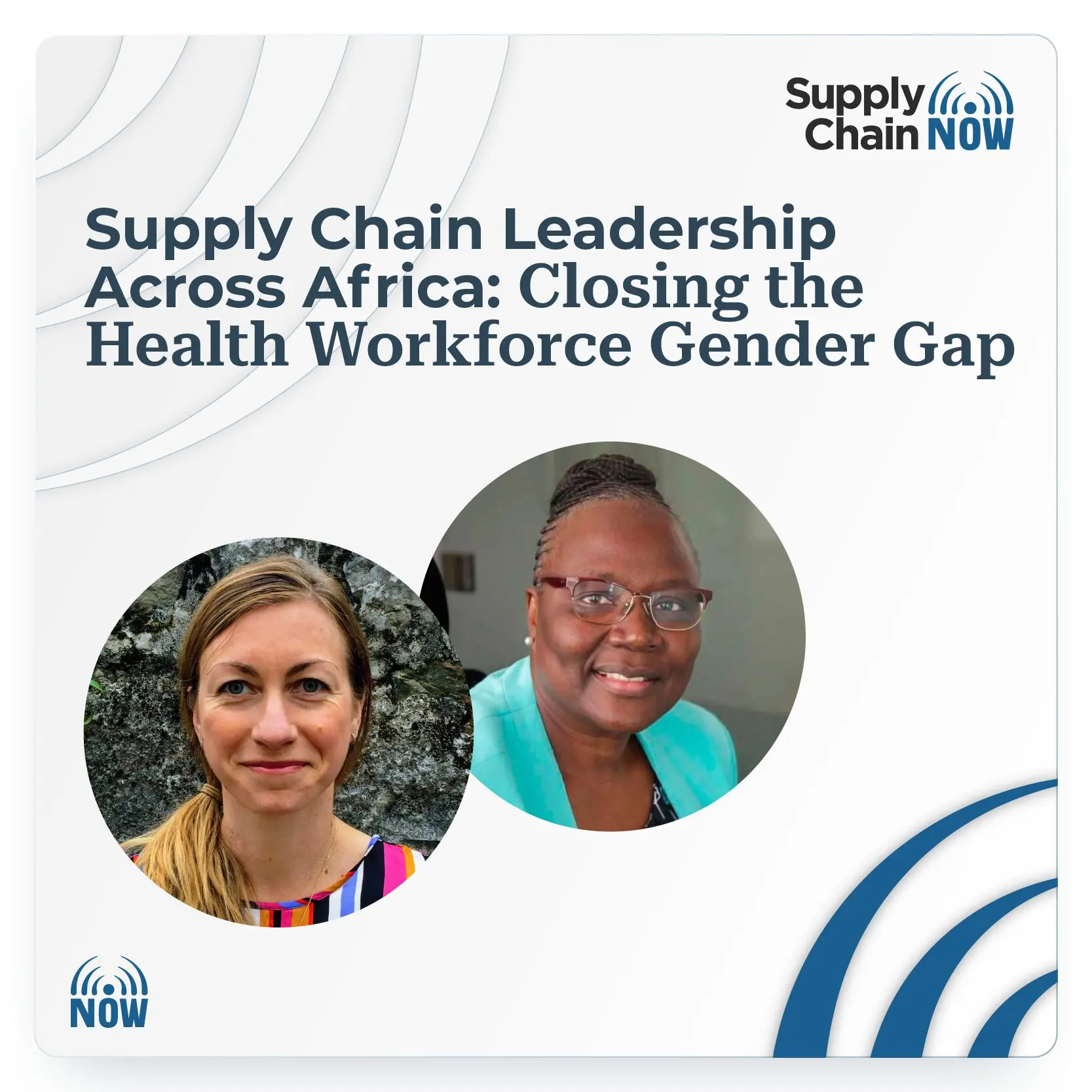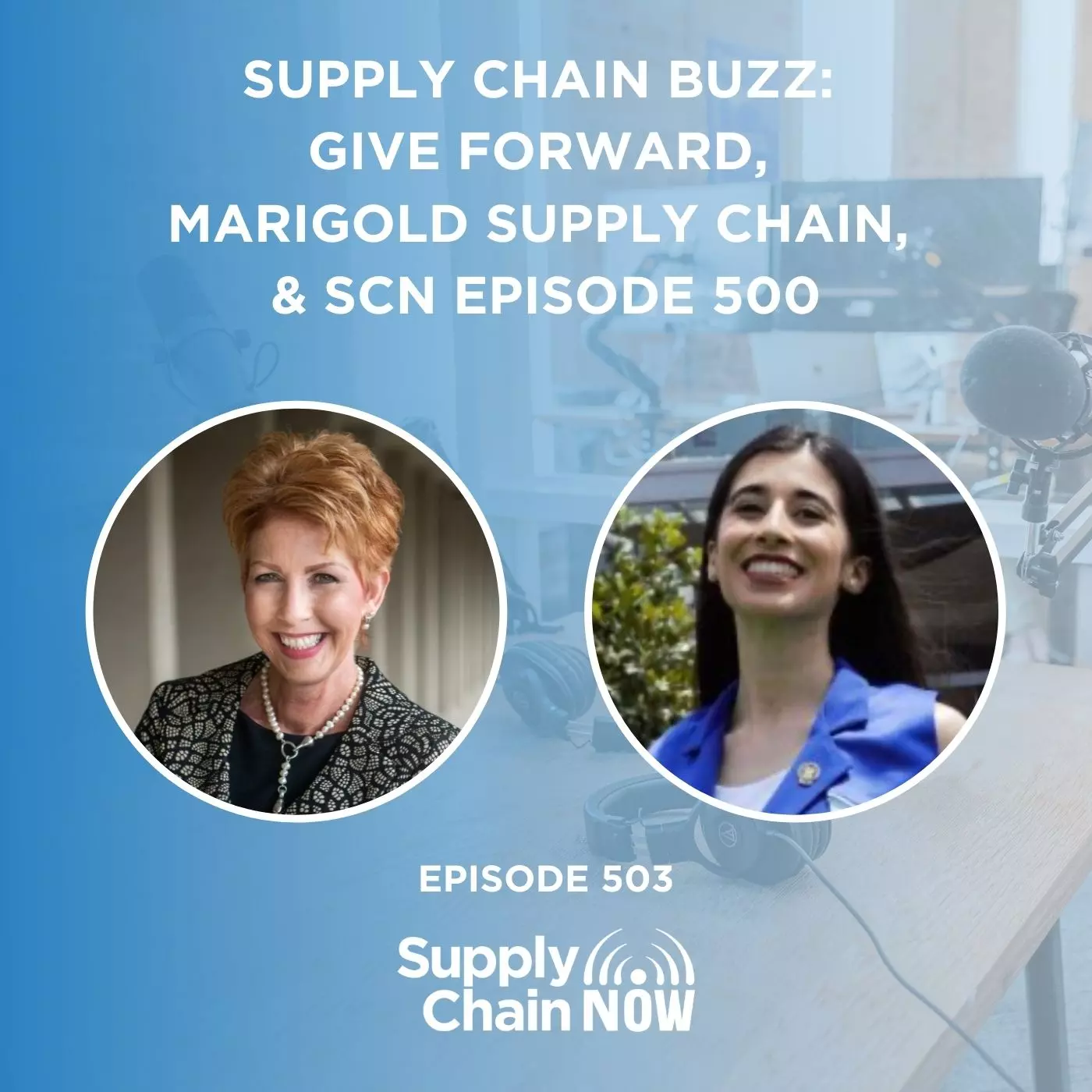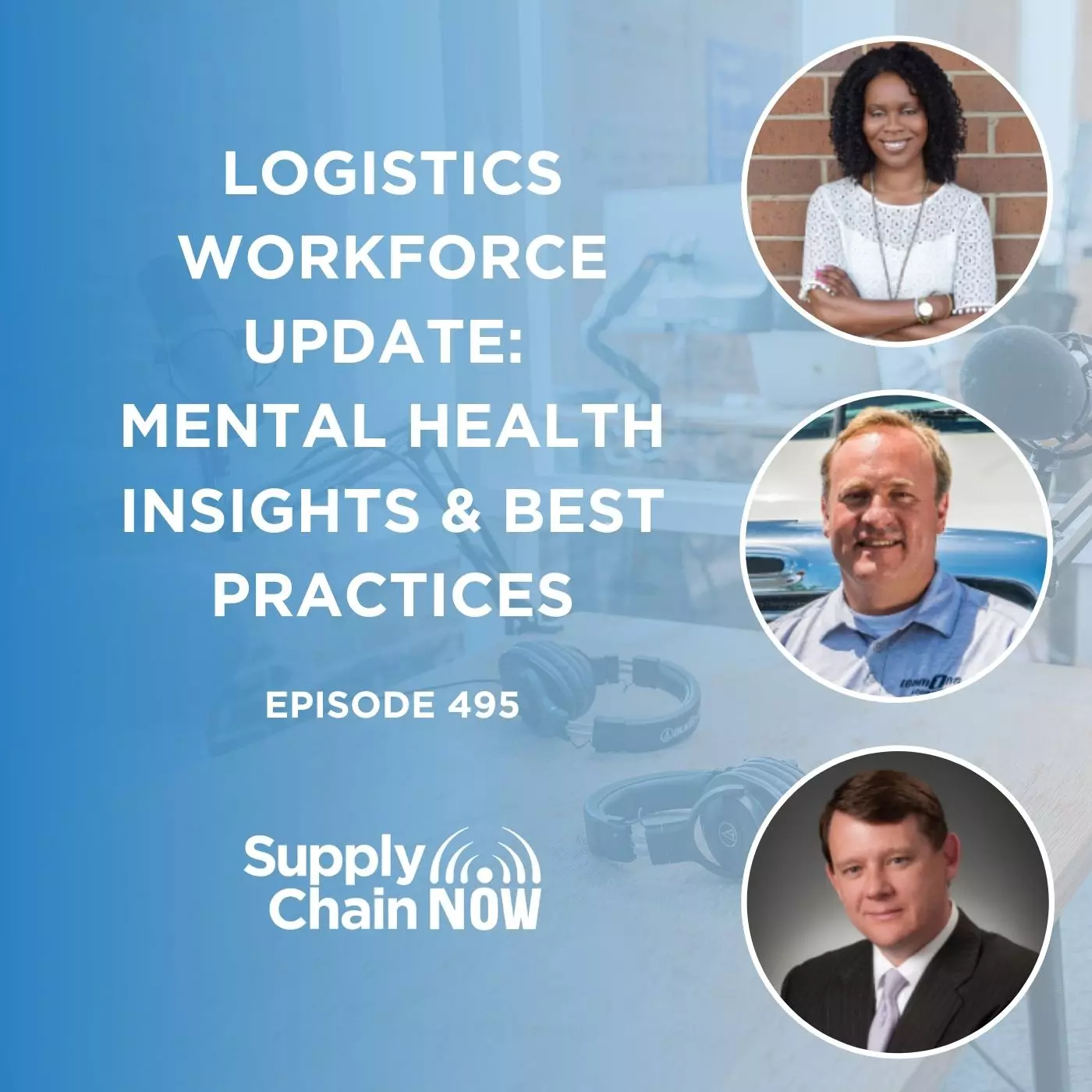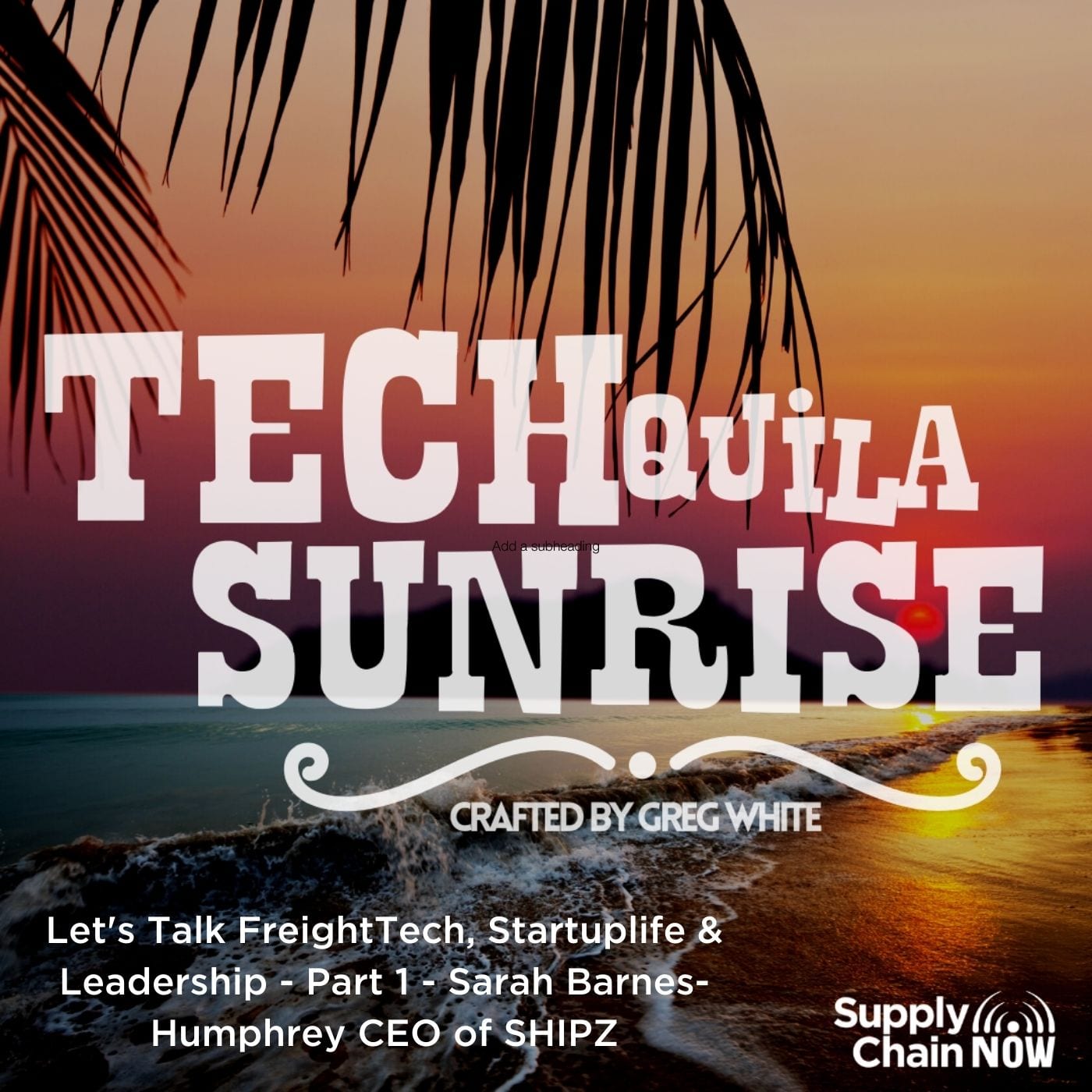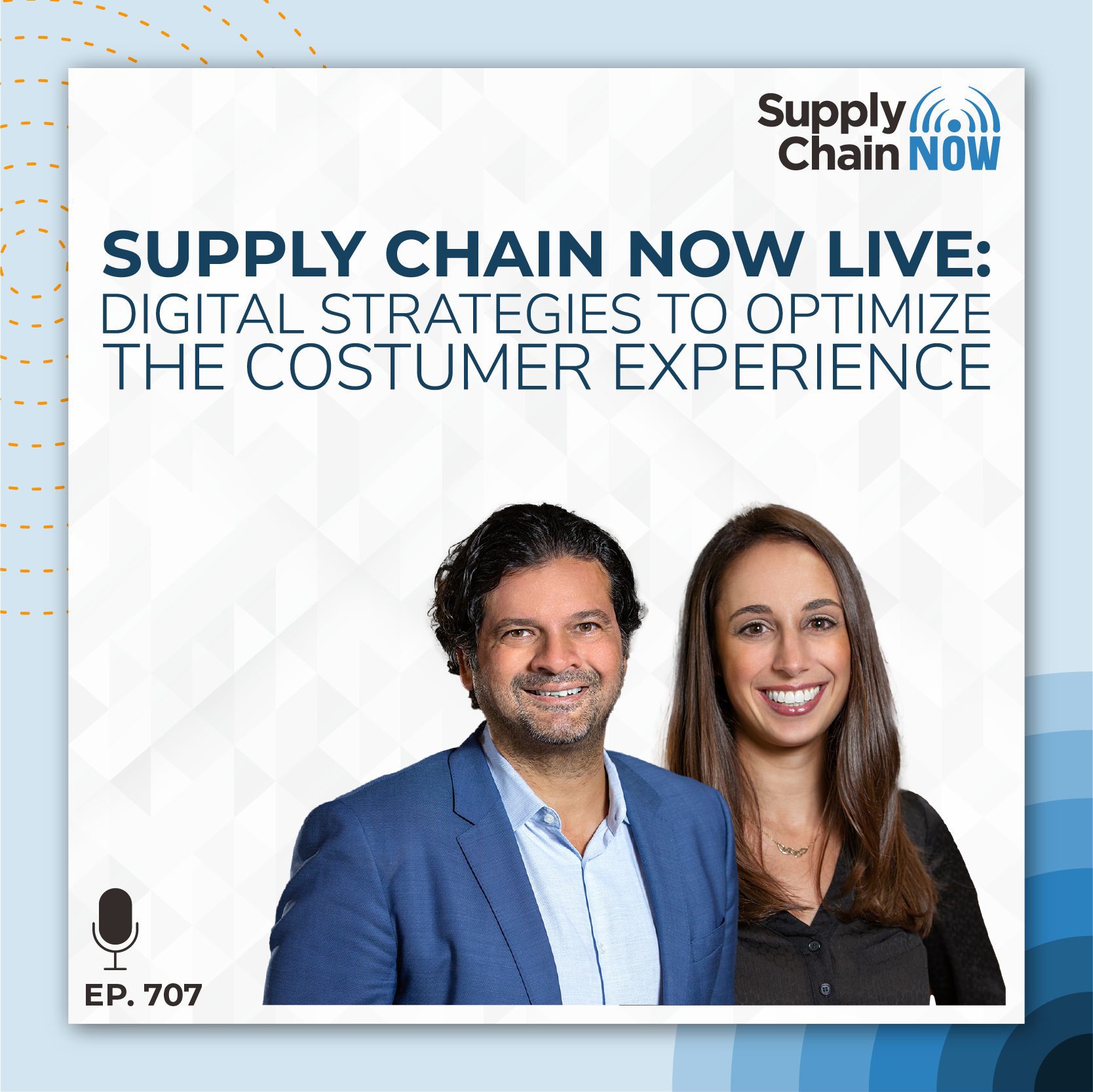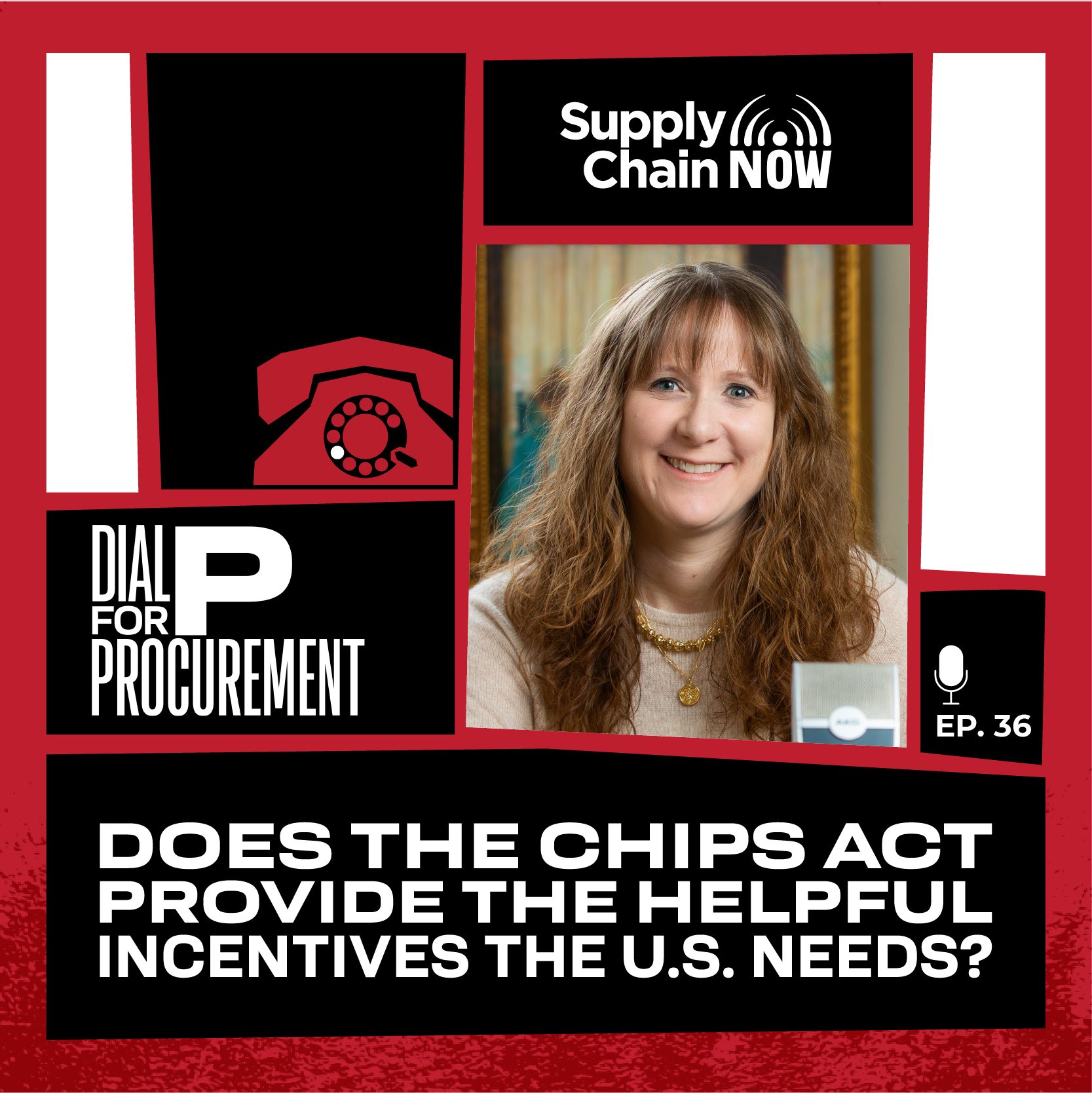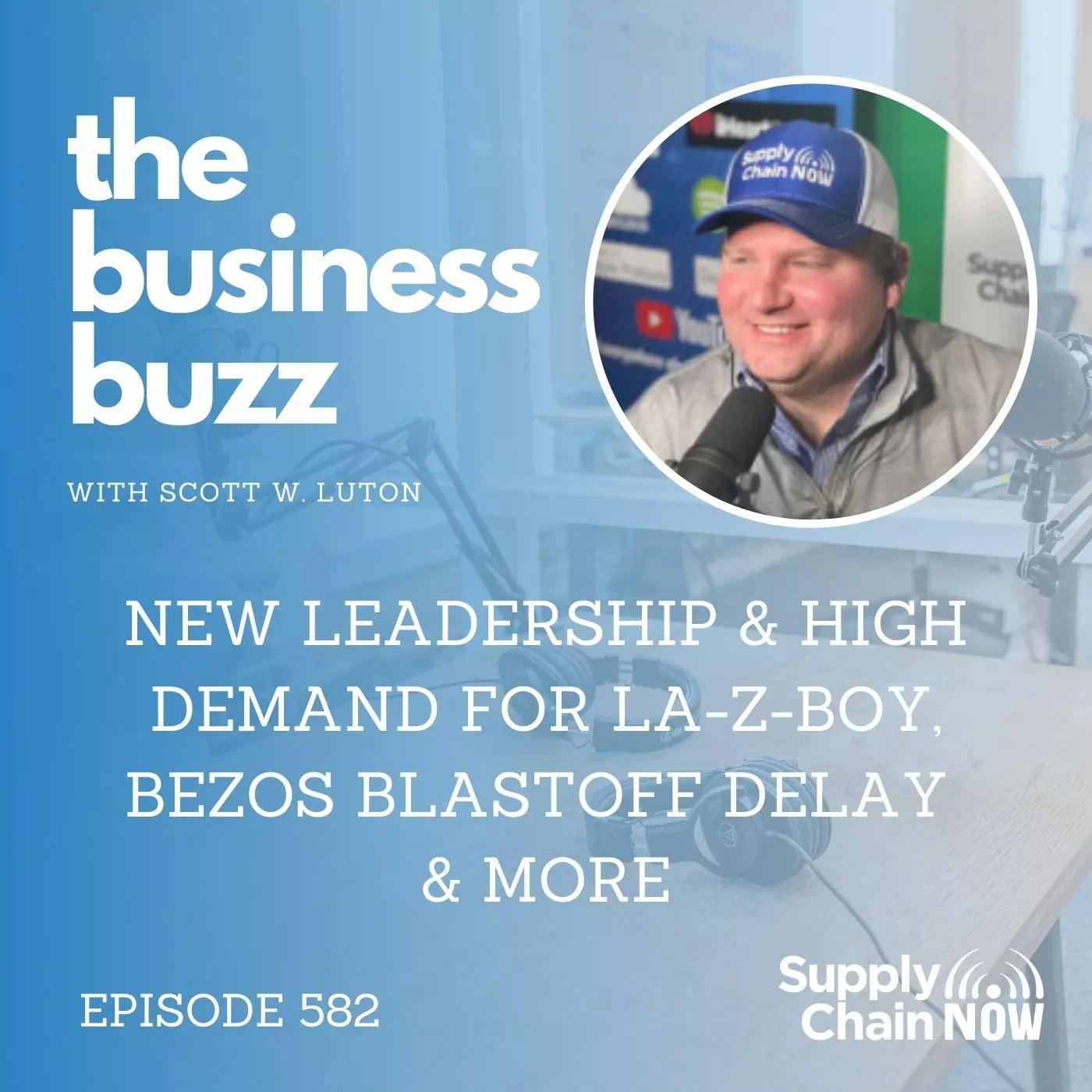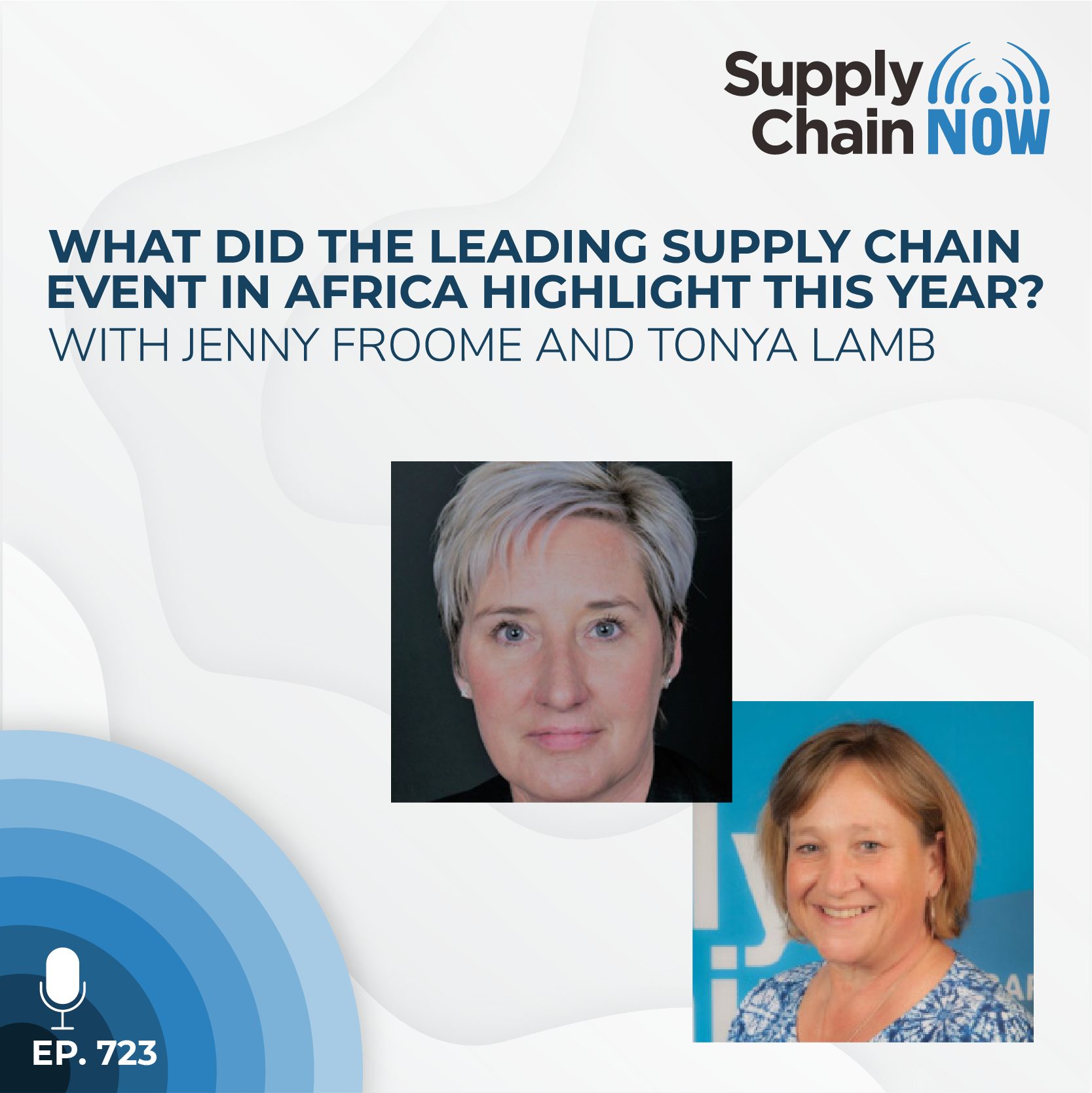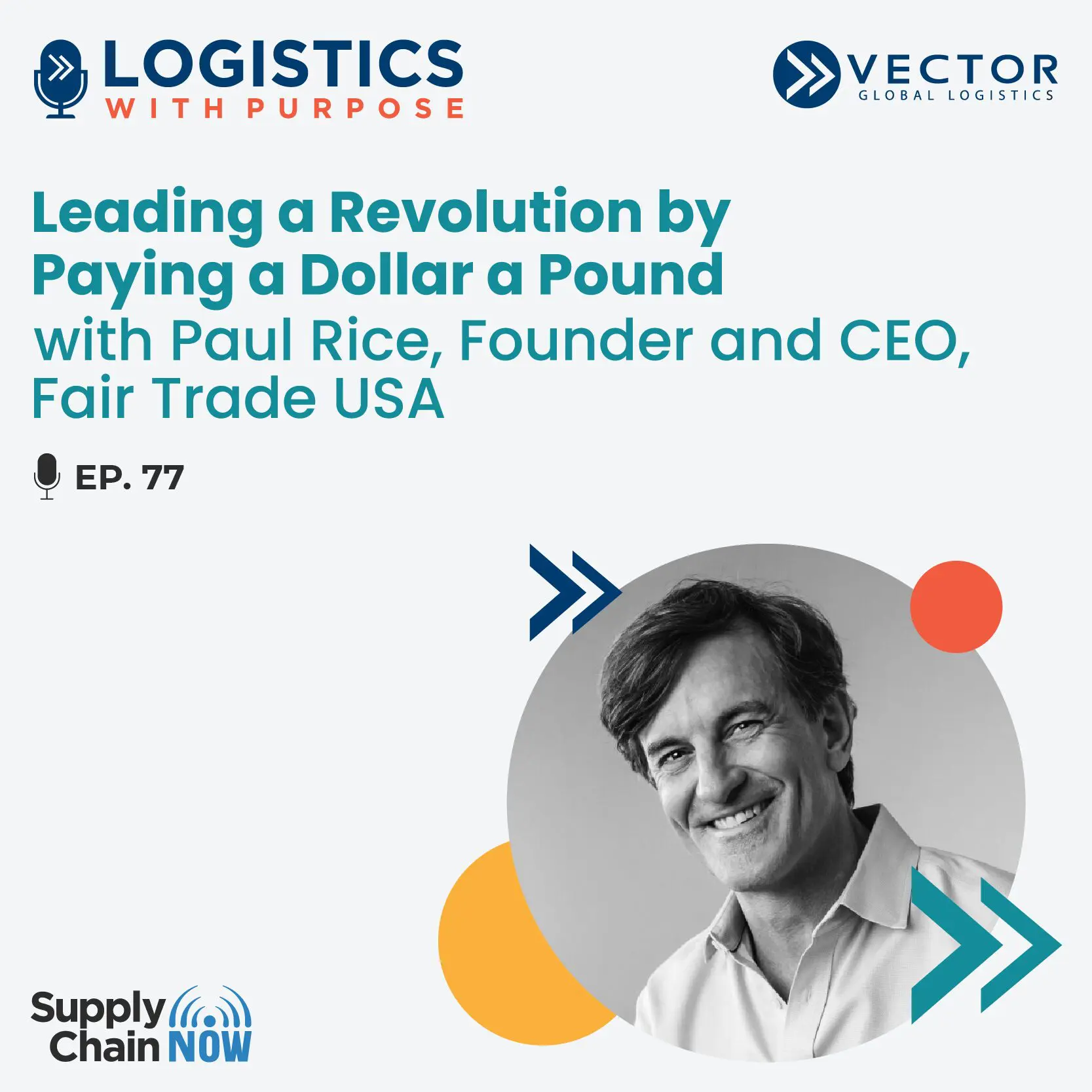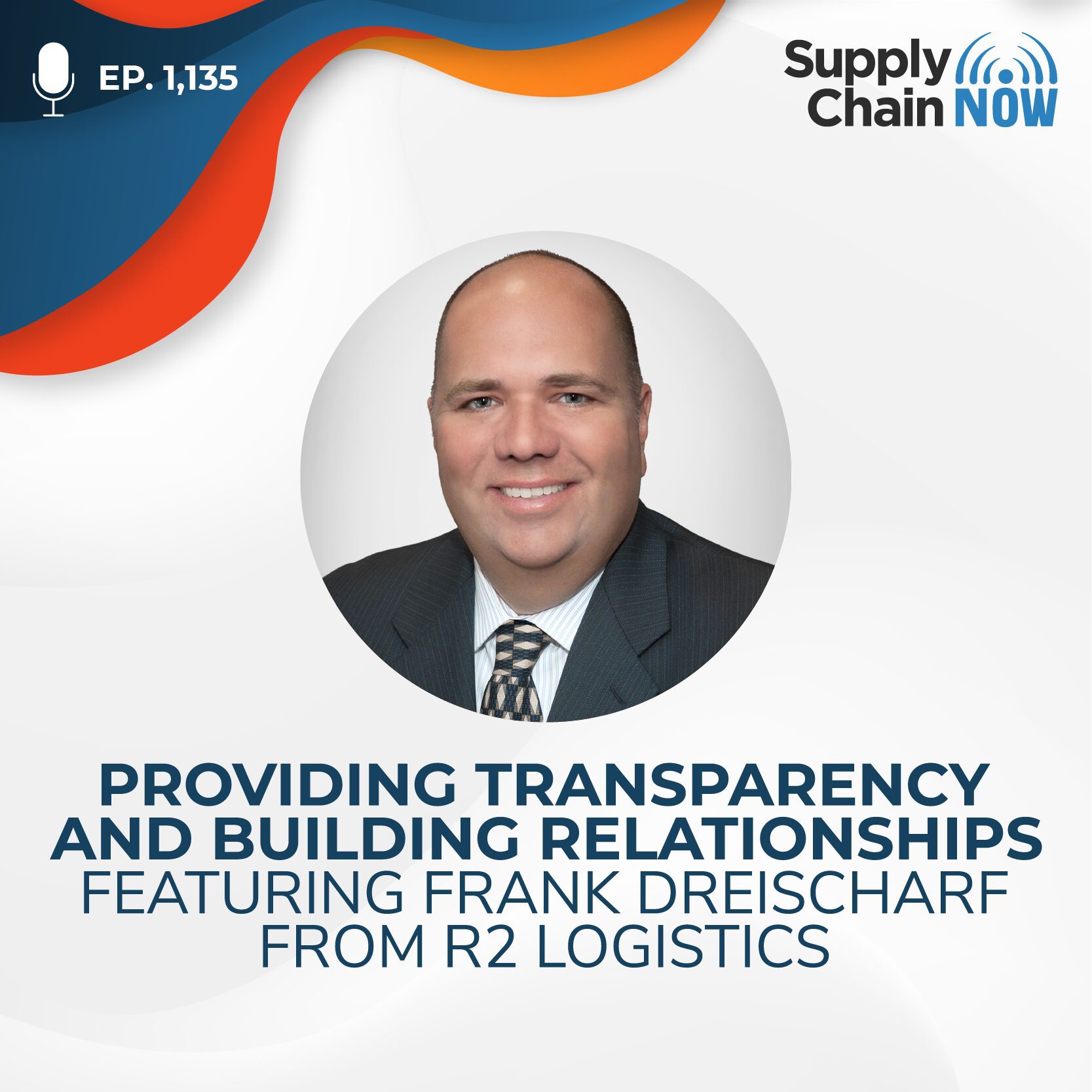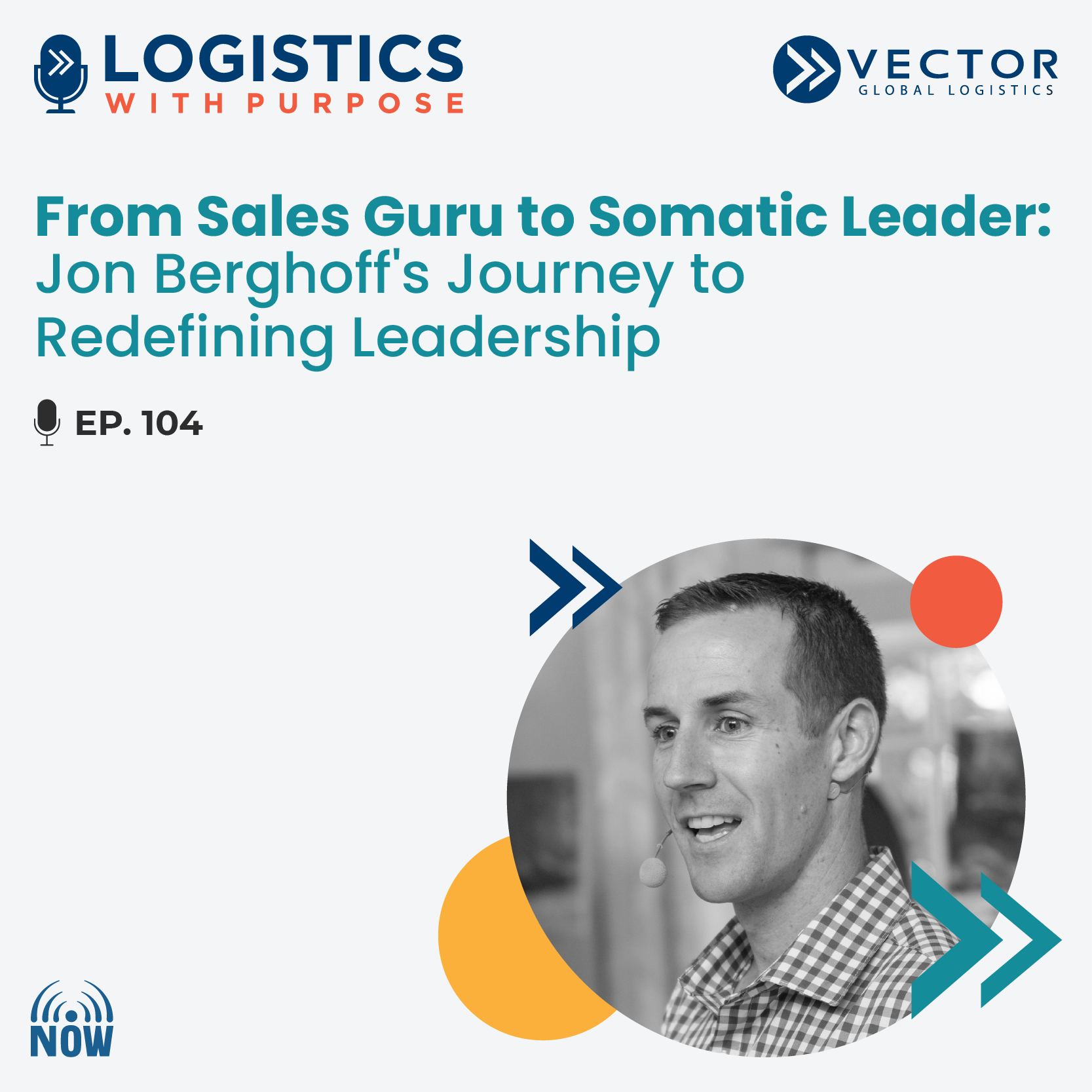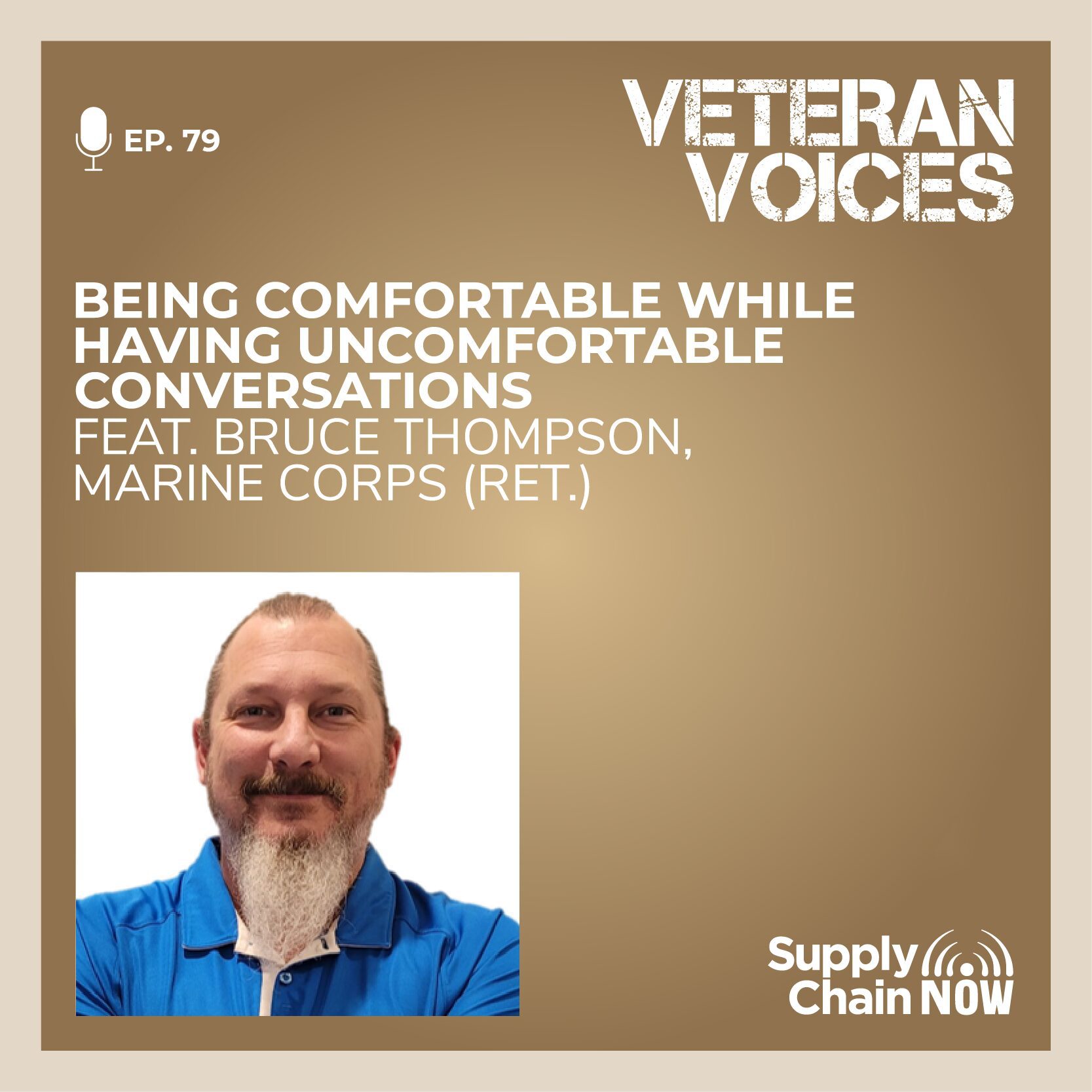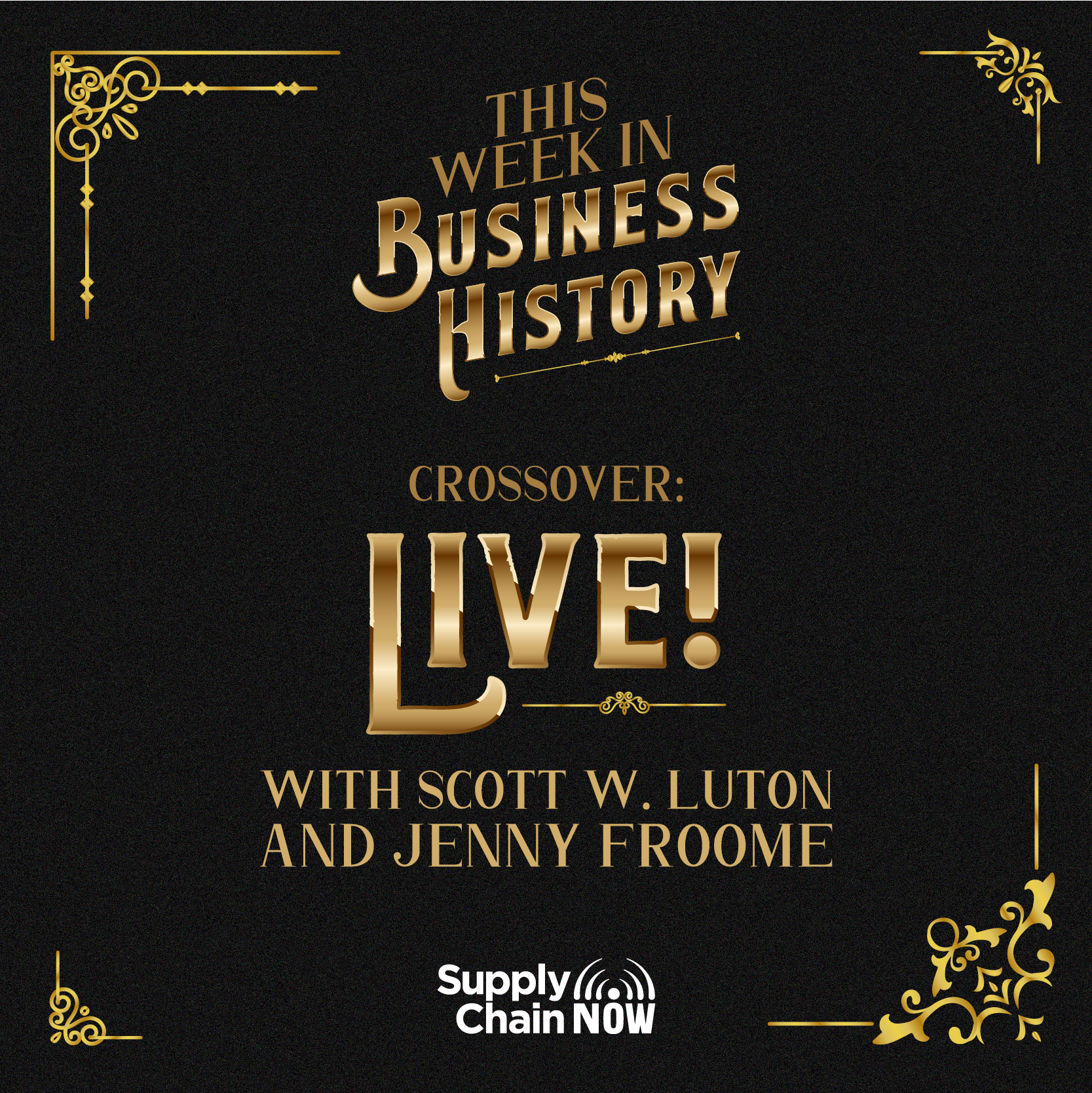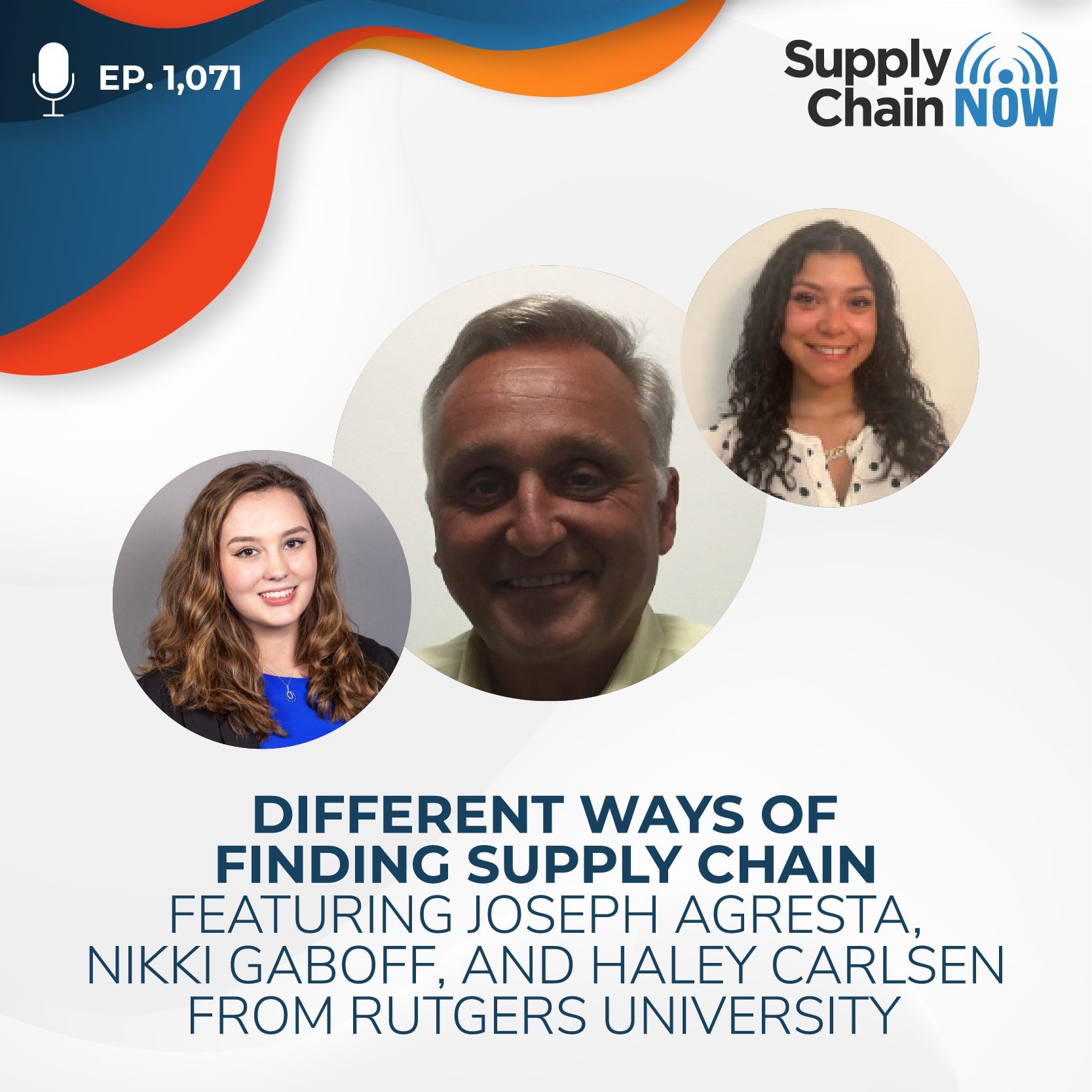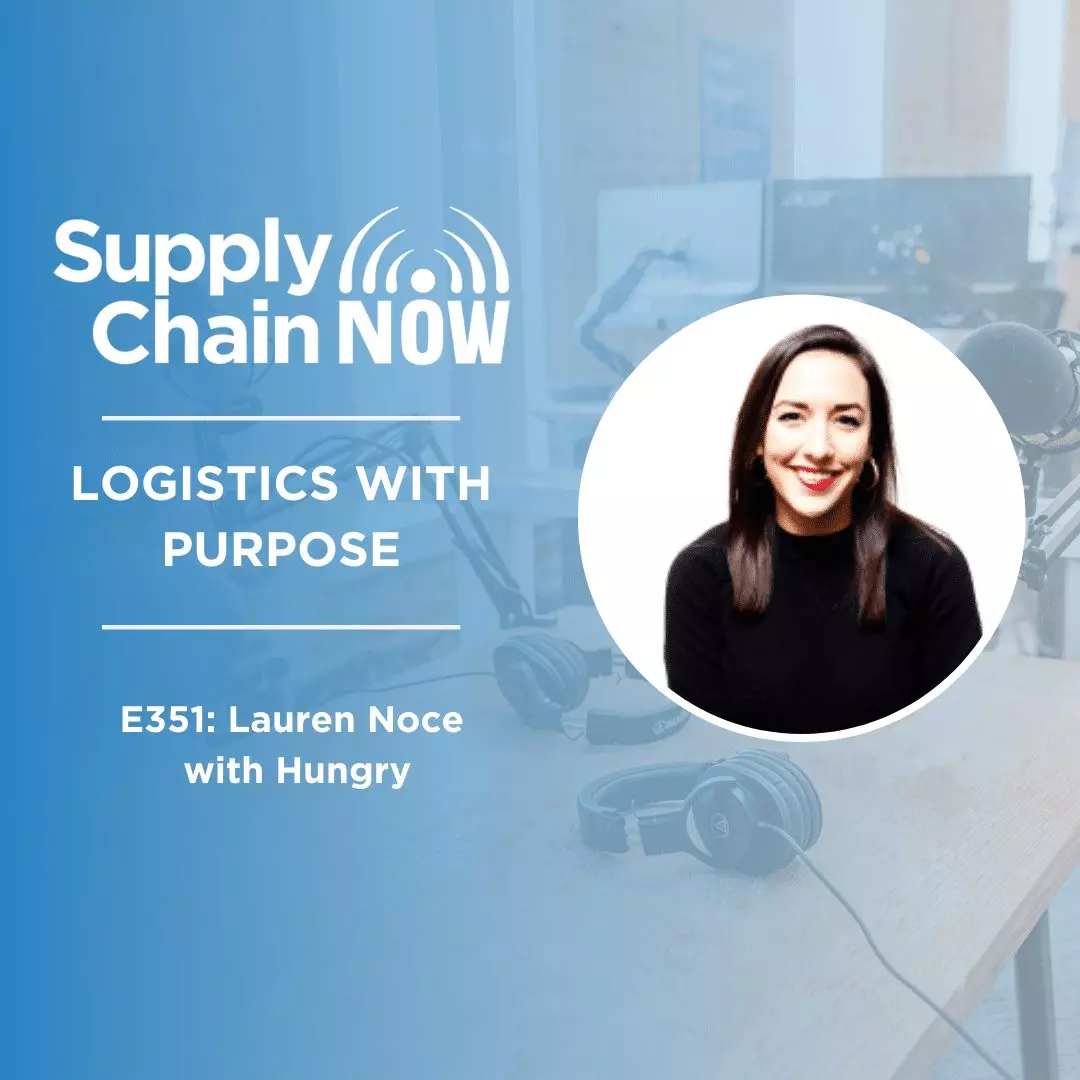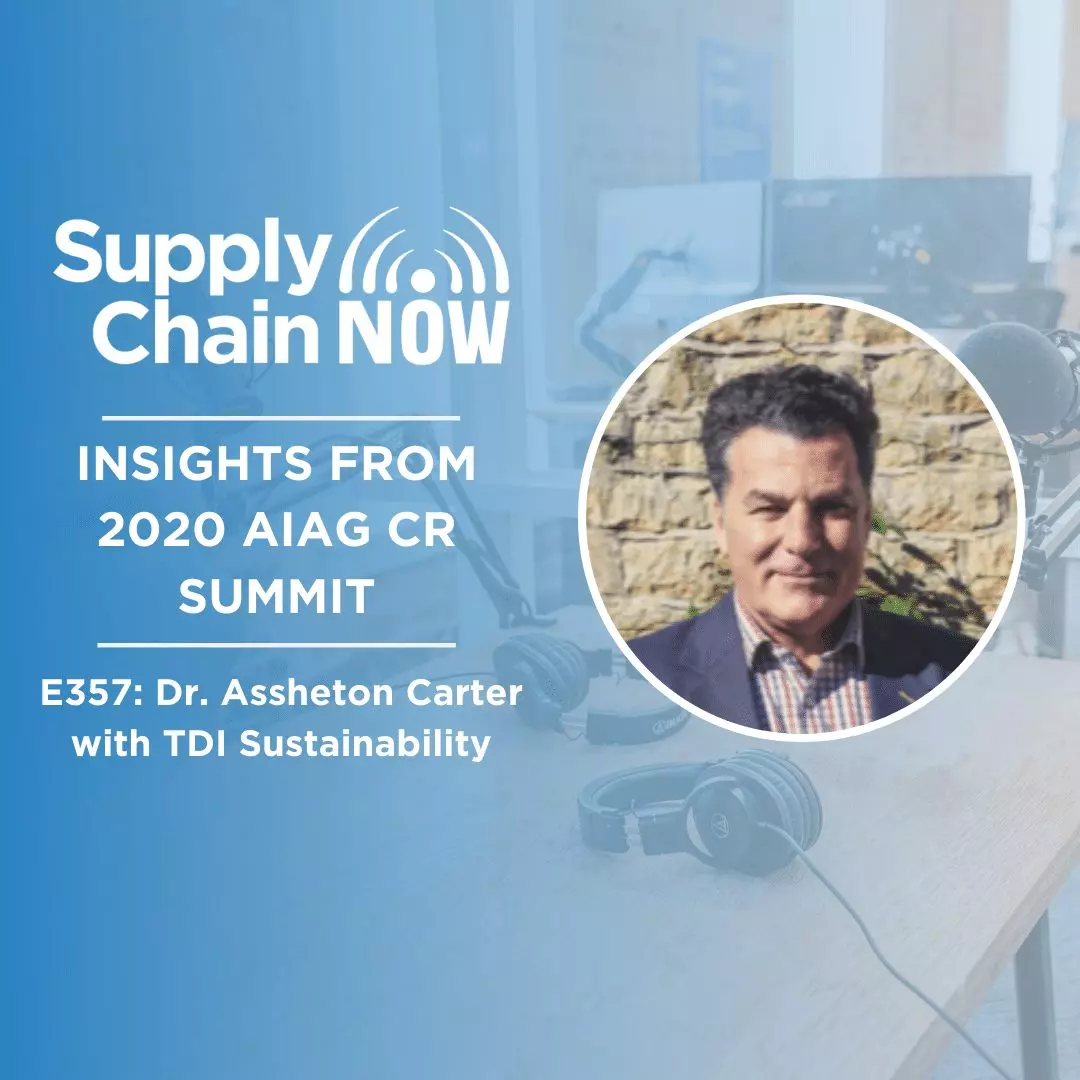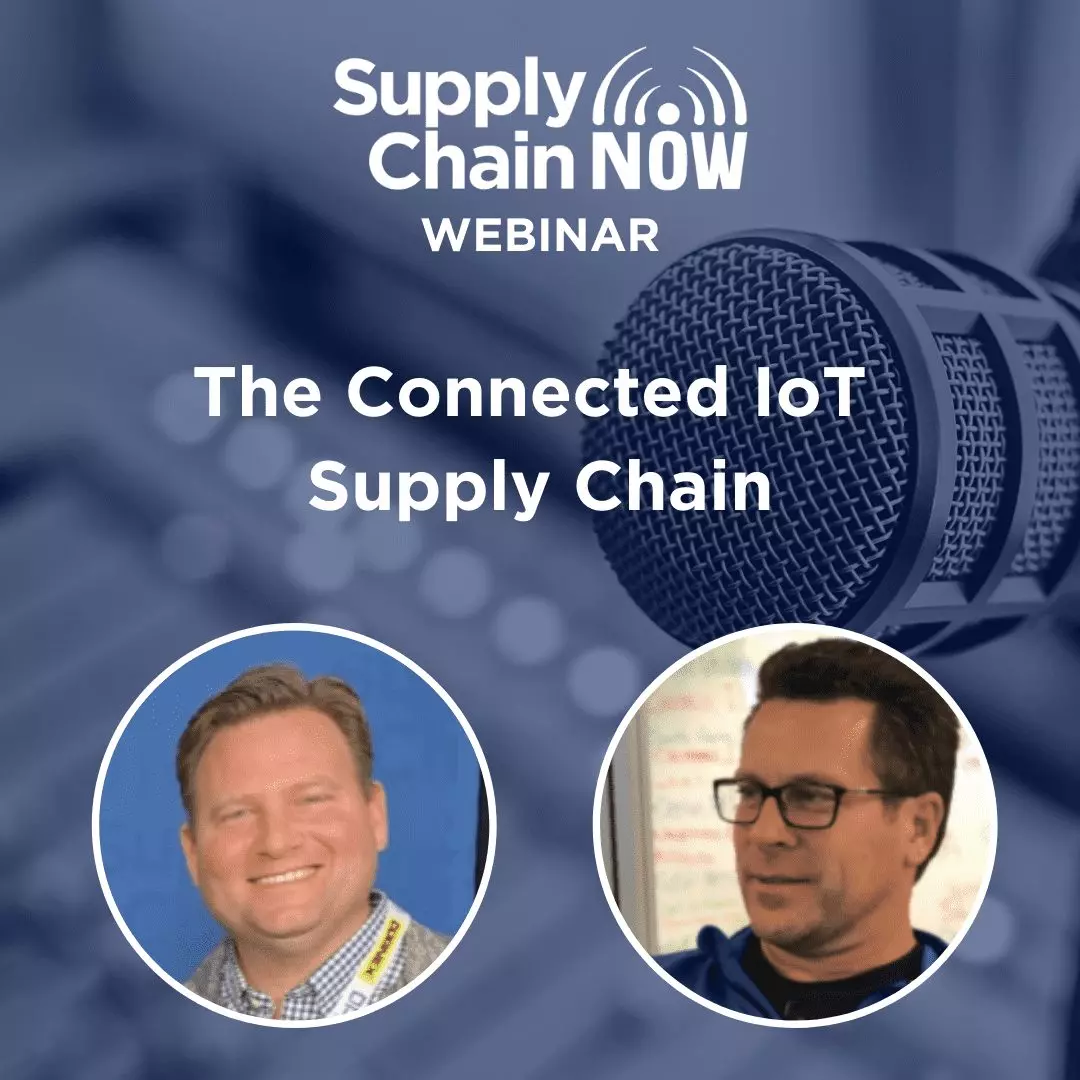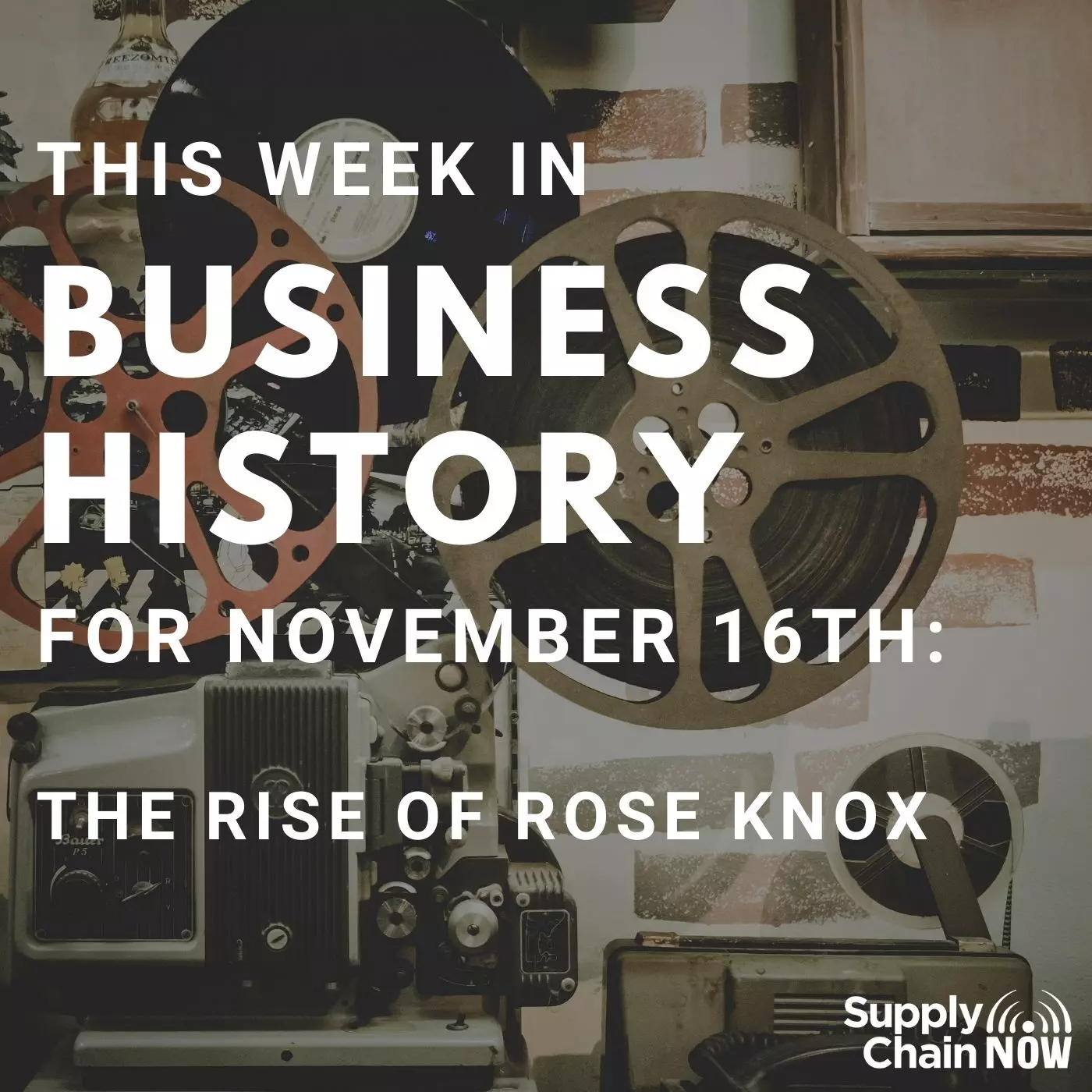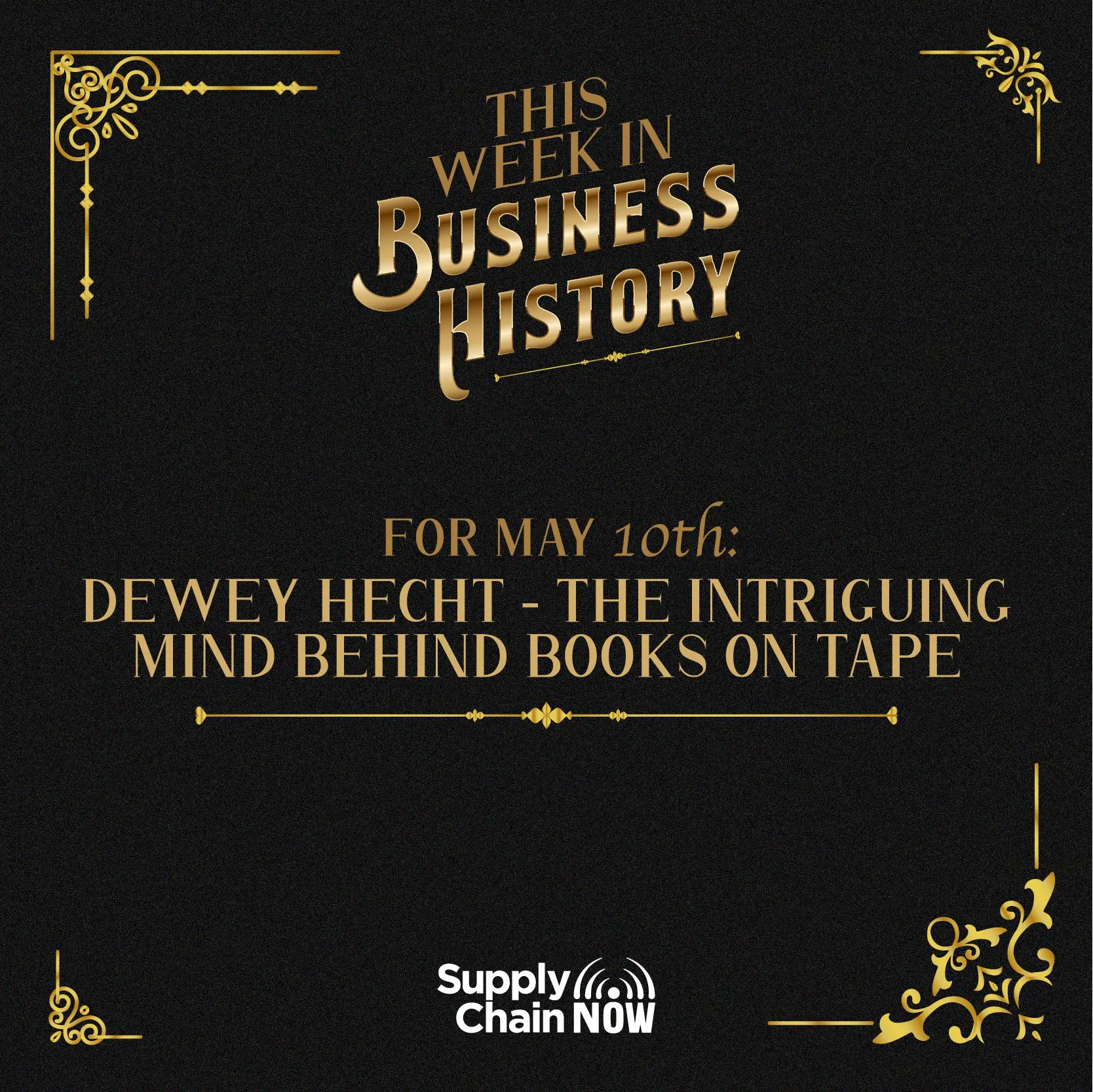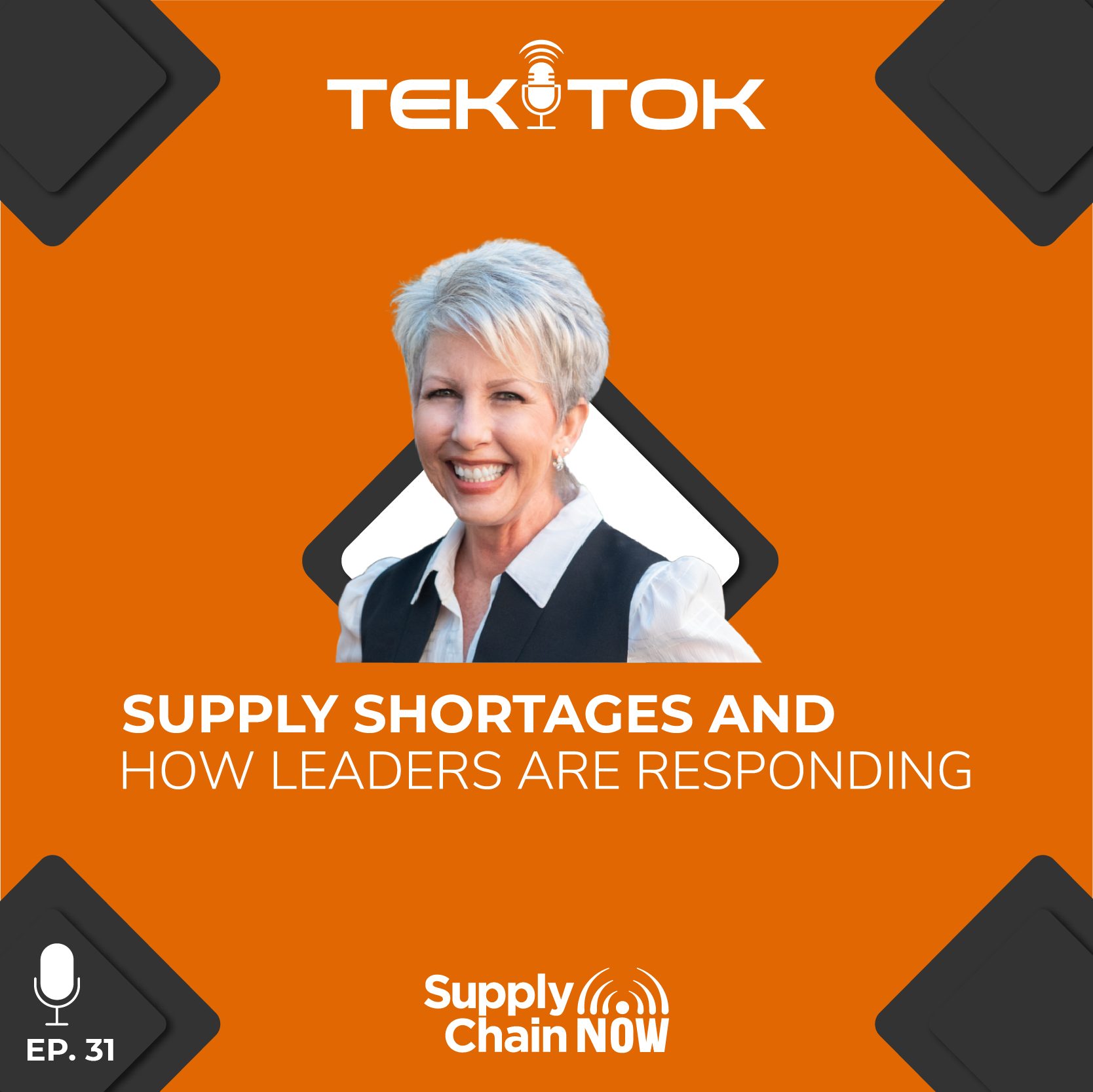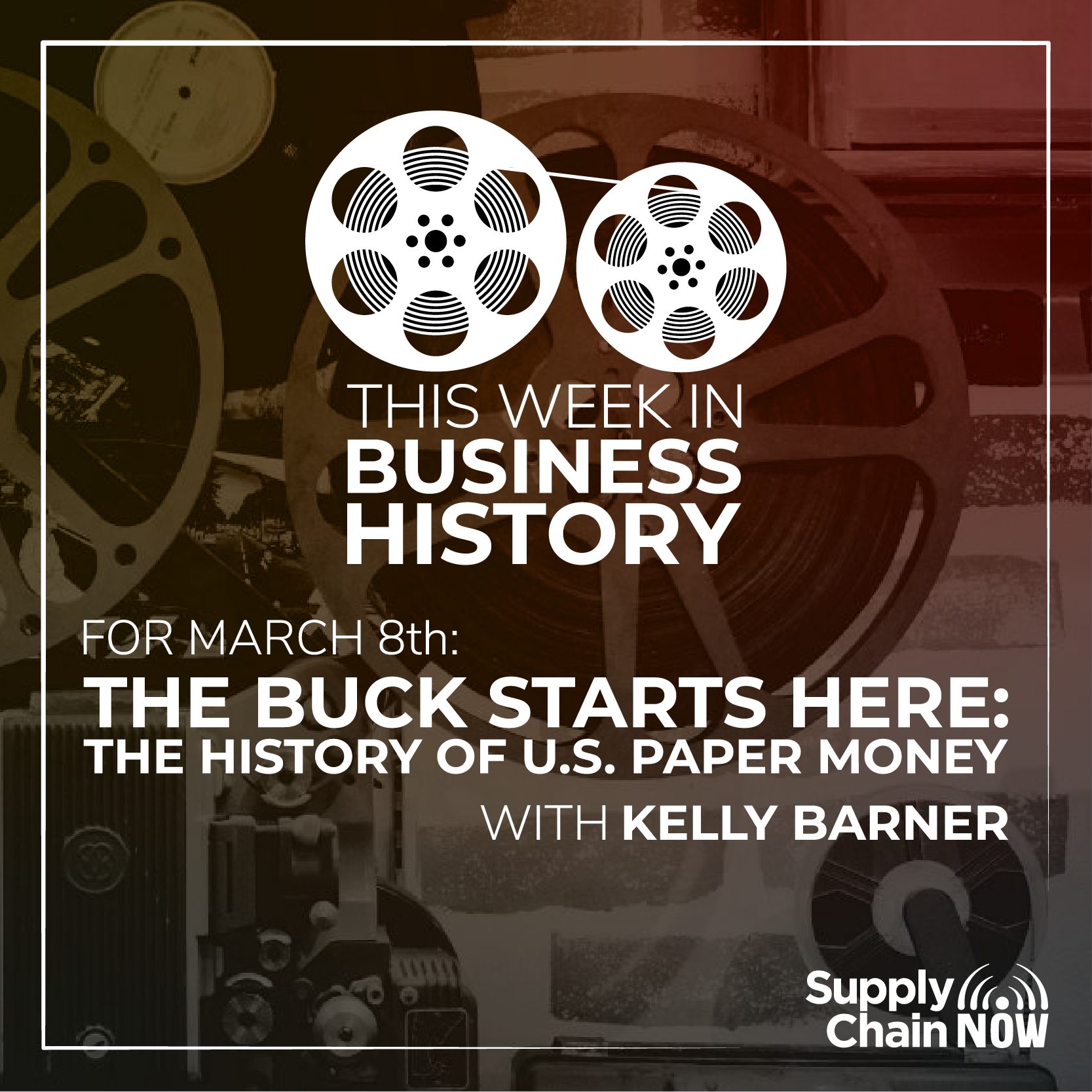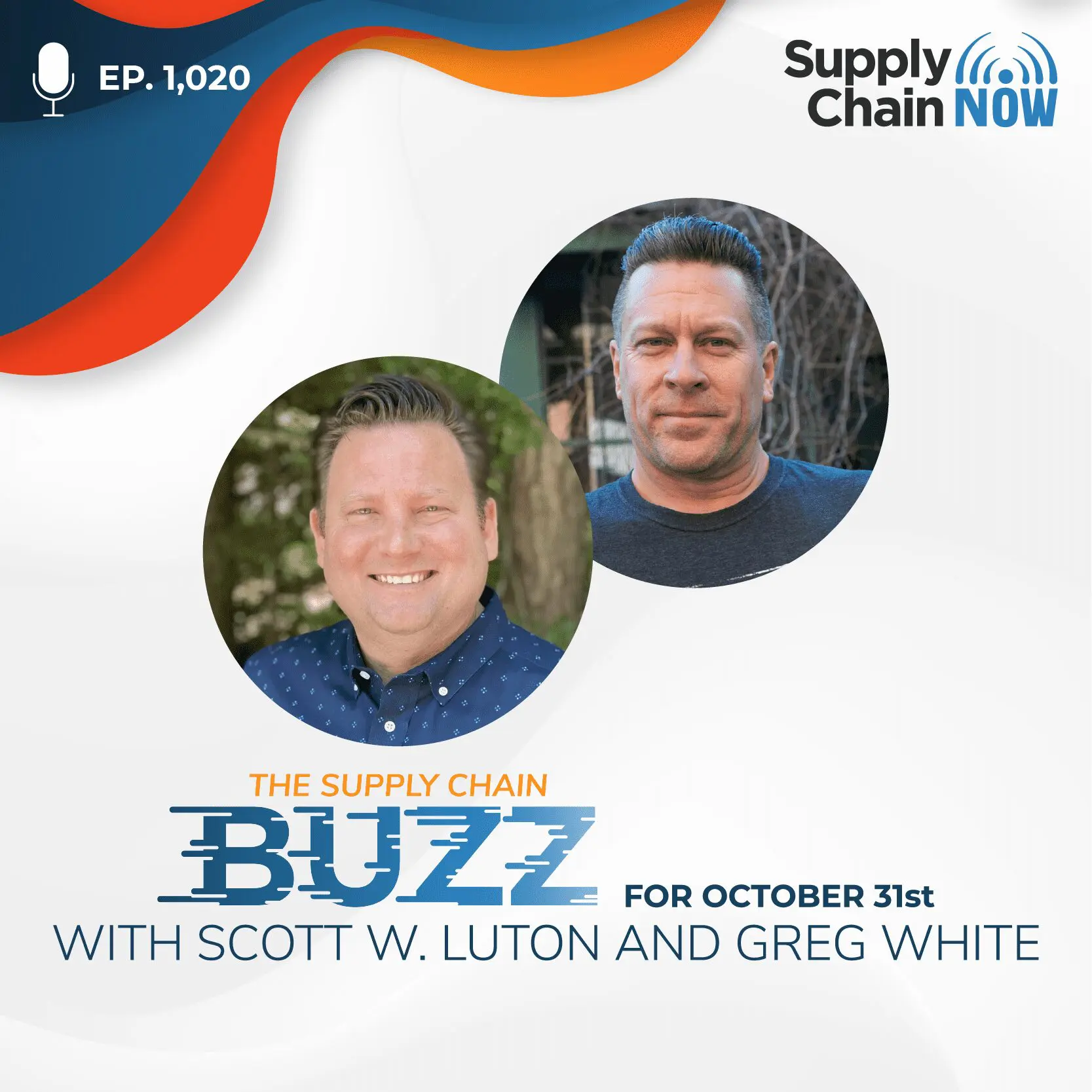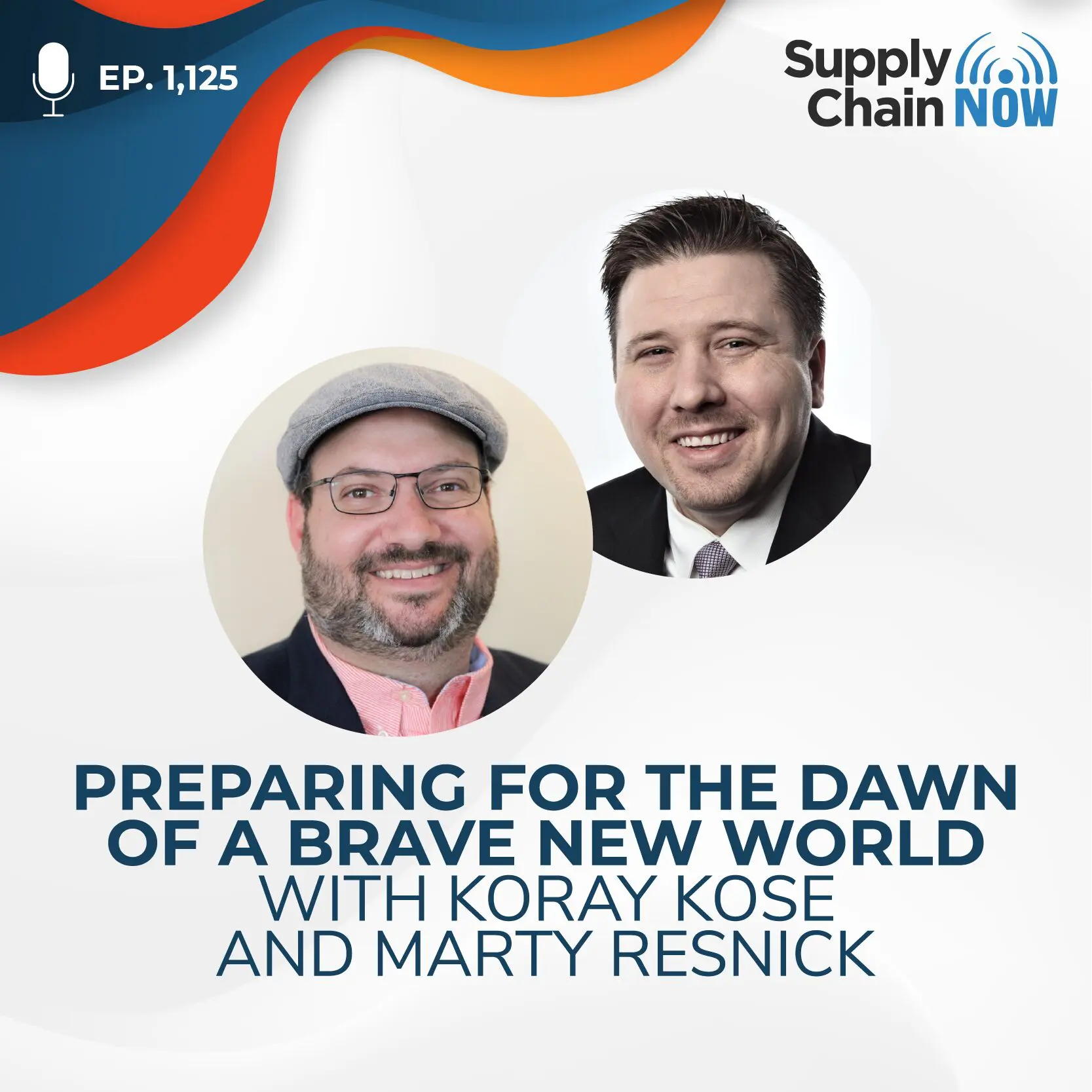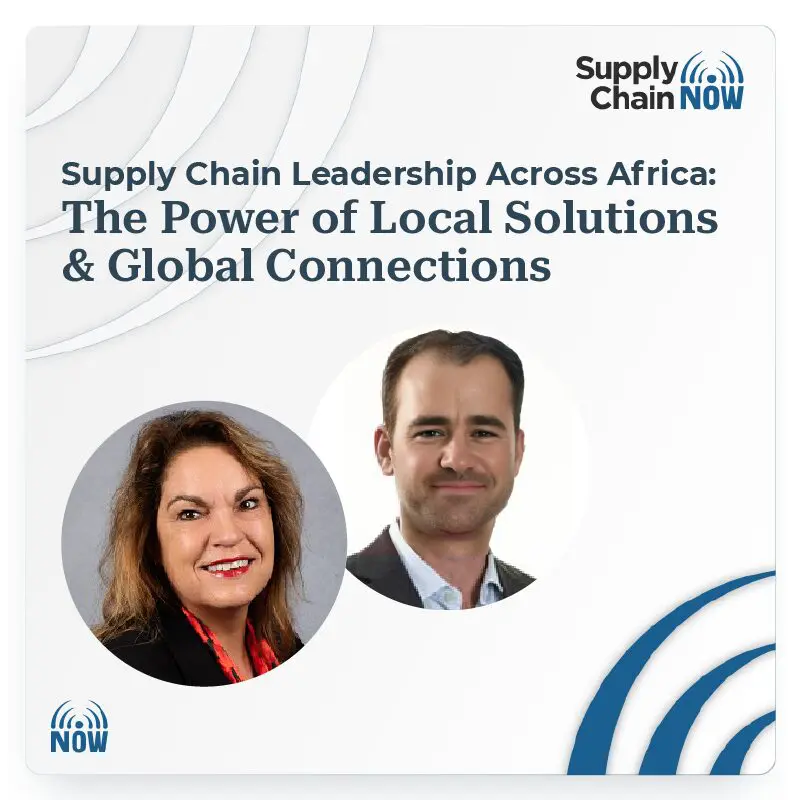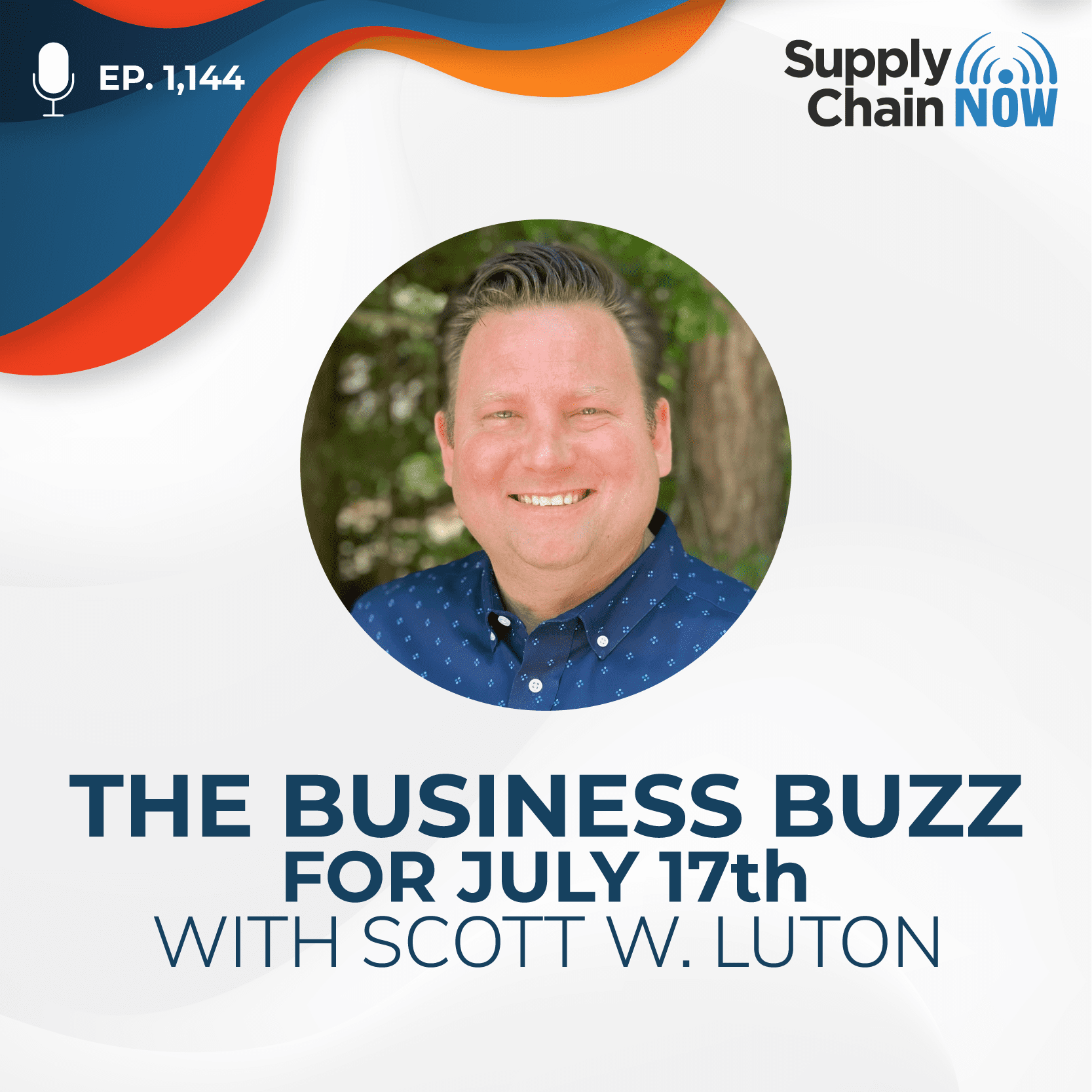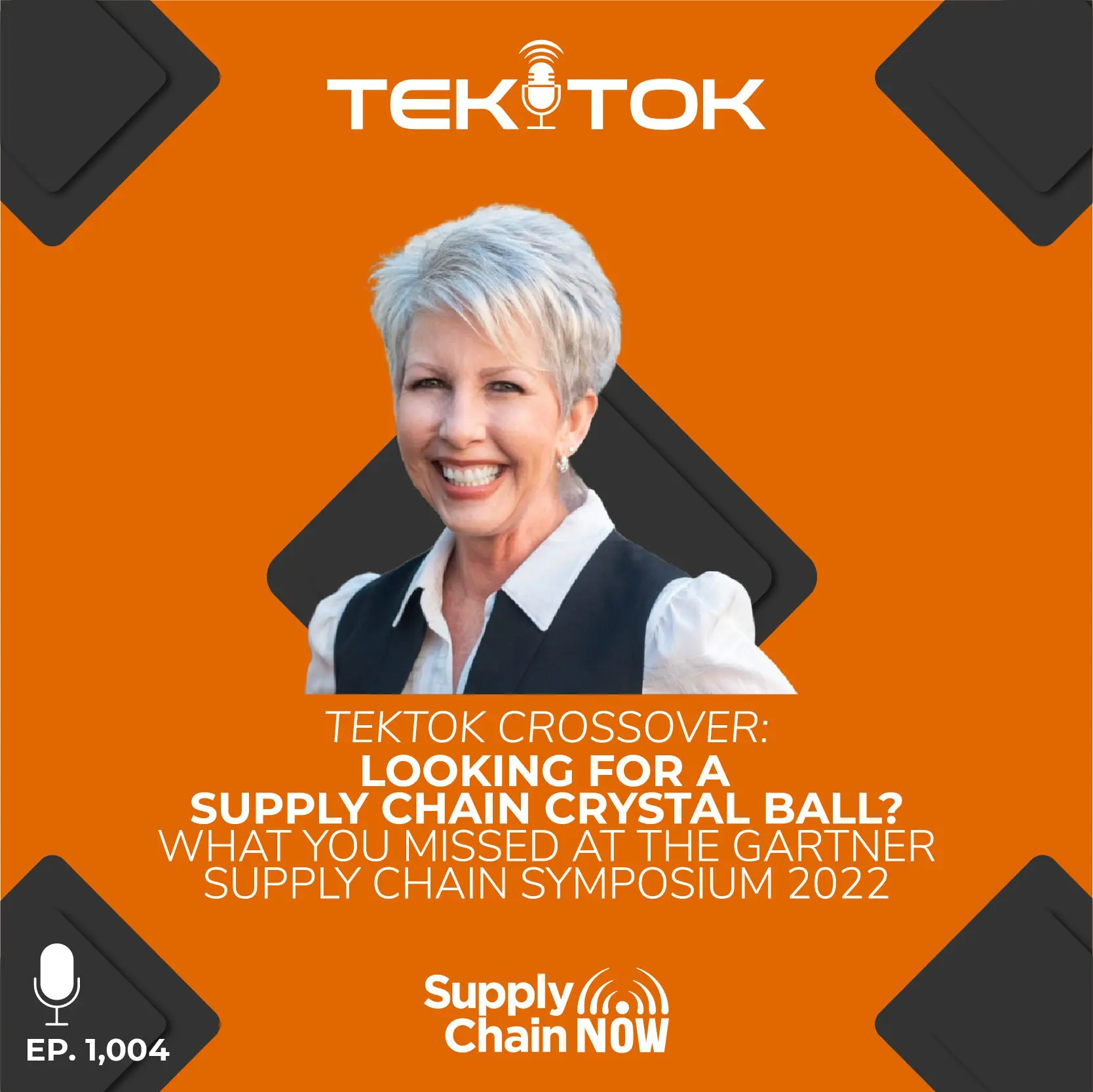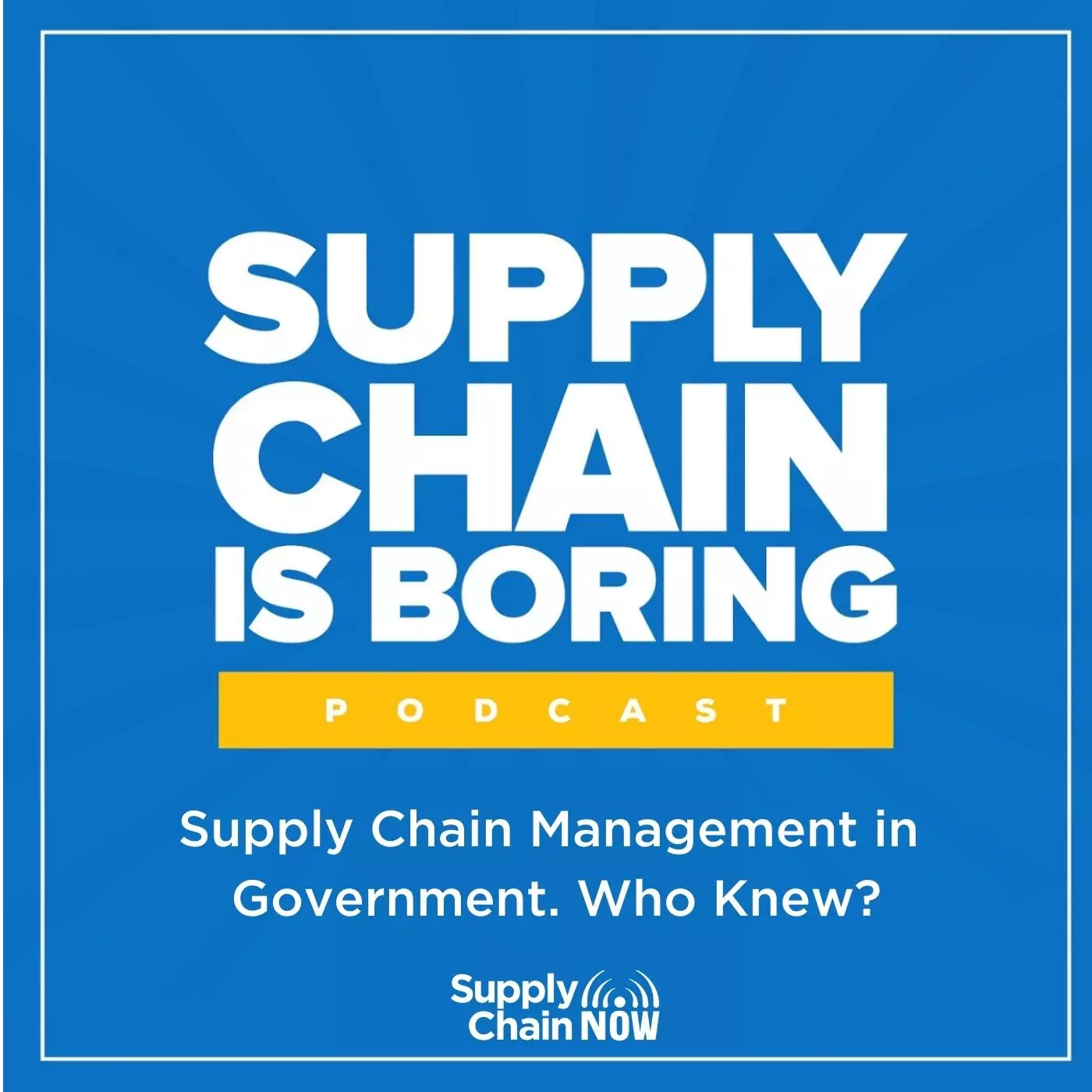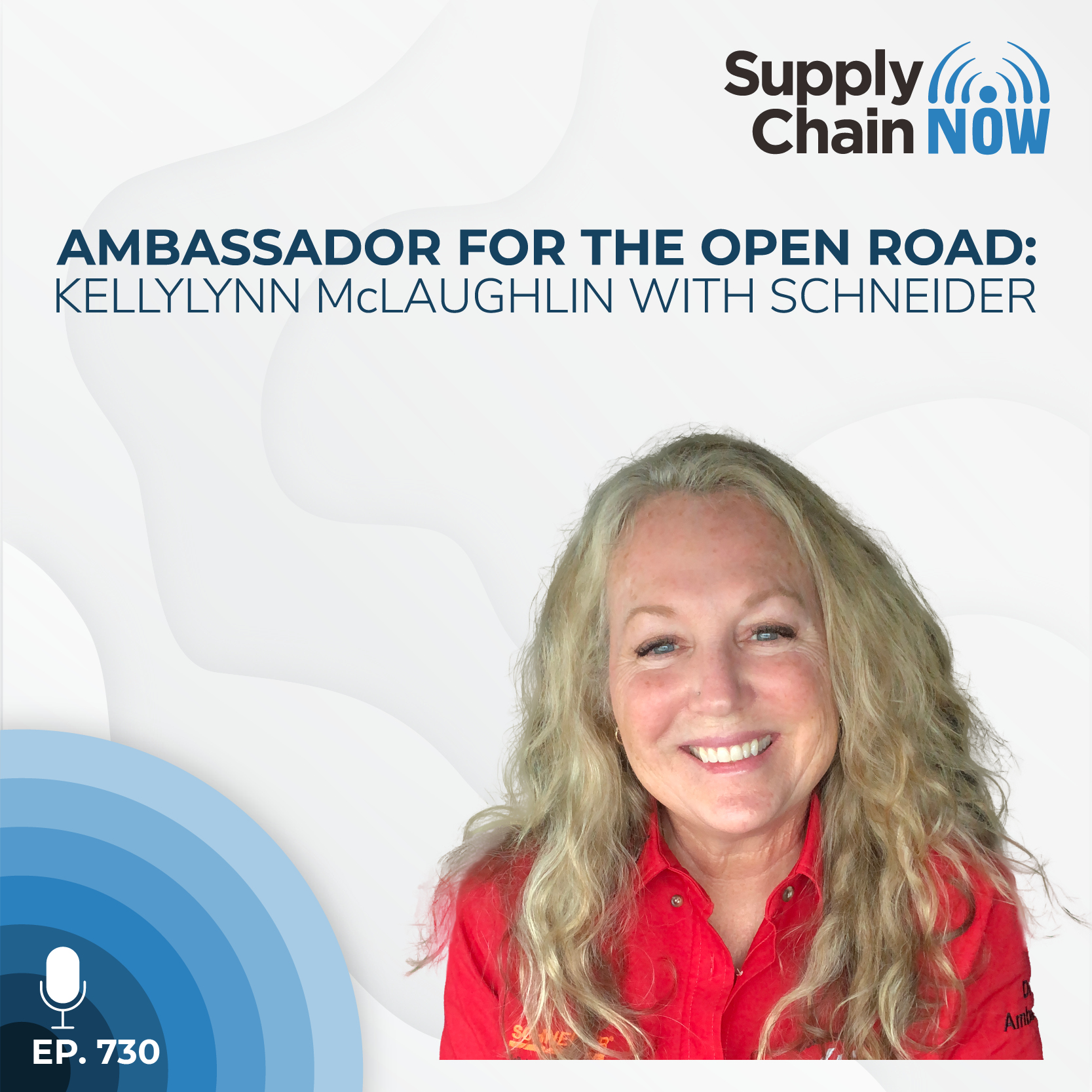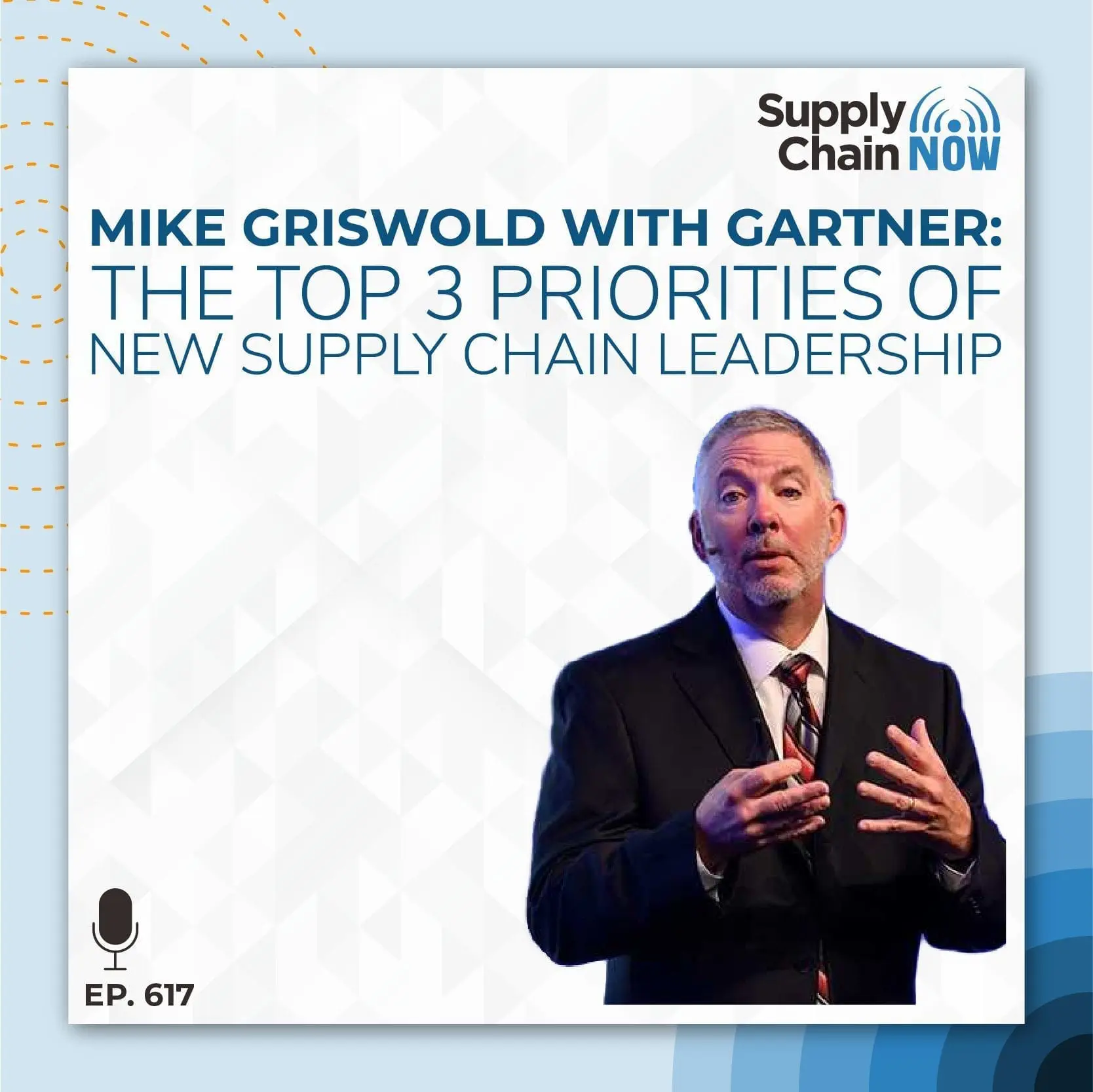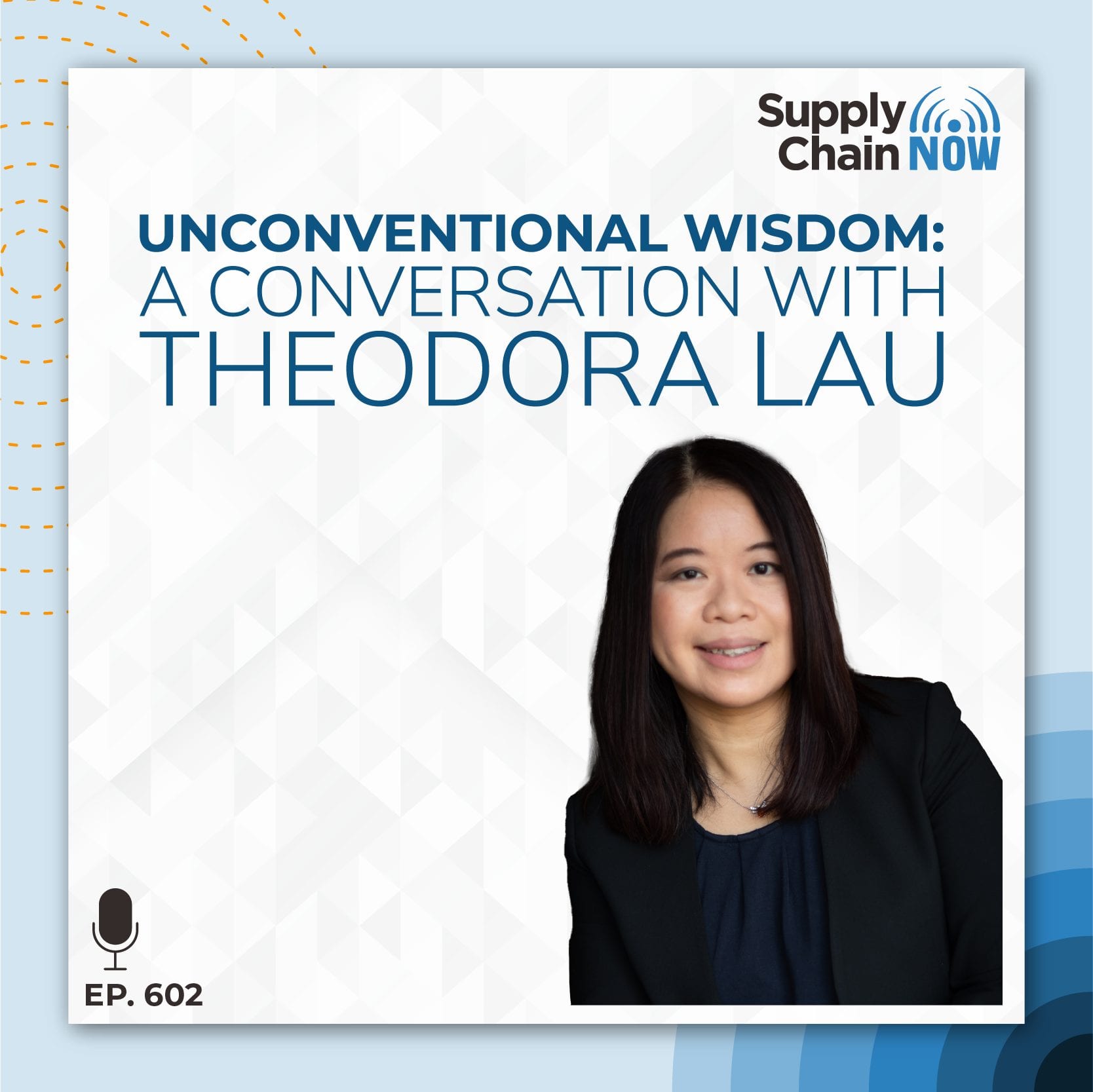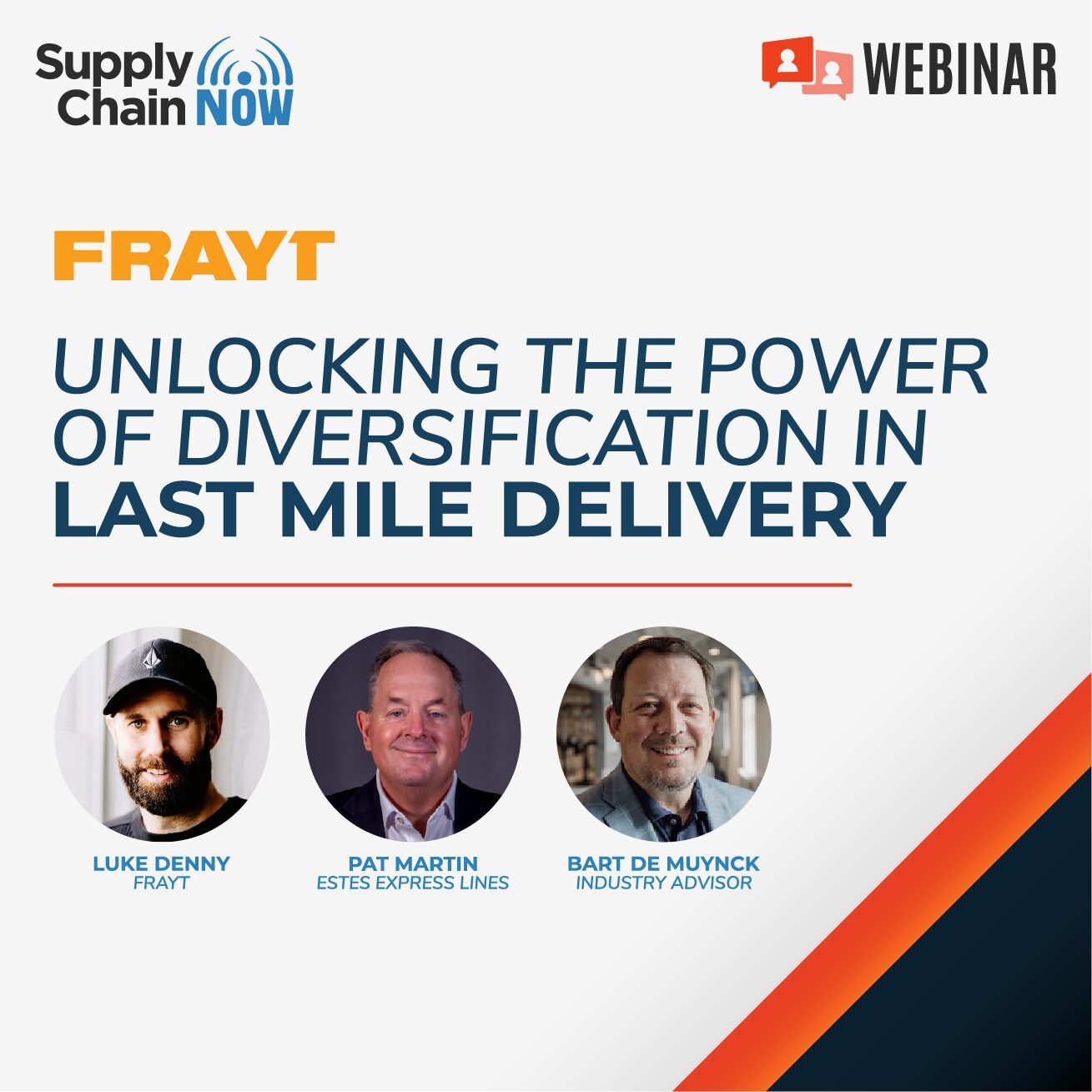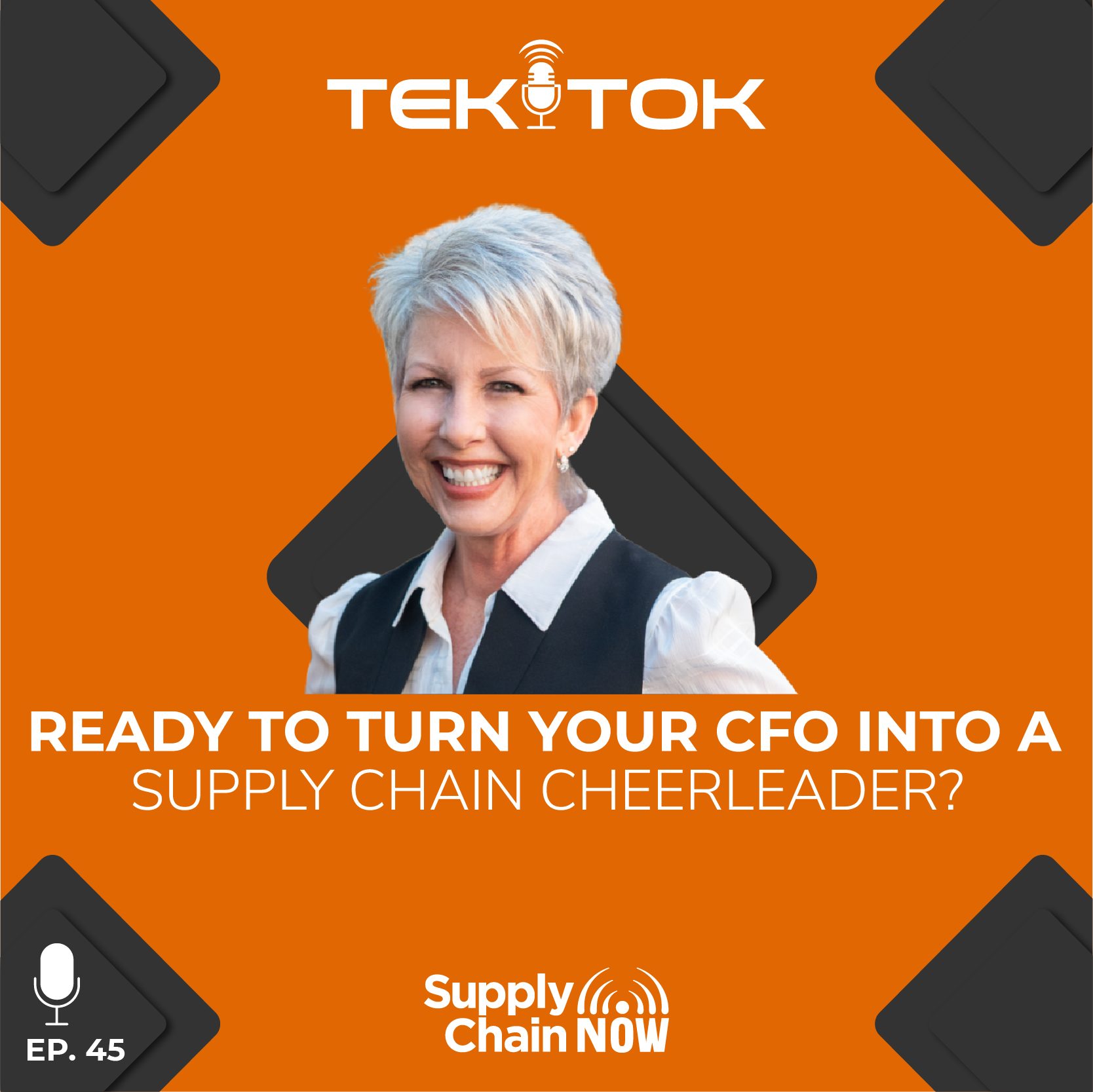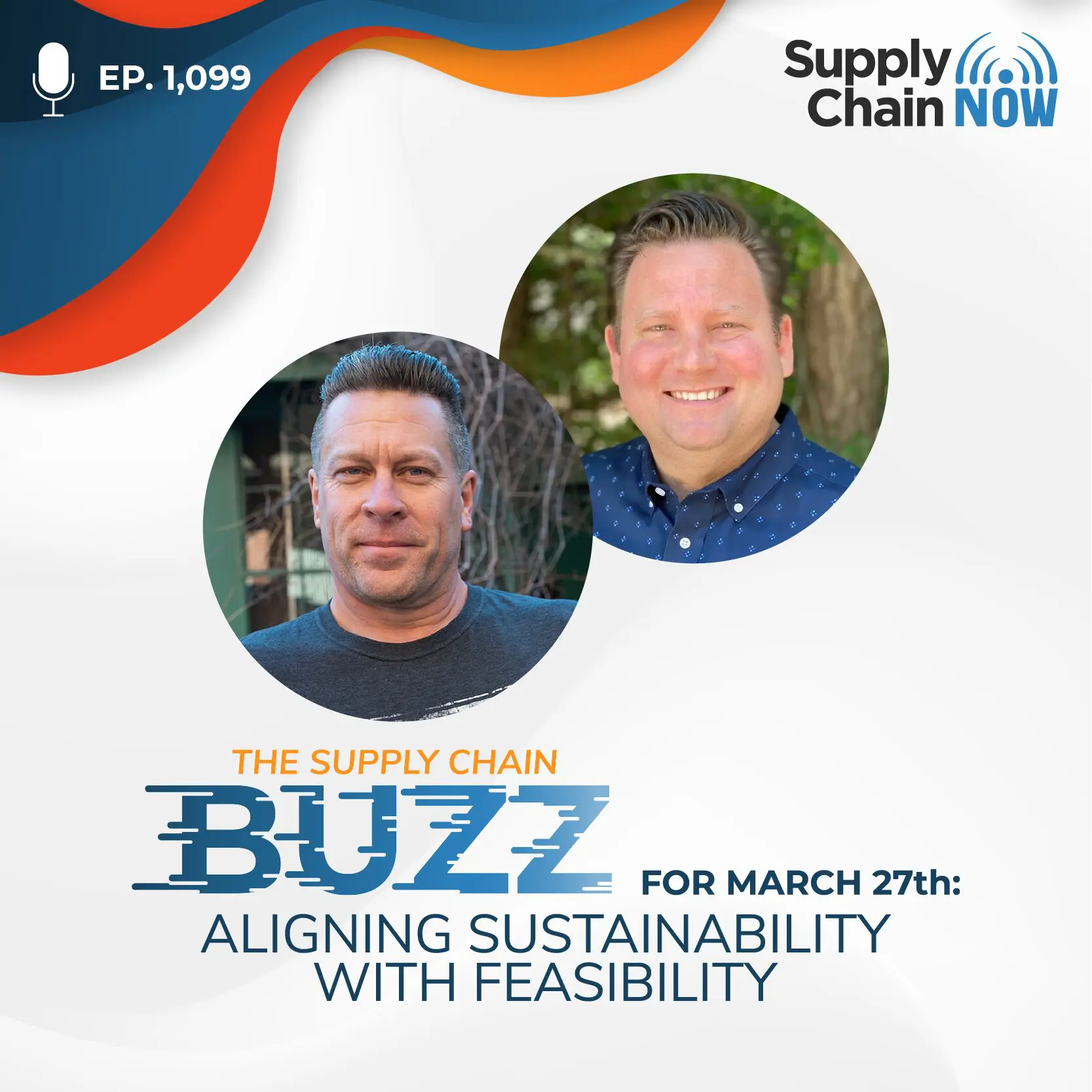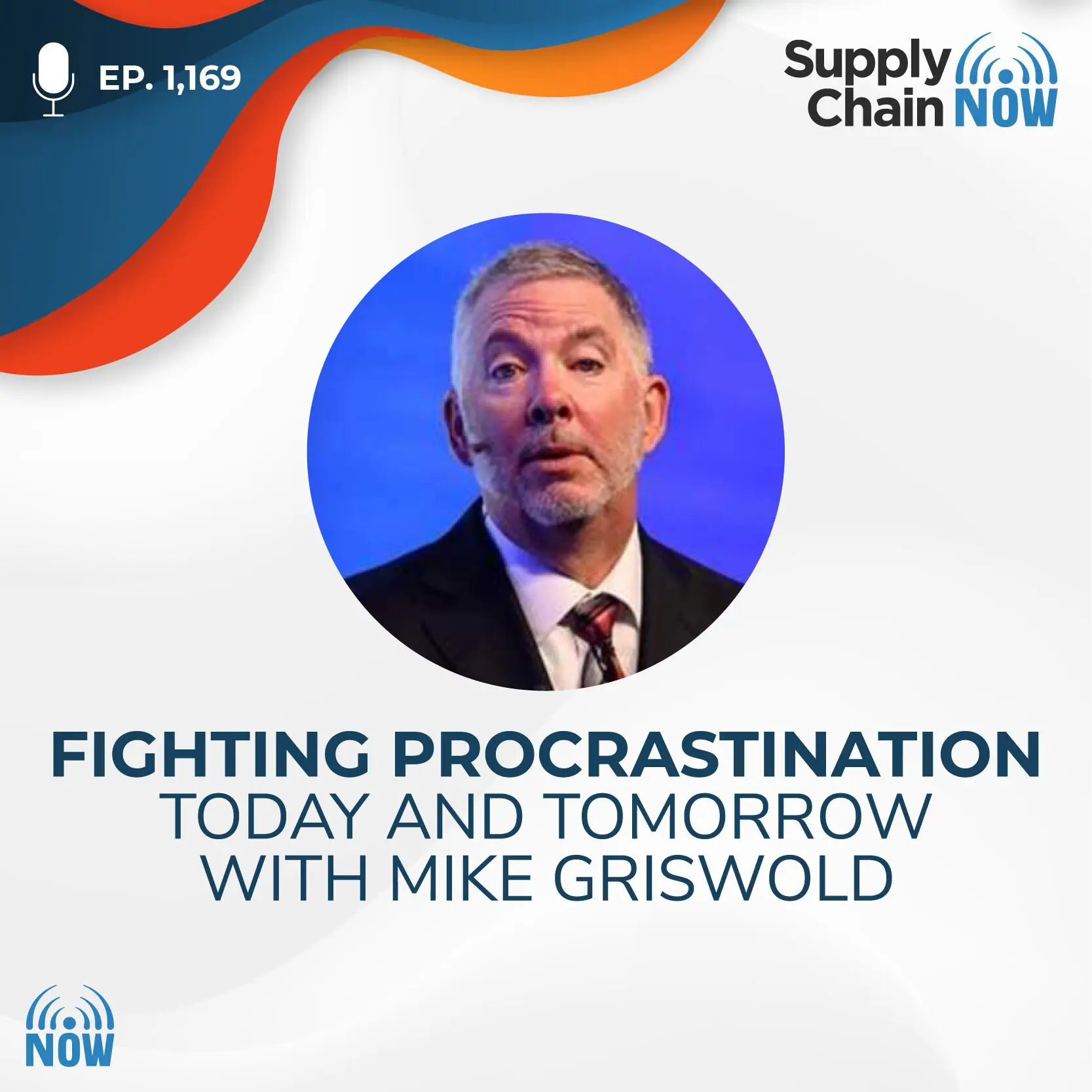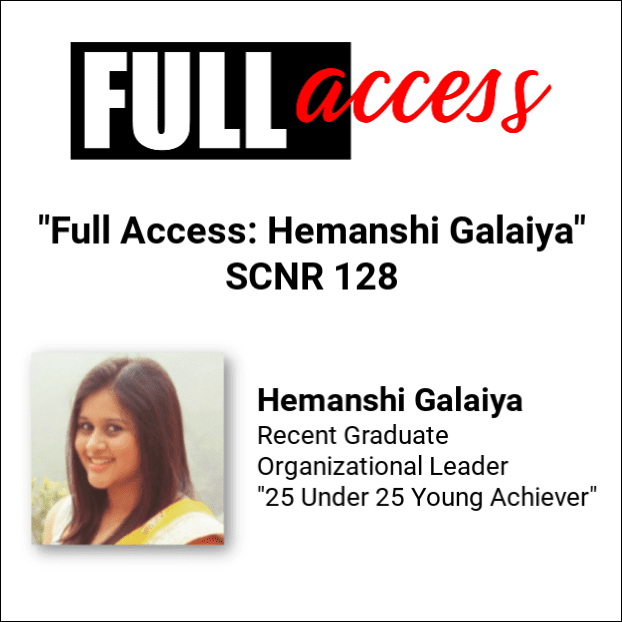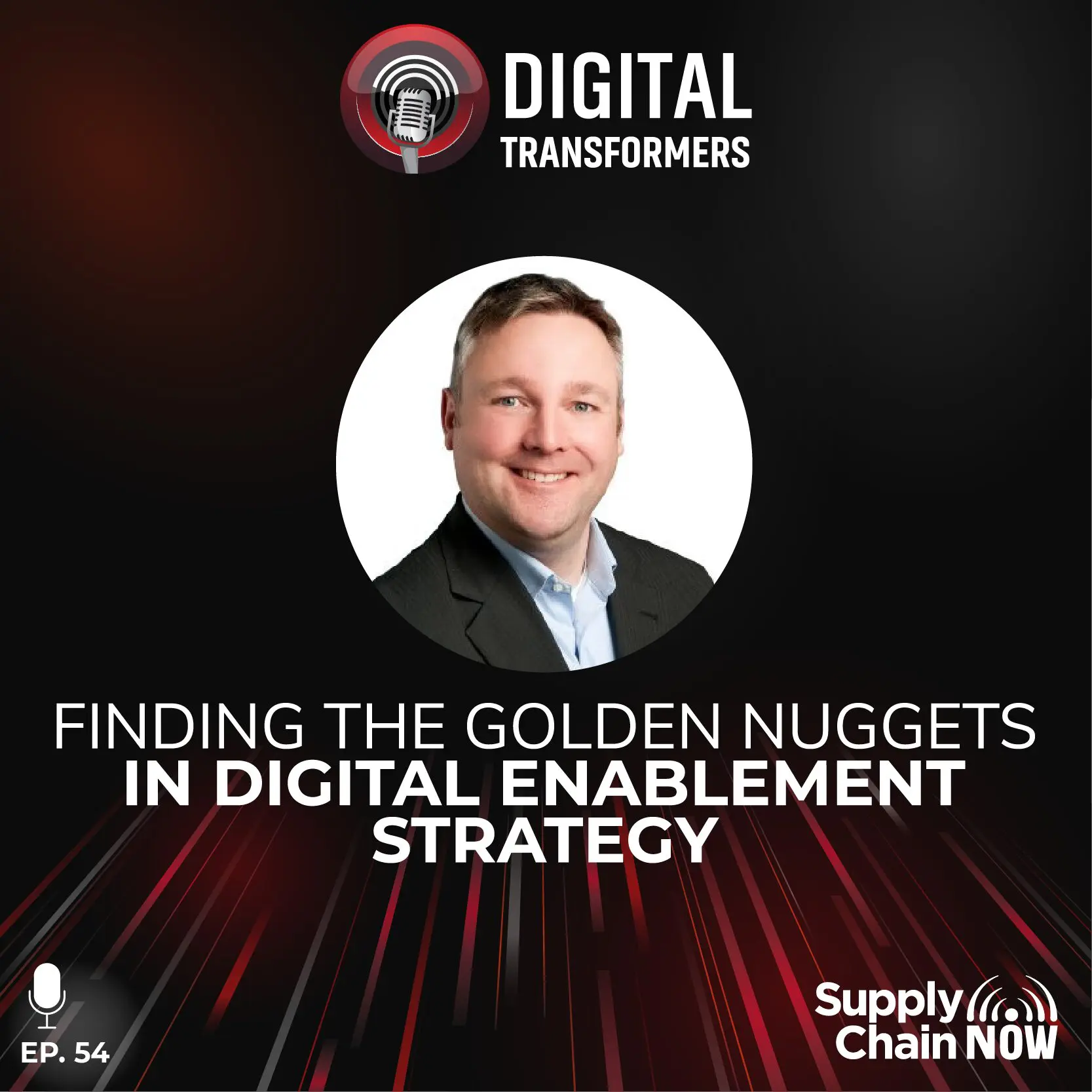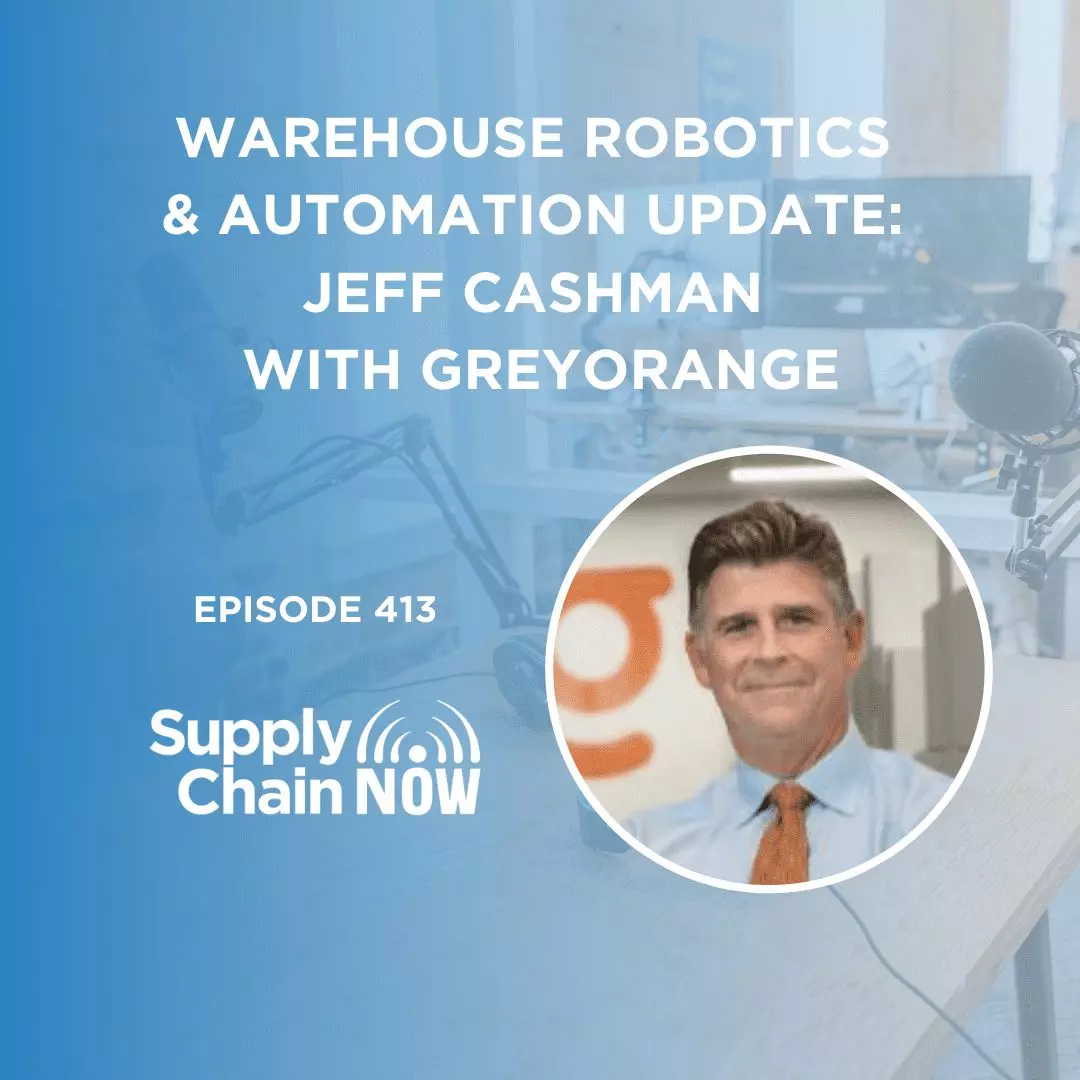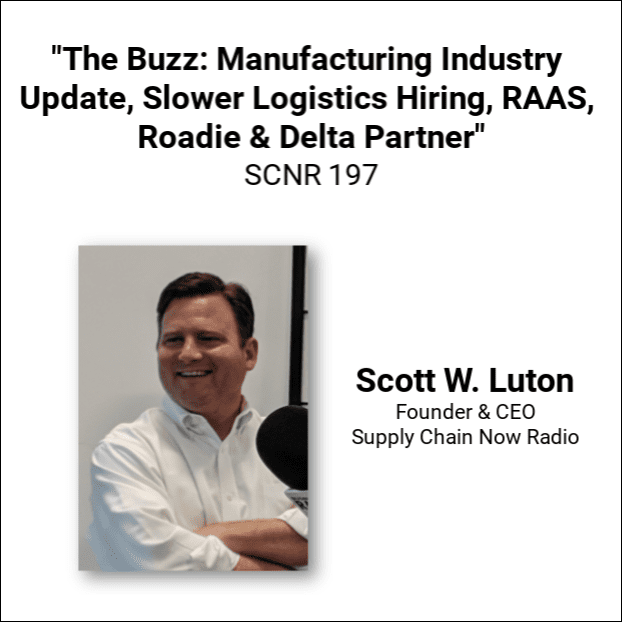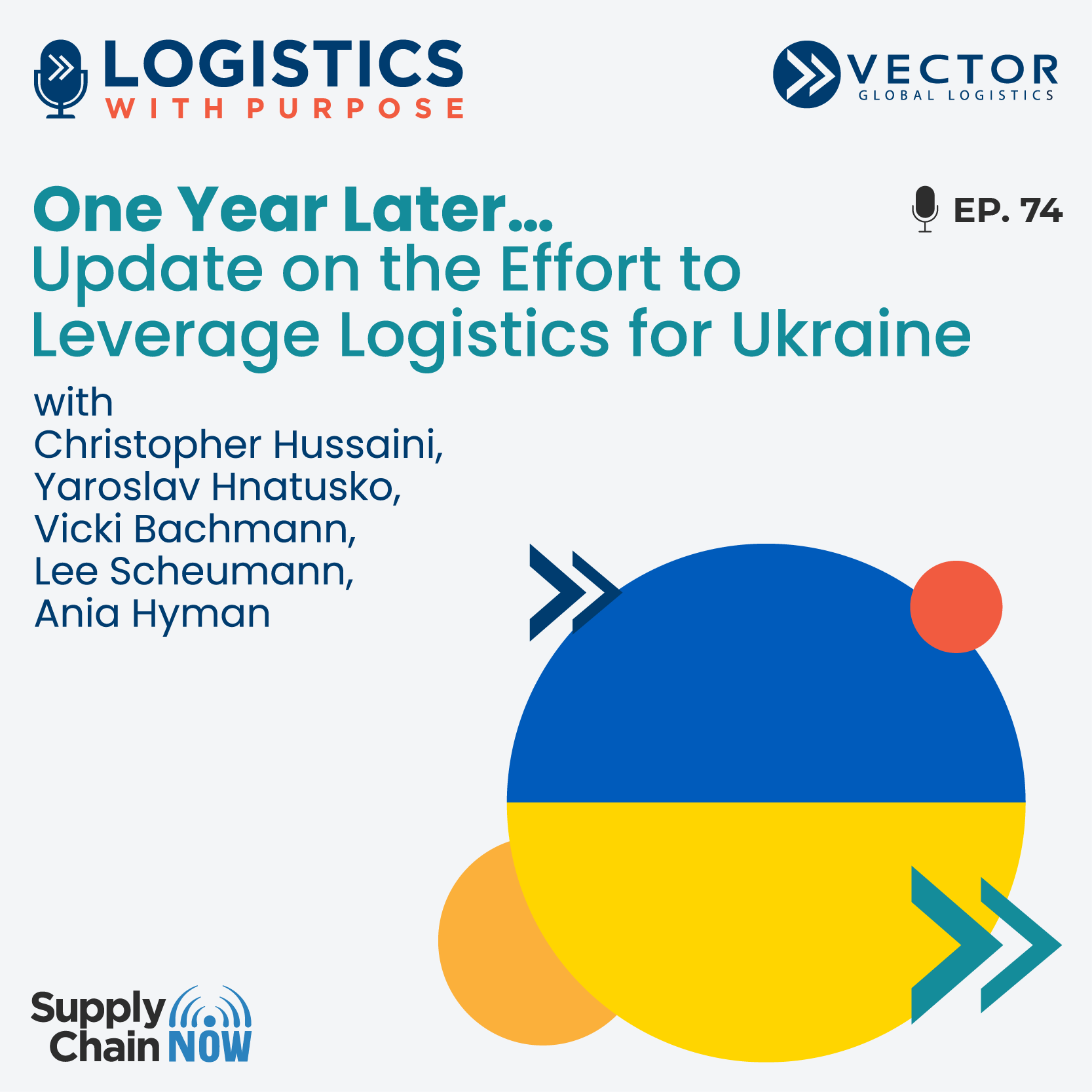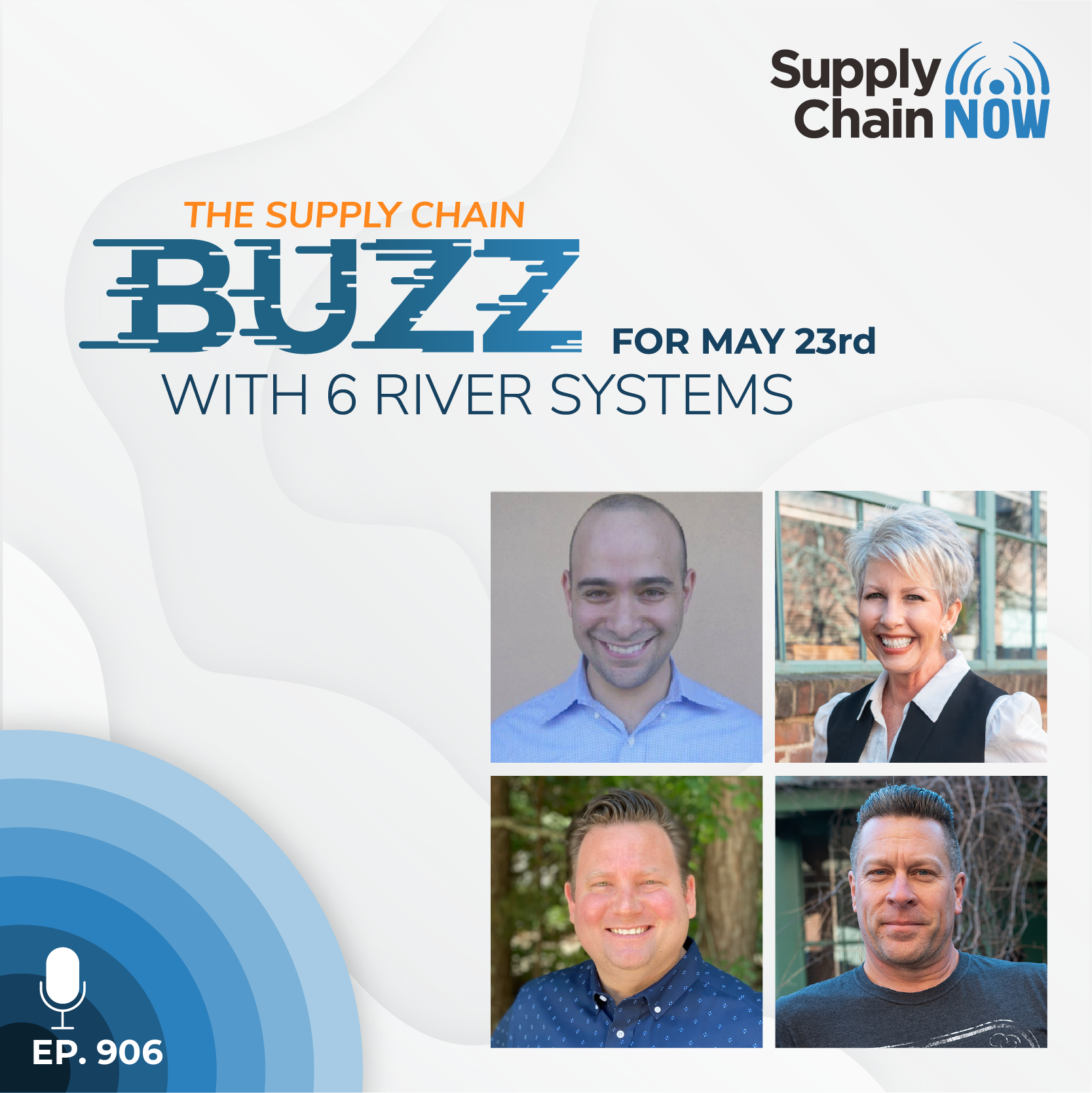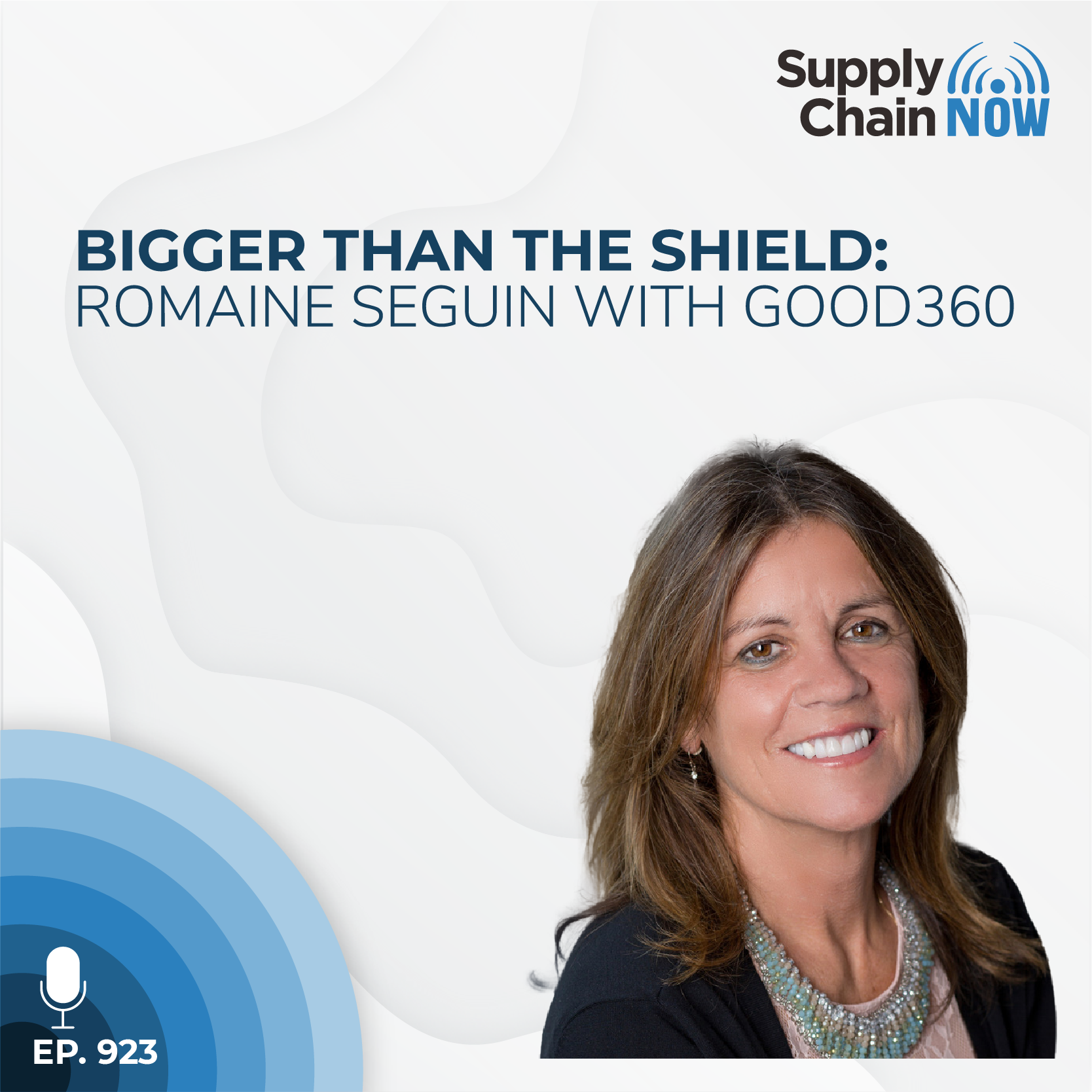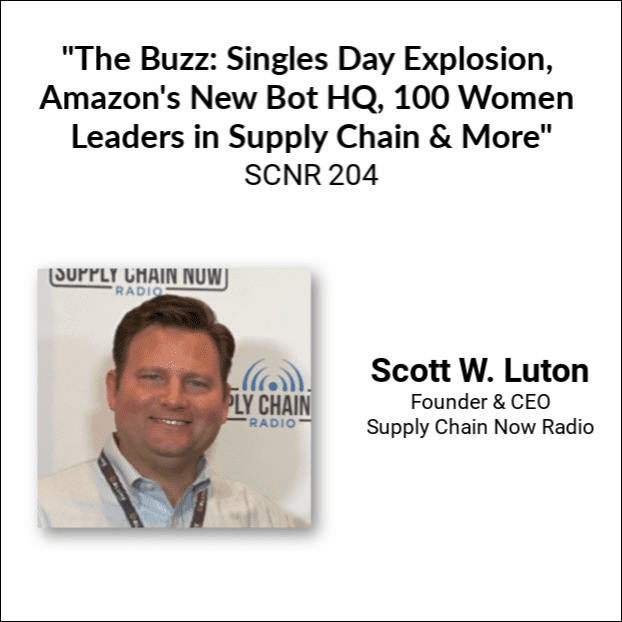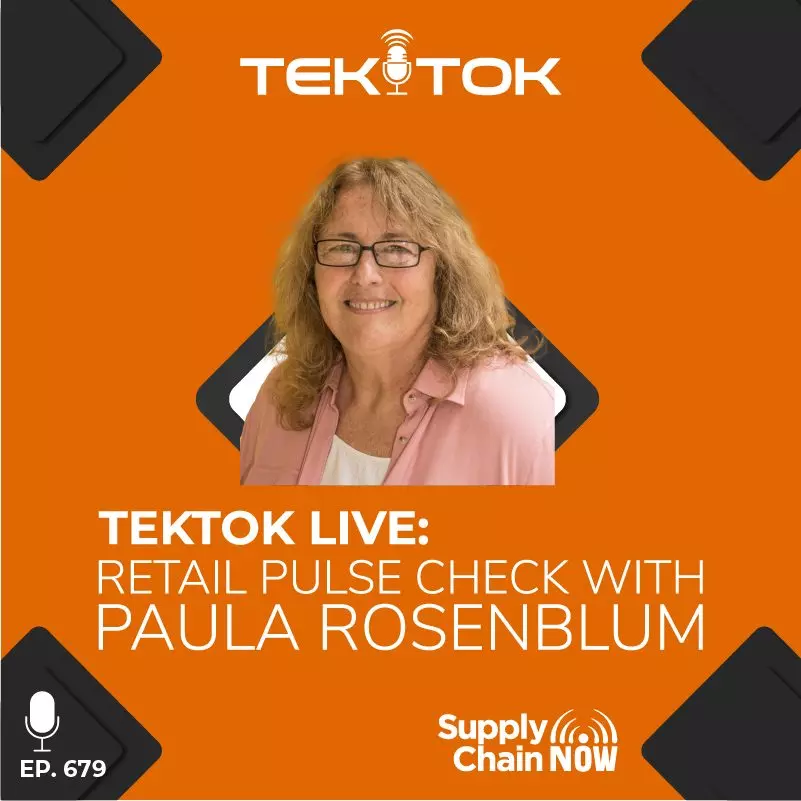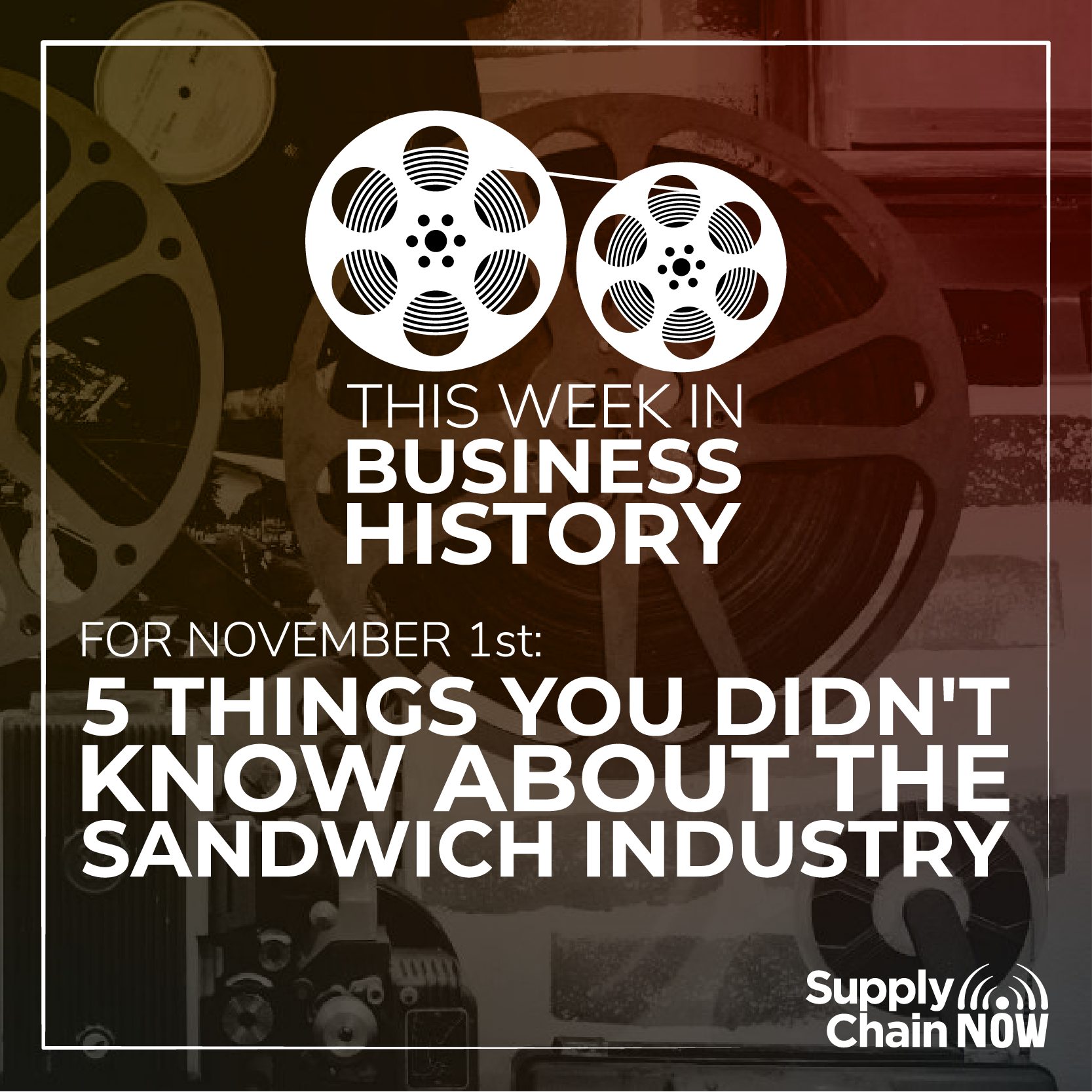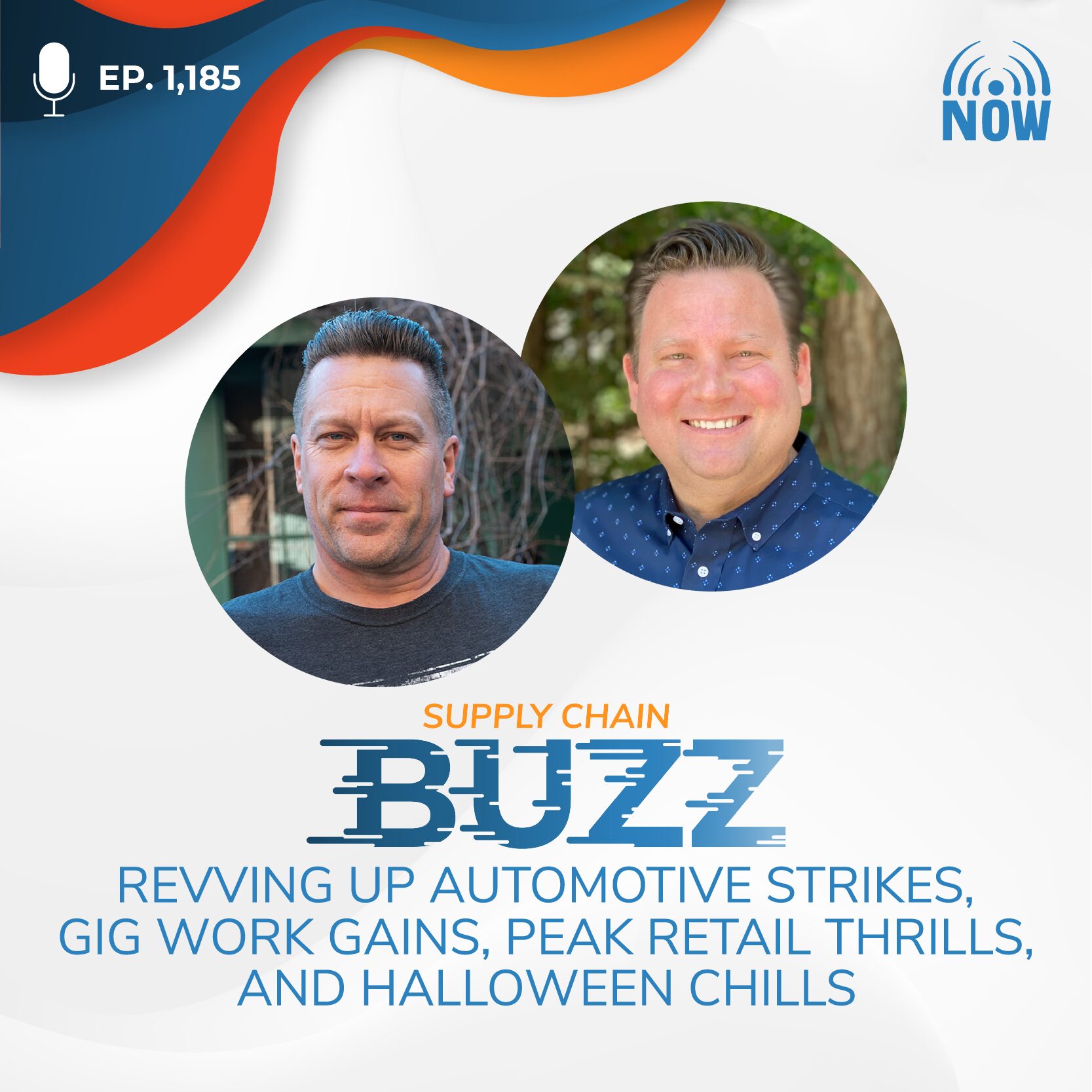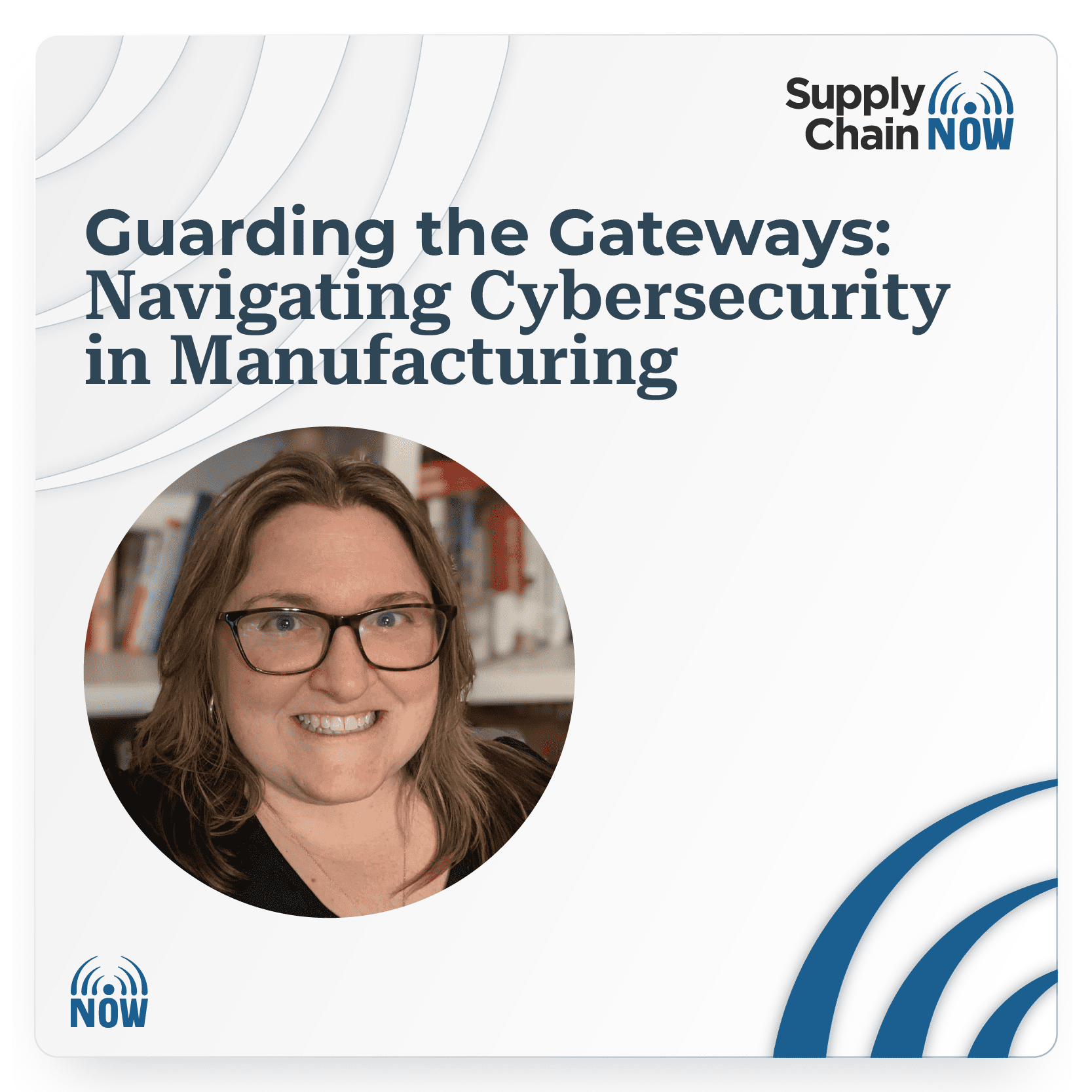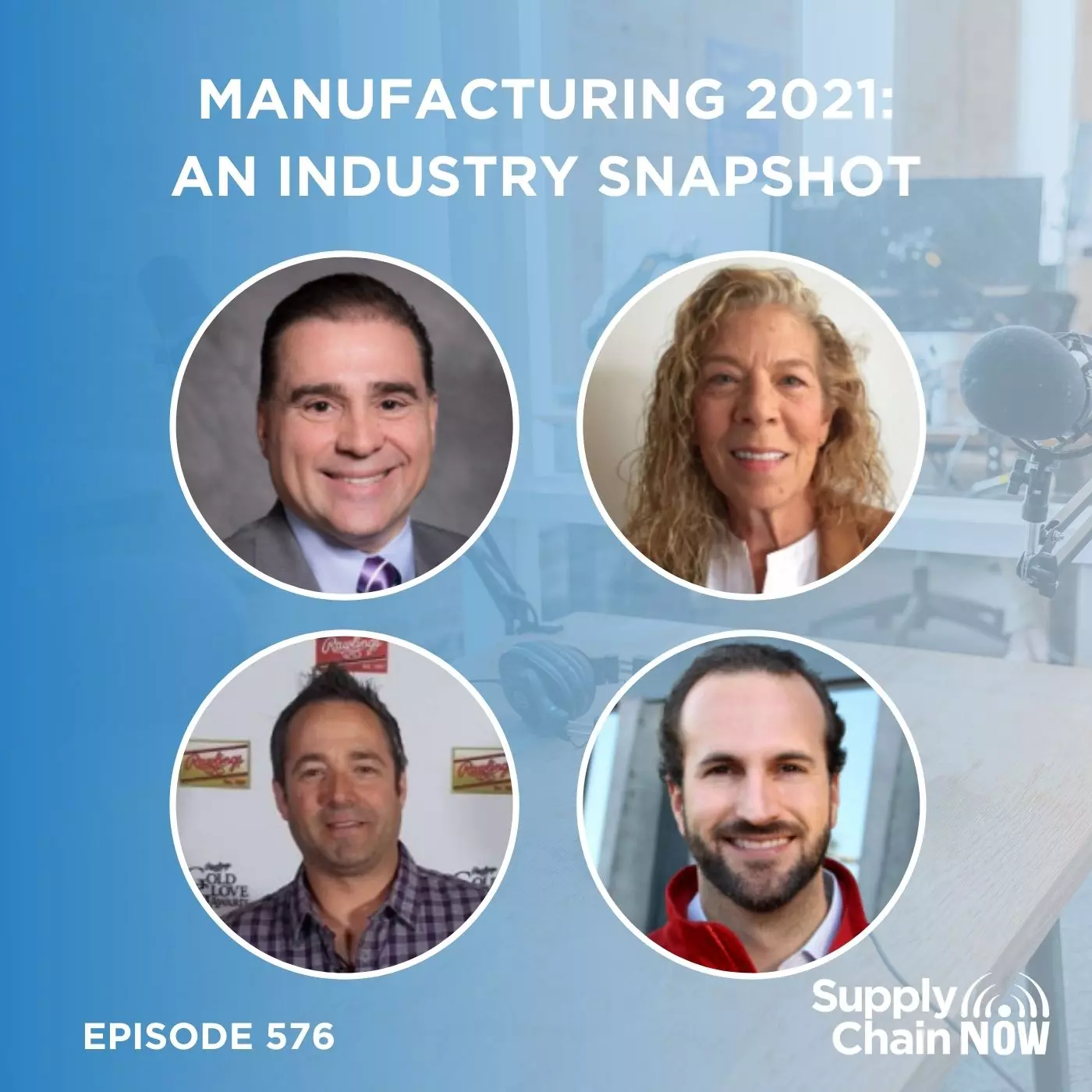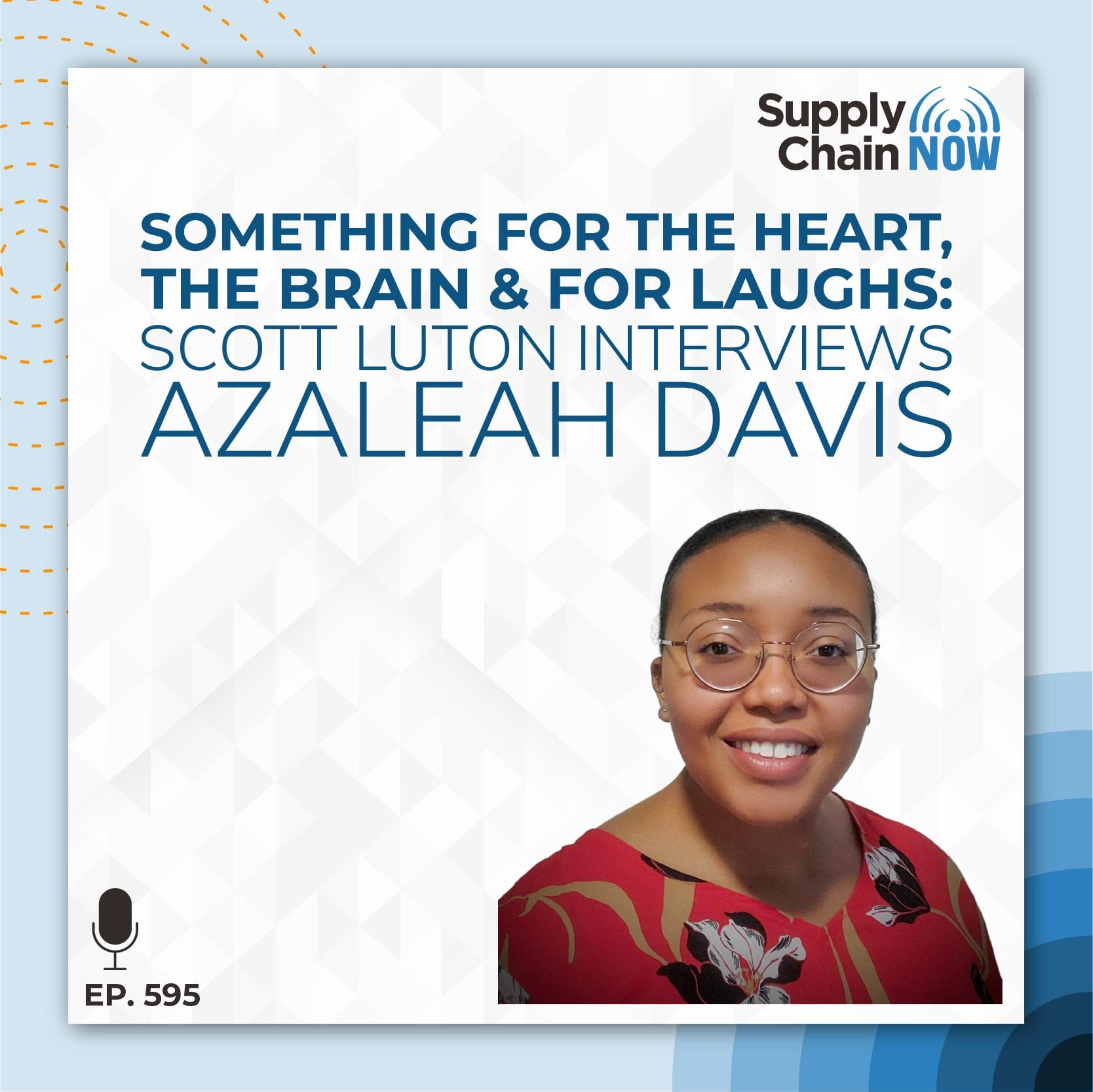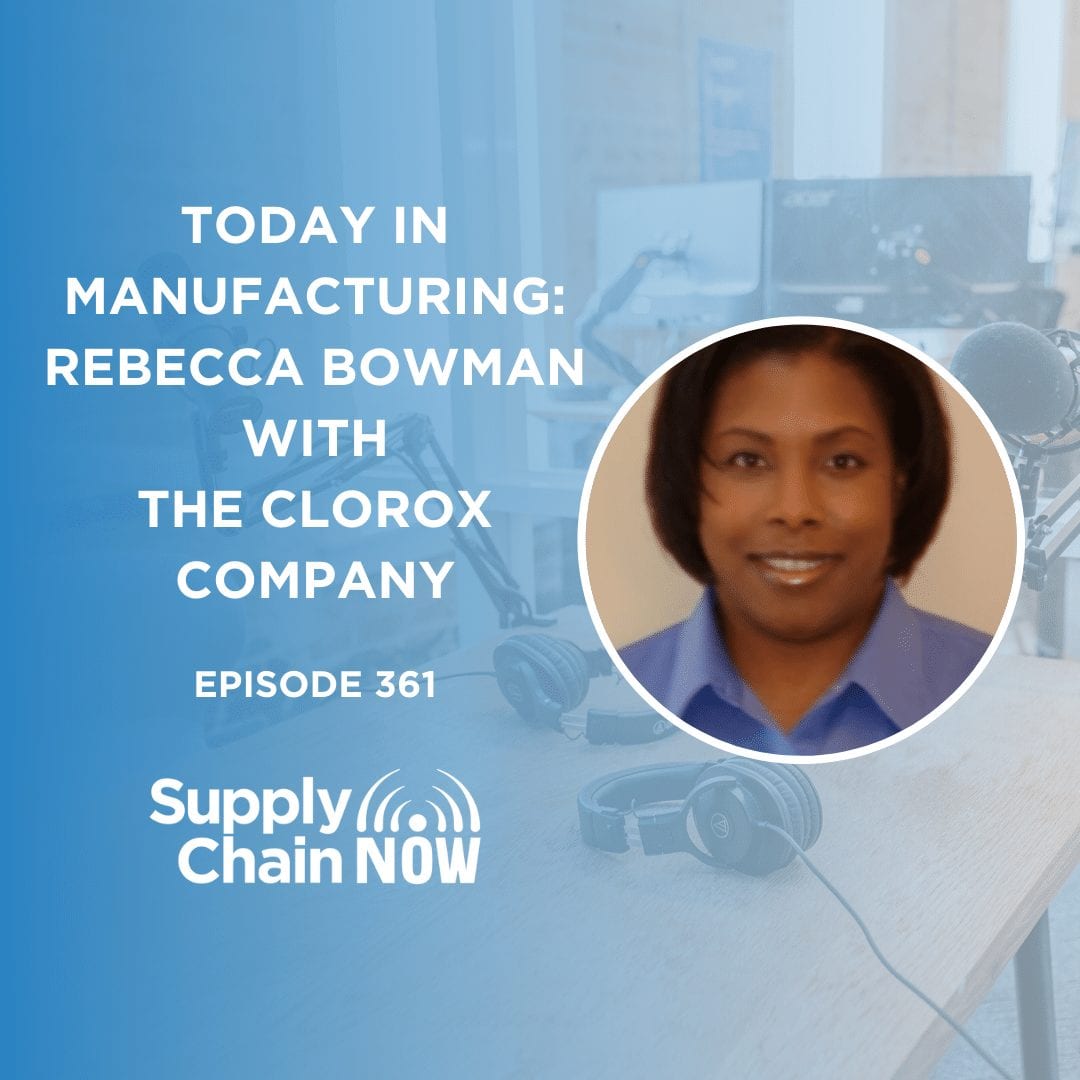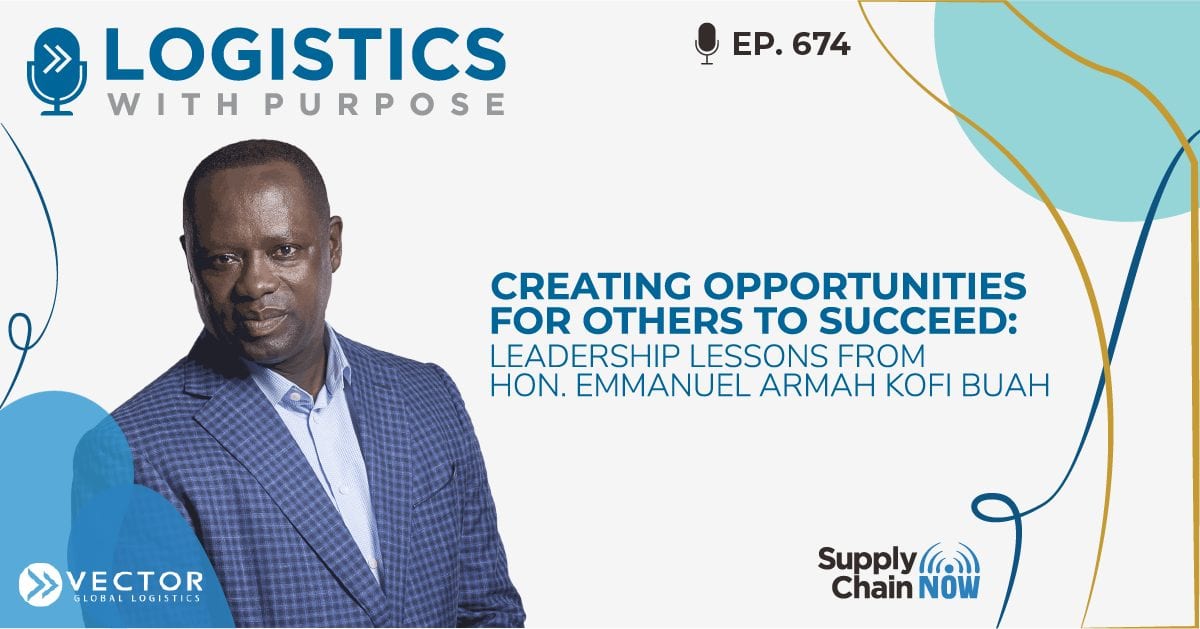
Episode Summary
In this episode of Logistics with Purpose, brought to you by Supply Chain Now and Vector Global Logistics, hosts Enrique Alvarez and Matilda Arhin welcome the Honorable Emmanuel Armah Kofi Buah to the podcast. Hon. Buah, a fourth-term member of Ghana’s Parliament and former Energy Minister and the Leader of the opposition on Trade, Industry, and Tourism in Ghana, shares the top three things that good leaders do, and so many more leadership lessons in this episode.
Episode Transcript
Enrique Alvarez (00:00:19):
Welcome to another episode of logistics with purpose. I’m Enrique Alvarez, your host. And today we have an amazing show. It’s really incredible. We have a very, very interesting person with us today. A very renowned leader that has made a big difference in his community and around the world. And we have the privilege of having here with us today. But before that, I also have Matilda my co-host for the day, and they’re really good friend until the hire you’re doing
Matilda Arhin (00:00:49):
Great. And we can’t, and I’m very excited about this. Thank you.
Enrique Alvarez (00:00:54):
It’s great. It’s been, it’s been a, really a good start of, uh, a good start of the week. And, and I think we’re super happy to get a chance to talk to, to our guests today. I’m hoping that everyone’s going to like it and enjoy it as much as we have just judging by the pre talks that we had before the show. This is going to be good. And for everyone out there that actually enjoys conversations like this and getting to know people like the one that we’re going to introduce, uh, to you, uh, don’t forget to subscribe at supply chain now, uh, not just listen to this podcast and any platform that you hear your podcasts from. So, and without further ado today, we have a very committed, very caring, smart, efficient, and just a very well-rounded leader of Matilda. This, uh, this person has been as the former minister of energy and petroleum for Ghana, and, uh, he’s the four time member of parliament for LM belly. And it’s again, an honor, and a pleasure to happen with us, uh, honorable booyah. Let me bring him in and welcome him. Honorable booyah. Welcome to the show. And thank you so much for being here today.
Honorable Buah (00:02:07):
It’s good to be here. Thank you so much.
Enrique Alvarez (00:02:10):
It’s such an honor to have you honorable boa, and we were just talking a little bit about you and some of your accomplishments. And I think that it’s going to be one of those shows that Matilda and I will probably just, uh, shut up, don’t say anything led you just talk about your story because it’s so exciting and amazing and, uh, uh, it’s going to be inspirational for a lot of people. I’m sure.
Honorable Buah (00:02:29):
Yes, it is. I’m very excited. I’m very happy to come back, um, to share my story with your audience. I think it’s amazing, but let me first tango view, especially the efforts you’re making with the books for Africa and the impact it is having. I can’t thank you enough. That’s amazing.
Enrique Alvarez (00:02:52):
Well, thank you. And we couldn’t do this without your support and your, uh, your team as well in Ghana and in L and Bella in particular, and we will continue doing this. So, uh, so if you guys, uh, everyone that’s listening to us now, we’re actually going to try to increase the amount of books we send every year. The first year that we did this with Matilda, we sent one container, right? Matilda full of books. Tell us, I mean, tell us very briefly, like the first container and then the second, and then we’ll just move right into the interview.
Matilda Arhin (00:03:22):
So me and hunter honorable,
Enrique Alvarez (00:03:25):
You were the one that orchestrated.
Matilda Arhin (00:03:28):
So the first one is really amazing. We did a simple holiday party with one, one container. We were able to support more than 6,000 children in the village. Um, and it was just amazing. The children did not even want, like get the, just one of the books and that tells you how hungry these kids are for, for naughty, for formation to grow, you know, and the second one, uh, with your help, you know, get the global logistics, amazing with it, two containers. That’s, uh, I have no idea how many communities, but probably all of data with the assistance of owner Google. We did great. So I am grateful and honored and looking forward to our third container. I agree.
Honorable Buah (00:04:15):
Let me add that. Now it’s gone national on the, on the force. Uh, we are not only focusing on the west, I guess last week we did a distribution, the Northern part of Ghana, amazing area. That that is why I’m so excited. We’ll
Enrique Alvarez (00:04:30):
Share with everyone, the, uh, pictures and videos. And yes, this year, the idea is to, uh, to increase the support for El and ballet and Ghana and honorable blew out your participation in all. This is critical. Your leadership is inspiring to also, and with that said, why don’t we start getting to know you a little bit. Tell us a little bit more about your background on you growing up. Uh, tell, tell us more about you.
Honorable Buah (00:04:56):
Thank you. Thank you so much. Um, does he know Emmanuel Kofi? I was one to a small town postmaster, Mr. Benjamin boy and mother married. My father died when I was only 70 years old and, um, you know, my mother and the one went to school. So it so happened that when my father died as a postmaster or the privileges of work, government bungalow, everything came to a halt. And so suddenly my mother and viable was siblings, foreigners, homeless. We had to move from the government, a state, a bungalow that’d be gone, the nightmare. Um, but, uh, I have to say that, um, throughout all the hard work of my mother, who, as a pharma and Dean, everything you can to make sure we educated all the data. I, one night when I was growing up, I saw my mother bend down as if it was brain and I check and I realize that she was crying and I asked, are you crying?
Honorable Buah (00:06:09):
He said, no, there was no crying. He was brain. But really she was, and you know, it was, it was almost two months at school had open and he had not been able to send the kids to school. And I think he was a little stressed over that. That is how much this mother of ours fought so hard to make sure where the kid, but it was obvious to me at that point, when, when, when I go to diarrhea realization where I was coming from, I said to myself, how can I let this woman down? And to me, that was very important because that night when I saw him bend down praying, and I told you I was praying and I realized she was crying. I knew it was all about me. Right. And whether or not we could change that cycle. And, you know, so we continued on, I ended up being the city of science and technology honorable
Enrique Alvarez (00:07:09):
Before we jump into the professional career, because it’s equally important and exciting. I mean, I wanted to have, I want to ask you something, uh, I mean, your mom sounds like an incredible person, uh, are working in committed and passionate and yeah, the cornerstorn it sounds like of, of your family, but tell me what, what were some of the things that you remember about her telling you, like when it comes to school and learning and working, and this year, I always tell you something that, that you had to do this, or you had to do that.
Honorable Buah (00:07:38):
You will not believe this until I actually grew up. I never knew that my mom could not read and write because Zia will come back from school and she will make sure you do your homework. Have you opened it as you’ll be sitting now with me? And I will be reading going by page as she was nodding as if she was participating in,
Enrique Alvarez (00:07:58):
I didn’t think critically, you imagined.
Honorable Buah (00:08:04):
I mean, I joke about it, but she be sitting down with me. I will be going to the S size one plus one. And he said, okay, is that then you pretending that he’s following everything. So get up, go back out and say, where are you? Are you done my local language? And all those times I thought this mother was really checking everything. It turns out she couldn’t even read and write. That’s how incredible it is, you know? And, um, I mean, I think that as one day I said, mom, you know what I want to do for a bed. You need to go for a daughter. I’m very proud to tell you, at least she can go to her Bible today and make some, some, you know, not all the way there, but three or I think she became very resilient. She also became very spiritually strong. And I mean, that is that, that is what led us through when she was very prayerful. I mean, you can stay in a house without getting up at 4:00 AM to pray or sleeping.
Enrique Alvarez (00:09:15):
She sounds, she sounds incredible. Just like so powerful. I mean, this, yeah. Thanks for, thanks for sharing that. And, and you, you were probably still very young at the time, right?
Honorable Buah (00:09:27):
I mean, I mean, we are talking 8, 9, 10 years. Um, I mean, I’m going through all these and it was amazing. I’d say at a teenage point she’s she packed me. My, my uncle was more of like a father figure at the time said, you can stay with her. She has to come and stay with me and reluctantly she had today. She couldn’t say no. And I had to go and stay with my uncle. And I’m telling you, those were terrible experiences. So
Matilda Arhin (00:10:03):
Unwell, you know, can you, you know, there’s a part where I think that VUS needs to understand that in Ghana, at that time when, uh, espousal husband passed on, uh, the family had also had the, um, the right to sometimes maybe take the people out of the house.
Honorable Buah (00:10:20):
Yeah. Well, what happens, what happens is that once your father is gone, uh, a decision will be made to see who’s resourceful enough to support. And so, you know, the decision was that, uh, my uncle who was, uh, at the time, uh, Dean very well, a businessman, uh, who was more of a disciplinarian, she can bring up a guy. I mean, I mean, we have these views that is, do you go for women to really nature and bring up, uh, boys. So if you want a boy to have the discipline to be around, and that’s really what happened, uh, you know, so up in that, when I joined my ankle three, you had two kids, a boy, and a girl as will happened that when I joined them for class, I was in class with his son, but their sound was not as academically. And every time we were going for exams and then he will not do it. And then there’s something called common interest and exams. I passed the entrance exams that takes you to more high school, right? So you can basically move to high school ahead. And my uncle would all, let me go because the son
Enrique Alvarez (00:11:44):
Did not pass. Oh, wow. Well, it must have been a lot of pressure, right? For your costs.
Honorable Buah (00:11:49):
It was terrible, but there’s something morale close. That happened my story of how I went to secondary school. I was in this really playing a ball and I hit was that Ellen, Bella or no, not Ellen bill yet. There’s a town called [inaudible] where there’s a gas plant today. And I hit a ball and this ball hit a mountain. We just get out of a car. Guess what? This might happen to be the senior housemaster of a secondary school, a very second. And he sees the ball and asked me my name. And I mentioned my name, Manuel, when he says, Emmanuel, boy, the name sounds familiar. Then he asked, did you do the come and try as I did? But my uncle said, as you said is because you have scholarship. And as that’s how you know, I went to, I went to secondary school. I did a second term. When they’ve been there for almost two months through this, this acid,
Enrique Alvarez (00:12:48):
You would not have found out about this scholarship. [inaudible]
Honorable Buah (00:12:53):
No I’m telling you that. So many things that I can tell it was America. I mean, I went to secondary school and this man remembered the name because he had a list of students who never attended the first day and was returning our scholarship, writing back to government that these people did not make it to school. So he was attending a scholarship. And because my name is [inaudible], I was on top of the list so he could remember it. He said, that’s how I got a scholarship to do the secondary school. It’s
Enrique Alvarez (00:13:23):
Incredible how things happen right in life. And if you wouldn’t have missed that goal, probably planes,
Honorable Buah (00:13:31):
I will tell you, I’ll tell you so many of that. I mean, that story there was over. I made it to the university with distinction, and then I go to the library one day and I’m reading through, and that’s why these books are important. I walk in there, I see comm international camp counselors. I write it today. I read it. I’m like, wow. International students, students who are in investee and then that, and then I applied come America.
Enrique Alvarez (00:14:05):
Wow. So you applied also out of the blue. What did you study? A honorable boy? What did you study in the unit? I was
Honorable Buah (00:14:13):
A, I studied law at the time. Yeah. But I had a BA in law. Now this come, just wrote to me and I’m trying to follow a story and it’s called pitching camping, Glen Spain, New York. I’m going to go there to be a counselor for inner city kids from New York city. Wow. And can you imagine I got the visa on, came to New York or get paid for everything. Unbelievable. And I meet these wild kids. They changed my life for good. These were kids that faced a lot of tough challenges, but, you know, by the time I finished the camp, I mean, I was able to impact these kids so much that I was, that com decided to invite me the following year. And this time I was more like a senior counselor and they actually made me the representative of the programming gun is called international camp exchange program. And I was in charge of recruiting international students to come to the summer camp. Wow. Yeah. And I, uh, I was amazing. I became a coordinator. I was a student coordinator of the programs and it was amazing. And it was through this program that I actually came to the us after the, after university and went to, uh, do my graduate program at the university of Maryland as well.
Enrique Alvarez (00:15:52):
And it seems like the, the, the children that you, that, that you were, uh, leading back then as a camp counselor, were the ones that kind of show you how important it is to give back. I mean, at what point in your career, did you understand how critical just helping others and honestly, how, how good you were at, uh, making those connections with children and people in general? I mean, at what point did you start to see this political career? That
Honorable Buah (00:16:20):
Critically, first of all, I learned that through all those challenges I was going through, you know, in all those challenges, my mother, every evening, we’ll make sure there’s extra food for other people who did not have food, even in all the things she was going through. And she kept reminding me that you don’t get your blessings for all the things you need. You get your blessings for giving, for helping others, for changing where you are for bringing value to wherever you find yourself.
Matilda Arhin (00:16:55):
So is there a reason why it’s still up to this day? Most one, I, when I come to a and people just come to the house to just get food, it’s just this amazing work. Yeah. That house was turned into.
Honorable Buah (00:17:07):
Yeah. She’s, she’s 88 years old. Now she’s still cooking.
Enrique Alvarez (00:17:12):
She sounds like a, yeah, like a force of nature, like choosing credible.
Honorable Buah (00:17:17):
I mean, you know, I mean, one of my longevity as a, as a member of parliament said that she’s probably the REIA member of parliament representing the people on my behalf. It’s amazing. But then I come to the us and I realize I’ve said it, and I’ll say it again, amazing place I started. I would pitch incumbent and land, even from this kids, how important it is to give, to support one another. And I also came and learned so many things in this society that it is not always government that transforms it’s ordinary citizen bonding together and making a difference and impacted me. And I’ve carried that everywhere I’ve gone. And I think that the story about how I went back to Diana comes here, you know, I finished graduate school and I get a lifetime opportunity. They are looking for only techy people to be a senior level postmasters in the United States.
Honorable Buah (00:18:20):
And here I have different plans, but I have a senior person was in my class who really strong about me to join the post office. He said, Emmanuel applied when I applied to were 10,000 applicants and interview took almost six, seven months. We went through a lengthy process. And this was when I was close to being selected. I said, no, no, no mean the final interview I will be dropped because they probably have to look at me, see my big, but guess what I was selected. And it was an amazing experience. I went to a two year intense advanced management training program across the 50 states going to, uh, you know, processing plants, going through administrative places and land the art of managing organization for two years. And I was certified as a senior level 21 post office. Think about it. The postmaster general is level 25. So when, when you use that at 21, you are,
Enrique Alvarez (00:19:32):
No, it sounds, it sounds like an incredible opportunity and it sounds that you want the right person to peak for sure.
Honorable Buah (00:19:39):
Oh, it was a big deal add.
Enrique Alvarez (00:19:40):
You could just summarize. So you, you learn incredibly a lot of things there in that time. If you could kind of summarize it and maybe the top three things that you think make a good leader, um, what, what do you think those, those three characteristics are for people that are listening to us now?
Honorable Buah (00:19:55):
Well, when, when they tell you that you are leading, don’t learn, let it get into your head that you are somehow on top of anybody you actually supposed to be the seventh, you actually been selected to work hard and serve even the people that are supposed to you as opposed to lead and, um, and make sure that that team is motivated and that there’s always a team spirit. Uh, and you are the one that should make it happen. You are the one that will set the tone, uh, all the time, all the time, but making sure, also that you think about time and make sure that you get things done when you have to Netemeyer stop that critically. And those are some of the things that really, uh, guided me in the post office. But interestingly, I, my first station was Rhode Island. And the first time I walked in that post office, about 200 employees, I go to the phone that I said that, uh, my name is [inaudible] I’m here. And I want to see the supervisor and the lady I said, do you want a job? And I said, oh, no, I don’t want a job. He said, what do you want? I say, well, whoever is in charge. The person that, uh, the postmaster that’s a that’s great. I mean, it was amazing. I mean,
Matilda Arhin (00:21:30):
Well, let me, let me come in quickly. That’s it? Those are, I call it as, as a silver line or something beautiful year, honorable spot. I used to be a postmaster in Ghana. Also. That’s just the coincidence is your life so many coincidences, you know,
Honorable Buah (00:21:46):
There’s so much. I said, you know, I said, when I was doing the interview, that my father was a postmaster, he loved his job. He used to work in the nights and he died when I was seven years. And I D I guess I’m now close to being a postmaster to take off. So it was really a very interesting
Enrique Alvarez (00:22:08):
Circle, almost right? Making sure that your kids continue the legacy that your father started.
Honorable Buah (00:22:16):
But it was a fantastic experience while I was doing all of that. I was in touch with the village. Every I’m sending used books, I’m sending computers, I’m supporting schools. And one day I took a vacation, went on holidays. And the whole, you had a demonstration that I’m not going back. They’re not going to let me come back to the us. I’m going to be the next member of parliament. I said, why the member of parliament at the time was so powerful. He was the deputy speaker of Ghana’s parliament. And every time you’ve mentioned that, I said, it’s not possible. And this is really one of the lessons that I want us to know. I came back and I saw that the pressure was too much. I was doing well. I had bought my nice townhouse. My started my family here is the community calling me to come and say, I thought about it.
Honorable Buah (00:23:09):
And I said, and may have finished what I wanted to do in the United States. I’ve worked through the system. And now on top, maybe it’s time for me to go home and serve my community. And I couldn’t tell anybody because they thought I was stupid for losing my head. Every time I’ve told somebody that I’m leaving this wonderful job to go to the village and represent them. So I stopped talking about it. I just decided that if I feel so strongly about something, I just have to do it. So I just decided to do it. I asked my wife and I say, you know, you, uh, you should tell me, you support me. I should do this. He says, go for it. And that was enough for me.
Enrique Alvarez (00:23:50):
You’ve always taken the chance, right? It sounds like you’re, you’re a person that’s always out there trying to challenge yourself. You’re not settling. You always wanted more from school to, uh, studying in the U S from going.
Honorable Buah (00:24:04):
Yes. Amazing. And I told her that, listen, if I go to Ghana, I will not feel, but in any event, if I feel who brought me to the us in the first place who got me up to be postmaster, I did that. Right. So I can always do that. So, so I go to Ghana, but it was hilarious. I mean, everybody was, I mean, are you sure you can defeat this speaker parliament? Can you say, we’ll do that. I went to every village. I went to everybody and I said, I am not competing to be a politician. I’m competing to serve you. I want to make sure we transform these communities. Look at it. There’s no street. There’s no light. We want to do something with it. You and I, over time, I had all these people. So
Matilda Arhin (00:24:52):
Not to digress. There is no street. There is no life. There is no water. It’s very important. Those three things. Yeah.
Honorable Buah (00:25:01):
Well, we can talk about it today, but I can, I’m proud to tell you. My district district is easily the best beautiful district in Ghana today. Well, I’m
Enrique Alvarez (00:25:13):
Frightened. And the people recognize that you were, uh, you were a leader, right? You’re not a politician your whole life. You were not a politician. When you came back to Ghana and you were, you’re serving people because you care about them. You left, you left the U S right. I mean, you left this amazing lifestyle that you could have had for serving them. So I’m sure I’m sure people, people not only understood that, but I’m sure that people failed, that you were honest and, and, and, uh, we’re trying to help out
Honorable Buah (00:25:42):
Limit. Let me tell you how strong they feel about that. You know, on my four term or as member of parliament, I told them I’m not running again. I’ve had enough. Somebody who ran and before I knew it, they had contributed the young people or the ability they’ve contributed board, my form printed my purse.
Enrique Alvarez (00:26:05):
It’s a credible story. And so until, so when, when you, how, how did you become the, uh, minister of energy and petroleum for Ghana? I mean, that seems such a big jump again.
Honorable Buah (00:26:16):
That is another American I tell you. So I’m complaining one day, they said a presidential candidate of my party. Like the democratic party is coming to LA. Uh, you
Enrique Alvarez (00:26:27):
Were, uh, you were already the member of parliament for the first term or the second thing. No, this was before,
Honorable Buah (00:26:33):
Before I’m complaining to go to parliament and Ghana. The constitution requires that 40% of ministers must come from. So when you become a minister, uh, a member of parliament, you can easily become a minister. So the presidential candidate is touring our general area in the Western part of Ghana, but he gets to Ellen, Bella district. And his advices told him that the guy is not going to win. He’s a new guy just came from the state. He’s trying to defeat the speaker. There is no way it is because money
Enrique Alvarez (00:27:08):
You’re the underdog.
Honorable Buah (00:27:10):
The Commonwealth must know if you stop, because he’s not, the guy can wait. So they get there and my crowd singing there. And then they said, we should give way because the candidate will not stop. And something just got over me. And I said, no way. And I shouted in the local language, you know, when we want to agitate and get these guys to say, boy, he’s you shout your way. Then everybody who brought the road, the car stop,
Enrique Alvarez (00:27:42):
Otherwise they would have just kept going. Right? And guess what?
Honorable Buah (00:27:47):
The candidate who is president mills, me sort of the former president, who was it in his guy, you see a guy in a pink t-shirt who is really coordinating that that’s me. And he called an issue called I know boy, who is really causing the trouble. So he invites me to his car. He says, I saw you. You were blocking the road,
Enrique Alvarez (00:28:07):
The president of Ghana talking to you.
Matilda Arhin (00:28:10):
Yes. I said,
Honorable Buah (00:28:12):
Yes, sir. I was sad. There is a simple, this young people we’ve been chanting and waiting for you since this morning, night, they have not even eating. And it’s almost 5:00 PM. And you come in and say, you will stop. That’s why at least say hello to them. You know, he was so quiet. He got out of his car. He said, guys, let me. And then he went out. He said to wait for me.
Enrique Alvarez (00:28:39):
Wow. So he endorsed you after that first interaction
Honorable Buah (00:28:42):
You got out, I mean, a lot differently. And those mean, I guess what, when the results came out, my result was the national news was like that. I defeated. That was tough, pressing Ghana. And I made news all over the place. Oh my God, the speaker, I mean, it was so amazing. Guess what? This candidate called me, the president who came there, call me and said, oh my God, you know, they told me I shouldn’t stop because you will not win. That’s our one,
Enrique Alvarez (00:29:18):
They were wrong because you were not going to let them pass through and umbrella without and stopping.
Honorable Buah (00:29:24):
And he said, when I saw you, when I saw you and I saw your eyes and your determination, I told, I told them, this boy is so determined and I’m not surprised you want, when you come to a crack, come and see me. And that was my license to become deputy minister of energy in Ghana. Wow. Tell
Enrique Alvarez (00:29:41):
Us what was, how was it like, I mean, for everyone listening to this, or at least most of our listeners, including me in Matilda, it’s incredible. I’ve never really ever interviewed a minister before, as someone that worked closely with the precedent. Um,
Honorable Buah (00:29:55):
How was it? I mean, amazing. I mean, this is a position he intentionally gave back. I didn’t even get added in know, but it turns out that this is the most coveted position becoming Ghana’s energy and petroleum minister. Every powerful person wanted to become that person, you know, and that is probably way, but he knew that he wanted somebody who is different. And I have to tell you, I face a lot of challenges, but this was a very top place where I became a deputy minister when Ghana was first discovered oil and was about to produce oil. And I had to lead Ghana for that oil production. I had to leave Ghana to build a gas processing plant. And at some point there was also power crisis and we had to address power. I was coming to Houston hours, plying the word, find a long-term solution. And today I can tell you, I, I am the longest serving and they gave minister in the history of Ghana that brought all the solutions. You can think of power solutions, gas solutions, basically stabilize our power systems in Ghana.
Matilda Arhin (00:31:23):
Let me ask you, did you have experience before? I didn’t have a clue.
Honorable Buah (00:31:34):
Actually, the day I was appointed, I had to go and read about energy. I wasn’t another energy expert, but it was easy for me because I was just going there to be a leader, to be a manager. And to me, that was what is important. I remember that, uh, my first meeting with all these engineers, I was a young guy who kept, you know, answering a lot of questions. So in the evening when I closed, I said, young man, you’re not going home. You’re going to sit in my car. Me and you are going to have some power, power lessons. And he became my tutor and everywhere I went traveling, I was with him. And within a year, if you’re an engineer, you want to come and talk to me about power, be careful because I know too much, probably more than you. And as how quick I learned, um, it was a lot, it was a lot, but there was something very fundamental that I knew I had to do. How
Enrique Alvarez (00:32:36):
Many years were there? Uh, honorable
Honorable Buah (00:32:38):
Served four years as the deputy minister. And then another four years, a new president promoted me and made me the minister and made me the minister. And so I stepped in that capacity as a minister for eight years. But as a member of parliament, I’m now in my 16th. Wow.
Enrique Alvarez (00:32:59):
Matilda, go ahead. You want to take us to some of the more recent aspects of honorable Buddha’s life and then into the future with them?
Matilda Arhin (00:33:06):
Oh, definitely. This is exciting. This is the, I think [inaudible] first ever podcast in the us. So yeah, we are honored to, to have this wonderful conversation honorable. Um, tell us a bit about the senior citizen center, the community center, why you built it. And I know it’s the only senior citizen center in Ghana, if not all of west Africa. Why, why, why that
Honorable Buah (00:33:33):
The fall I built the center, uh, that I had done something that taught me a lot of lessons in God. Uh, did you always going to be told that something was not possible? You are going to be discouraged somehow, but you have to always be very insistence on what you believe and basically do not accept the status school one, uh, make sure that you can always push, push, push to the limit. And that’s happened when I was doing my first project, which is the mobile clinic, uh, trying to sell mobile clinic, uh, to villages. I, and I went to the health ministry of health. I know, tell me all those things will not work. You need an actual clinic because we have insurance issues and your mobile clinic will not insure people and all of that. Uh, but in the end I implemented that and we ended up taking care of more than 15,000 villages, uh, that would otherwise not have access to healthcare.
Honorable Buah (00:34:35):
So I went to a big compound as part of my talk. I thought it was nobody in the compound I was living in and I was hearing a faint voice in our local language. Uh [inaudible] I’m here, I’m here who hear it quietly. We’ll go back. And this old lady easily, the eighties is all wet. This was around 3:00 PM. She has not taken a shower. She had not eating. There was nobody there. It turns out she’s a retired matron in the secondary school. And basically now settings, it is Aseem that the social network will always take care of people who are out. So I, first thing I did was help them go somebody to assist them. But I went back to the health director means that I need a steady down to find out how many people are in this state of his human state. And it was amazing for now that there’s so many people, all people who have not even seen the light of day for so many lonely and neglect and is I made a decision that I was going to do something about it.
Honorable Buah (00:35:41):
And I built, I started off, it was very difficult and I kept making the proposals and let’s try and get support for organization to support what finally the center was built. And this is a day program where we manage to get a bus, to pick them and bring them, uh, initially financing. It was such a problem. Somehow. I said, no, I can do this through if I can create a restaurant around there and make sure that I can campaign that anybody who eats at the restaurant is actually supporting my Ida program and works. And the program has been the most successful. Who’s taking care close to 18,000 now or in the last six years or so. And we have really people that started the program. We thought the was sick when I was sick. All they needed was to meet the, uh, own and talk about old time.
Honorable Buah (00:36:45):
Or they have physical, emotional, psychological problems were resolved through coming out of their house, dressing, giving them some love, giving them some help, you know, bring doctors and our nurses to come and support them. And it’s been very transformational, very late transformation of Matilda. I’m very happy to tell you that I now have two members of parliament who are building as similar as the entire in the area. So, uh, um, and, uh, and it’s now been discussed at a national level that the government will have to replicate my center in every district. And then that is my prayer that we can replicate it in every district.
Matilda Arhin (00:37:28):
Interesting, wonderful, because I have been a first time visitor there. And, uh, when I see the joy in the eyes of the seniors, it is phenomenal. So congratulations, and I hope that the government will really take this up on that national level. Like you say,
Honorable Buah (00:37:46):
Actually, actually the last time I visited the centers, they had done a song and were singing for me. Usually I’ve listened to it. The thing that I’m going straight to her. So
Matilda Arhin (00:38:03):
For me, I, I look at you are a trailblazer because that is the kind of leadership that we are looking for for not only for Ghana, but for Africa. So on the next, you know, when I think of another thing that you have done that is not being done in Ghana is the food bank. You know, I think if not only in Africa, I’ve never seen anything. You know, I travel a lot, but I haven’t seen anything like what you have, what was the reason behind it? And what is the future of the food banks in Ghana?
Honorable Buah (00:38:32):
Again, again, I have said that lead is to basically find solutions to pending problems. And that is really what, the reason for the food bank. I mean, luckily for me, I have had a chance to be in the United States. And I have to say that I’m always very proud of my experience, the us, I mean, my experience about where me has been very positive. I’ve met too many kinds of people, visited the food bank myself as a student. And at sometime when I’m broke, I can get a few things there and I’ve seen how it works. And so nobody could convince me in Ghana that the food bank would all work. And the whole idea was to make sure that we can get a place where everybody can drop food when things are okay for them, for people who I need, because somehow, someday somebody will be in that position and also pick something at a food bank.
Honorable Buah (00:39:36):
Uh, initially it was really challenging for people to immuno. I mean, I think that I fixed a date for people to come with a lot of food to come and support that day was a nightmare. I had more than a thousand people. Everybody was coming for food. Well, yeah, they’re the need, the need is big. Right. It was on the idea wasn’t there yet. And yeah, and you know, I had, I had started a food bank with 200 bags of rice and other things that I’ve managed by myself. And then I realized the conventional goal, but gradually, gradually, but I’m very proud to tell you, we, within this short period of last year, we started, uh, um, we, we served more than 6,000 people really need. I’m not even talking about people who are just giving out food, but people who are really sick at home, handicap of fun ages, people who are really in trouble in this COVID period that was transformational. Because every time we send food to someone who denies spread, as you see the smile on his face.
Matilda Arhin (00:40:43):
Yeah. I could imagine that because, um, even here in the us, I had the opportunity to serve some food here and I was surprised to see how many, so let alone a place like [inaudible], you know, so, um, this is kudos to you. And then I pray that we’ll continue finding great partners.
Honorable Buah (00:41:03):
We have to do it. I’m happy to announce our way. And we are doing that on the 21st 5th of May. So we, we, I invite in a lot of organization to come. We basically have to stop their food bank again for this year. And so there’s a lot of, uh, uh, festivities who celebrated, who have people who have benefited talk about their story and how, uh, what is housebound for them. So it will be very beautiful, but the food bank has been very transformation as well.
Matilda Arhin (00:41:40):
I’d love to share some of your stories, videos. You can share them with us.
Honorable Buah (00:41:48):
A lot of the videos of the, of the elderly care center and the food bank, you know, there’s
Enrique Alvarez (00:41:57):
All those and, uh, pictures, videos, and everything else to the interview when we post it on. Thank you once again for doing it, because it sounds like it’s going to be, as you mentioned, very transformational, and it’s definitely something that we should all be working together.
Honorable Buah (00:42:13):
The next topic you are probably coming on. But minus that I’m excited about is your book,
Enrique Alvarez (00:42:22):
Uh, just now. So thanks for bringing it up and, and for you, you’re a big advocate of education in general, and I, and it’s clear and we now know
Honorable Buah (00:42:32):
Very good. This is the reason I’m sitting here talking to you. I probably would have been maybe education is the reason I’m sitting here. Books is the reason I’m sitting here. I picked a book called John Plowman talk, John plumber, and talk. I don’t know how to find a book. I’ll find it somewhere, somebody and I, I kept the book and I have to tell you all the books that I read kept telling me that there had to be something bigger than where I was in that village. The word must be bigger. And I always knew that I had to reach and work hard. And if I do, I’ll get to that. Well, I’m happy I did. What are, so what can
Enrique Alvarez (00:43:18):
You say about the partnership that we now have with books for Africa? I think you have gotten to know books for Africa a little bit better as an organization. Uh, they’re providing a lot of books to a lot of different places in Africa, and they’ve started this partnership with us and with you. Um, is there anything that you’d like to share or tell them
Honorable Buah (00:43:37):
This is different in the sense that, you know, you used to be the bring books. Yes, but the books will not be sent to the people who actually need it. Or what we are doing with you is that we are able to send the books to the schools. For example, we are able to go to the education director in the district and tell them about the books you’ve brought and listened to their needs, or when our scores are really suffering Martin English. And if we can get maths and English and science books, that’s what it’s worth. And that’s the type of books we’ll send to them. So the books we are sending to the schools are very relevant to the challenges they have, and it’s really welcomed. And it is really making a difference in their results they’re having. And that’s why I’m excited about, because it is not really fair for, for example, my focus is sending these books to the reward villages. This students often do not have the right teachers do not have the right infrastructure, do not have the right books. Yeah. They’re supposed to compete with the same people in the cities, right? The same exams. And often you realize that some of them will not make it, even though they are very smart and all this books are doing is giving them a level playing field and opportunity.
Enrique Alvarez (00:45:03):
That’s all anyone needs, right? Just an opportunity and just make a fair opportunity. Cause if you’re right, there’s a lot of disadvantages. There’s a lot of privilege everywhere in the world. And if we could just hopefully give opportunity to people, we can make this.
Honorable Buah (00:45:18):
I look at myself and I’m saying, while I was in the village, if I did not get a chance to read his books, where will I be? And so kids in these books back to this, uh, less privilege in these villages is really why I’m so excited. And that’s why I’m going to work with you. Agree. The group reaches a lot of these places.
Enrique Alvarez (00:45:40):
We’re excited too, for this partnership and also books for Africa, which we thank a lot for their partnership. And thank you. We will continue to work, uh, with you and your team and Matilda and everyone, because this is definitely a very important way of making a positive impact in the world.
Honorable Buah (00:45:57):
But I’m so grateful. I’m so grateful. Go ahead.
Matilda Arhin (00:46:01):
So thank you. Thank you. And, and Reiki, every time I kind of take Vectra from, because you really pushed this to, to, to be initiated with better global logistics. So I’m really, really humbled. Every time I talk about a partnership between vector global logistics and honor Google, it is something that I feel every African leader should know and should be part of it and also support [inaudible] because it is that support that allows us to do what we do. So honorable from that on what is the one most important thing that you wish all African leaders could do or should do for their communities? I’m putting you on the spot?
Honorable Buah (00:46:41):
Oh no. Put me on the outside. That’s a tough question to ask. I think that backing that mindset exists, all the big things we are doing. It boils down to people, people, people, we must really translate. Every two we are doing into another question that is impacting positively on our people’s lives. It is in the final analysis, the bread and butter issues that matter when are not a child that is born in a trouble. My village today, we’ll get a chance. If you wait to be a minister in Ghana, we’ll get a chance to succeed, give him a fair shot and not think that that is what we have to do and work in Africa, creating the opportunity, the environment that allow young people to succeed. God has given us occupy abilities. We just have to make sure that there’s an opportunity to do that. I have lent a lot of that in the United States, since so many people who have come here with nothing. And just because they had the opportunity, they have a excelled, I think that we just have to work to really create a level playing field so people can succeed.
Enrique Alvarez (00:48:03):
And I think that message Magella it’s fully for anyone anywhere in the world, not only African leaders, but really all kinds of leadership and people just courting a honorable boa, create opportunity to let the young people succeed. That’s that’s the, uh, incredibly wise, yet simple words that, uh, honorable Bula has shared with us today. And just quickly, uh, changing a little bit of gears here. Um, right now, uh, I know that you’re involved with the AFC FTA, which is the African continental free trade area or center. Tell us a little bit more. And in particular, around some of the opportunities and challenges that you see facing the AFC FTA and the logistics, right? Because at the end of day, logistics are very important topic for all this to happen. How do you see that right now and into the future? Thank
Honorable Buah (00:48:58):
You. A huge opportunity. Let me tell you how it come to that. I am currently the leader on trade industry and tourism on my side in parliament, the ranking on trade industry and tourism in parliament of Ghana. And in that capacity, one of the critical focus is on the African continent of free trade. This is an amazing opportunity for Africa to leapfrog, to basically lift our people out of poverty. And I think the statistics I’ve been giving all the time shows that, um, there was, uh, uh, $460 billion of, of creeds that went on in 2019 and of this amount, the portion that Africa within Africa actually treated among ourselves was net into red home about 2 billion. And so the question that we, we have to ask is that what can we do to make sure, I mean, we are going to zoom. We are going to put on clothes.
Honorable Buah (00:50:05):
We are going to do a lot of, can we increase those volumes among African count? Well, also the question is we have every natural resources that you can think of. What does good dime on everything else? I mean, I use the example of cocoa, Eugene, Ghana and Cody woah. We produce almost 90% of the world’s cocoa. So all the chocolate we’ve in the world is coming from Ghana and agriculture. That’s what we are still. We still buy a lot of the chocolate from H I actually was there, she’s back. And I saw how beautiful it is. My, my point is that when do we get to that place where we are adding value to the things that we have comparative advantage, but that will help create the jobs and allow us to really, really empower people that is critical. And so the African continental free trade, yes, it was started at a time when COVID came and has brought its own challenges, but we have to start thinking beyond COVID and, and to basically ask the question, what are the impediments to this very noble idea?
Honorable Buah (00:51:23):
And yeah, a lot of them, one, it is very difficult for example, to send money from Ghana to my nurse, doctor Dan, to send money from Ghana to London, it is easier to fly to the United States than to fry fly to a synagogue from Ghana. How do we break these barriers of transportation within Africa? It is very difficult when it comes to energy. Even while we are making a lot of programs with electricity supply, a lot of the countries around us are below 10% of access to electricity. So we need to make sure we work within the continent to create these shutter, this bottlenecks and allow countries to have the opportunity to trade until we do that. Now, internet is one of them. Access to internet is critical. How do we make sure that we are investing in the internet, which is the key in this 21st century. If we are to do business, these are the critical things that we as African countries need to focus on. There is going to be a after conference. Very soon. I saw the minister of trade, give a speech on how full we are going to continue to be, but it is clear that if after associate Africa was seat, no, it’s,
Enrique Alvarez (00:52:58):
Uh, it sounds like an incredible project. I knew we would love to check back with you maybe in a couple of more months, once this, uh, once the, uh, this is launched and you’re right. There’s Africa is such a rich continent, not only with the materials, but also with talent and people and creativity. And so, so yes, you’re absolutely right. And we look forward to kind of understanding a little bit more of what you’re going to be doing. And some of the things that we’ll be leading, do you have any questions around this?
Matilda Arhin (00:53:27):
No. So I, I see where at, in terms of logistical challenges, like anavo just mentioned that, you know, it is more difficult to travel from Ghana to synagogue than it is to travel from Ghana to us. Um, what is Africa currently doing to elevate some of these challenges?
Honorable Buah (00:53:46):
Yeah. Uh, the African union has come out with the very huge proposal. I mean, it’s not even a proposal that infrastructure packages, for example, there’s supposed to be a train a real way, flying from ivory coast all the way to, to Nigeria. There’s one that is supposed to Zambia today is basically an infrastructure network that will basically create the opportunity for Africans to create and interact more and move a free movement of booze and people across the continent is the key. And to me, that that is a very good initiative. I, one of the complaints that I had was being said was, you know, it looks like, uh, a lot of the financial institutions are not being very supportive. And my question I have was that we need to strengthen the African development bank. I think that Africa must begin and we, and I’m part of it. We need to begin to Michelle was Trenton that can help us with him. I mean, I think we’ll look to interrupt for too long, and it is clear to me that Europe, the United States and others have their own issues and problems now. So in the 21st century going forward, we must begin to come out with African solutions to our problems.
Matilda Arhin (00:55:11):
So in this way, I think that, uh, like he said, the most, uh, exciting or impact that you probably want to see is for the after to move in the right direction from everything else that you have mentioned. So, um, and also, and we can ask a question of the three most powerful things that you think should go into leadership when you are talking to the whole conversation. I, if I’m not abroad, let me know. I picked up, serve the people, find solutions for the people and be determined, right? Those are four important leadership attributes that we need to be able to move our people forward, be a servant leader. Um, no, this has been exciting. So Enrique, if, uh, any other questions we have for honor hookers, there’s so much, I think maybe we’ll have to bring him on some other time, because there’s so much that we need to discuss details in on Africa, but if not, maybe honorable work and share information on how people can reach you at any given time to partner to support or to work with vector global logistics also for us to be able to continue doing what we need, but we need to do yeah.
Enrique Alvarez (00:56:31):
Yes. And a honorable blah, blah. I think Matilda’s right. Uh, you count with our full support as you always have, but yes. How can, I’m sure there’s going to be the first of many episodes and hopefully, uh, you can come back in a couple more months to tell us a little bit about, uh, the infrastructure packages, the, uh, and the interesting developments that you are having, not only in Ghana and Ellen belay, but also in the African continent. Um, if you can tell us, or tell the people that are listening to you today, how to connect with you, what would be the best way of doing that?
Honorable Buah (00:57:05):
Well, first, the first four, I’ll give out my email. I can always be reached on e1@yahoo.com. Uh, we also have the community center.org, uh, that you can always send information there. Also make sure that we have a contact to outfits that I will give out. But more importantly, let me also say that. I think we have very important things that we are focused on right now, as I said, we are celebrating our first anniversary of the food bank. And, uh, our focus is to make sure that engage more and serve this time 12,000 or more people than we did last year. So it, as a very big goal, we are going to do that way or continue with our elderly care program. And, uh, we, we are continued to push it. I think that I, we are starting an initiative. Uh, one was I go back and when I’m starting this initiative, 1st of June, and is, um, reading with the member of parliament and as part of the books, uh, for Africa, for the schools, I’ve decided to put a face to it by making sure that almost all the schools that have gotten this, the books I’ll be visiting and our base spending some time reading with the students just to motivate them.
Honorable Buah (00:58:29):
And I’m sure that much of that, at some point, when we get enough of the containers, I think it will be time for a Ricky doubt. You visited Ghana.
Enrique Alvarez (00:58:38):
I would love to go if it weren’t for the pandemic chocolate back and you have no idea how amazing it is. I cherish that as a yes. I never shared with anyone here at the house. Oh, really?
Matilda Arhin (00:58:53):
So more. I didn’t tell me that I can’t spell excited. Thank you.
Enrique Alvarez (00:58:57):
Thank you so much. This has been a delightful conversation, incredibly inspiring. And, uh, and again, thank you for sharing some of your personal stories. Thank you for being the leader you are right now. And we look forward to continuing not only working with you, but learning from your example. So, uh, honorable boa. Thank you so much.
Honorable Buah (00:59:17):
Uh, let me, let me say on behalf, all the faces that you guys would never meet and see, see, thank you so much. You are doing directly to so many people and I’m telling you, I’m sure that [inaudible] will be shouting so loud. Thank you so much. No, thank
Enrique Alvarez (00:59:38):
You. We’re honored and humbled by the example. And again, we’ll definitely would love to go to Ghana sometime soon and enjoy with you and the rest of the L and belly, uh, community, um, to everyone else. That’s listening to this episode. Thank you for joining us. This has been an incredible conversation with the honorable booyah. Uh, don’t forget if you enjoy conversations like this, don’t forget to sign up for a supply chain. Now, logistics with purpose I’m Enrique Alvarez as your host and you all a great week.
Featured Guests
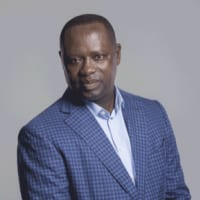
Honorable Emmanuel Armah Kofi Buah is a fourth-term Member of Ghana’s Parliament. Former Ghana’s Energy Minister and the Leader of the opposition on Trade, Industry, and Tourism. Follow Hon. Buah on Facebook.
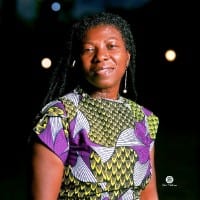
A negotiator for multilateral trade agreements, Matilda Arhin has consulted for SMEs and start-ups from a diverse range of industries in Switzerland, the United States, and Africa, including eCommerce, transportation, manufacturing and technology, energy, consumer goods, housing infrastructure, healthcare and agriculture. She has also consulted for the public sector and government organizations in Africa, Switzerland and the United States. She was the prime influence behind a series of initiatives to enhance trade, investment, and economic cooperation with African countries and is recognized as one of the foremost experts on African trade, investment and education. She recently joined Vector Global Logistics as a business developer.
